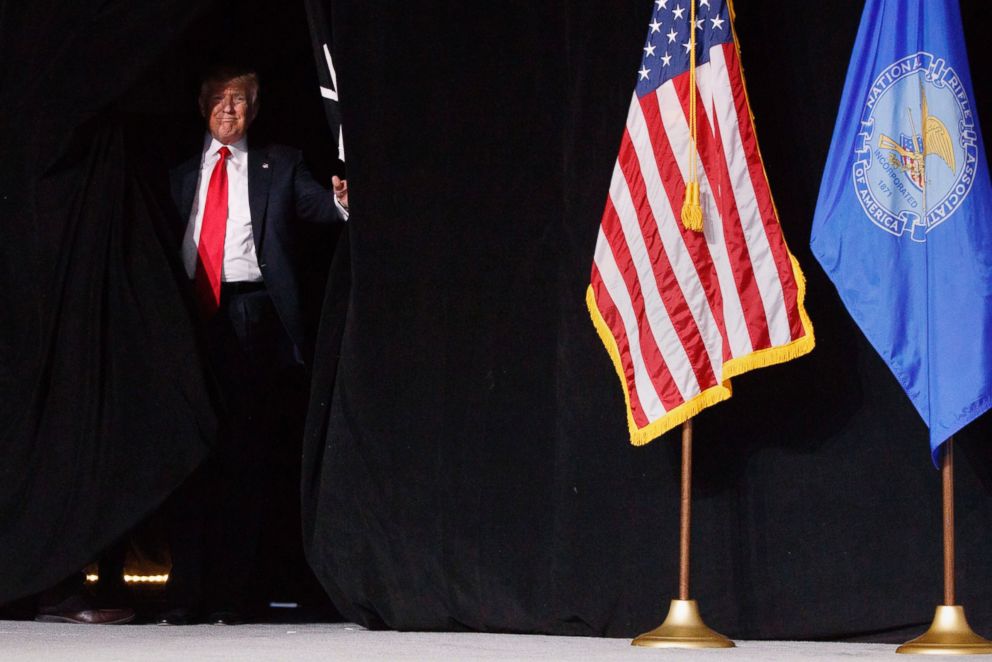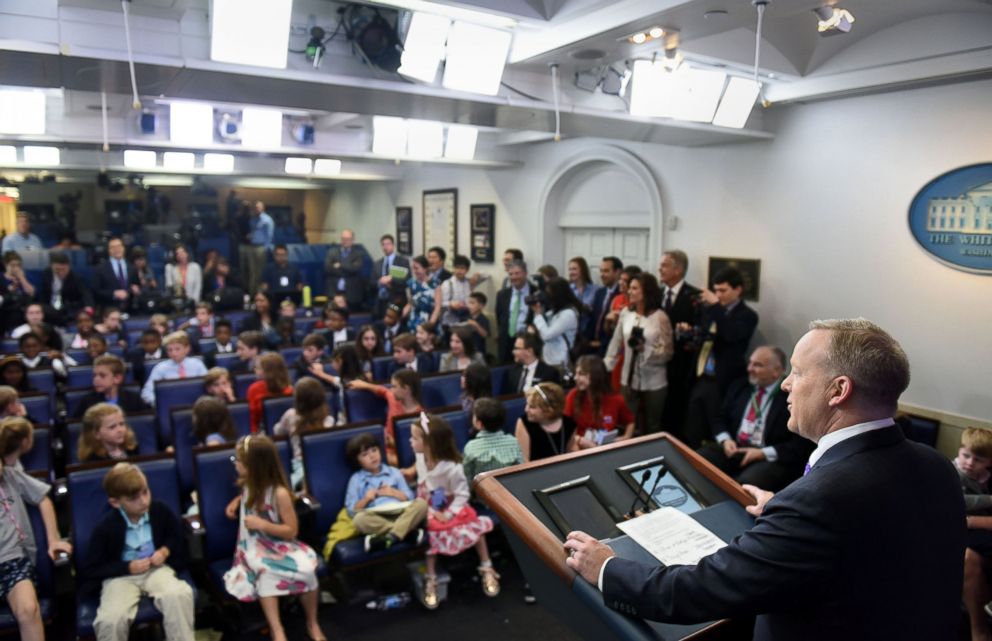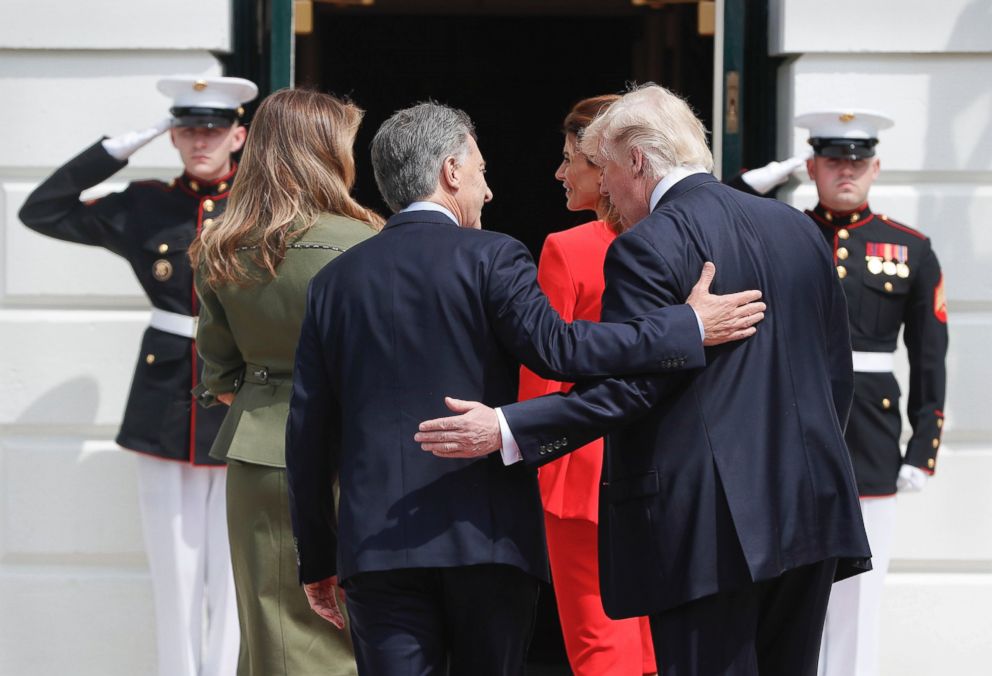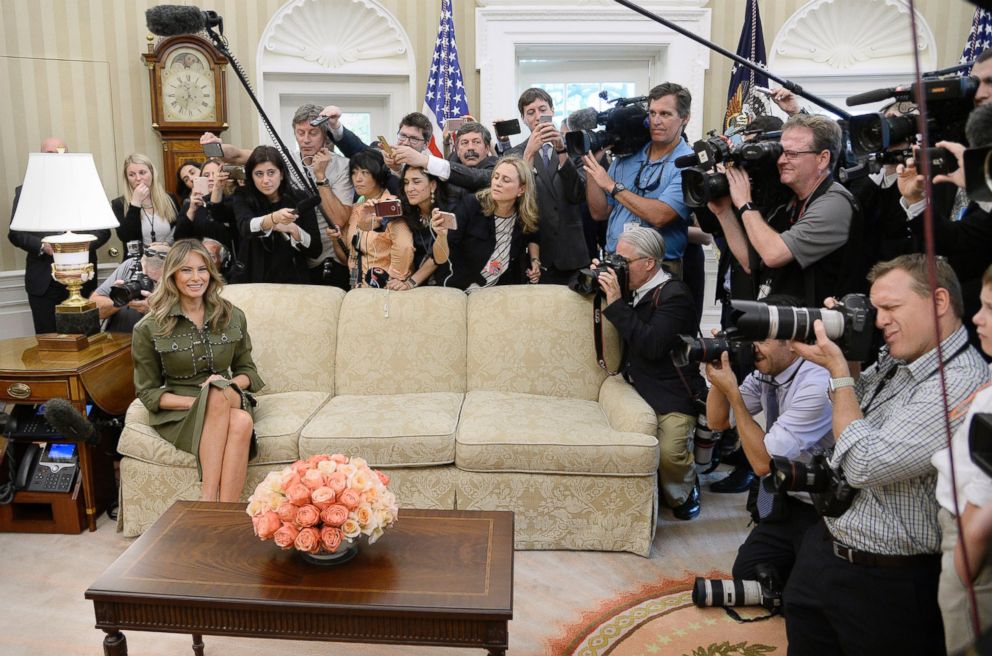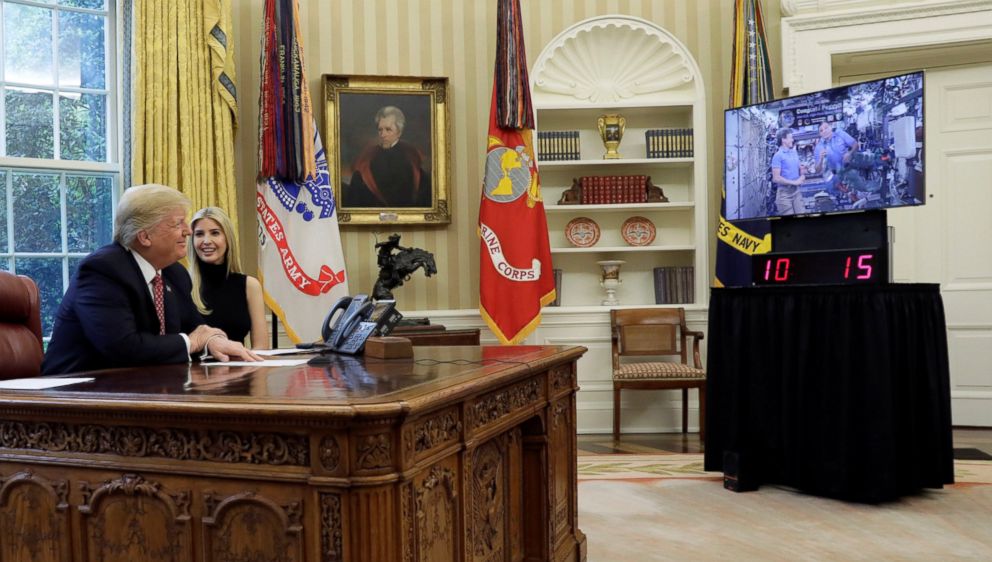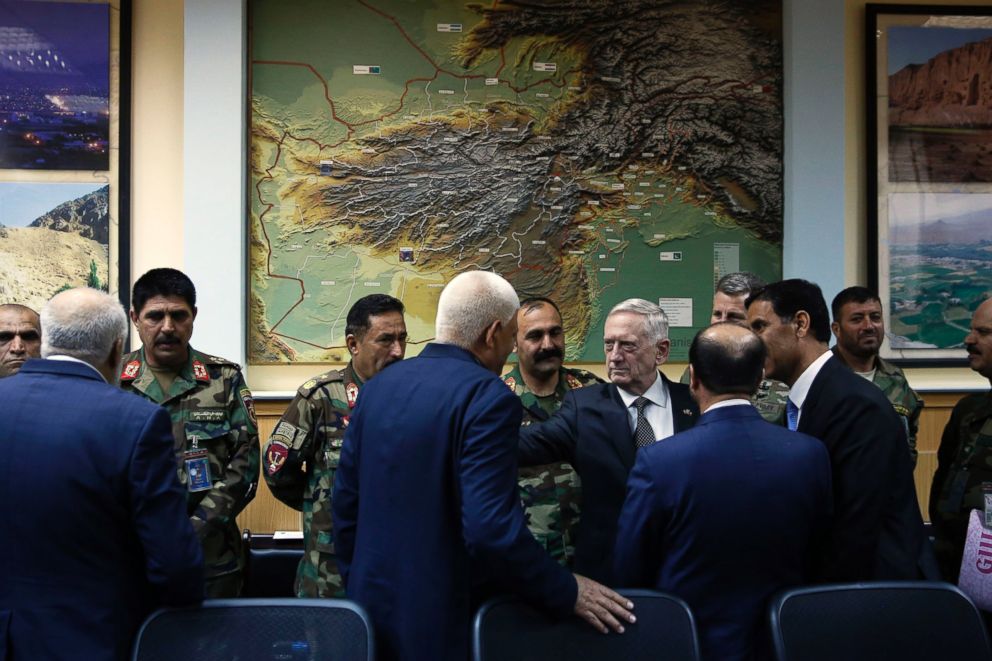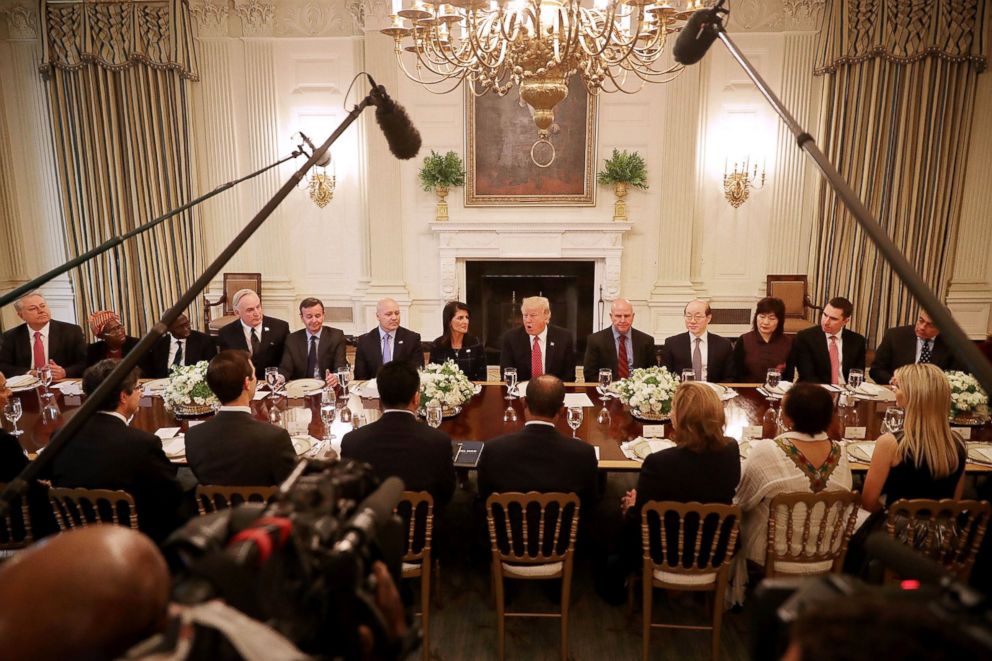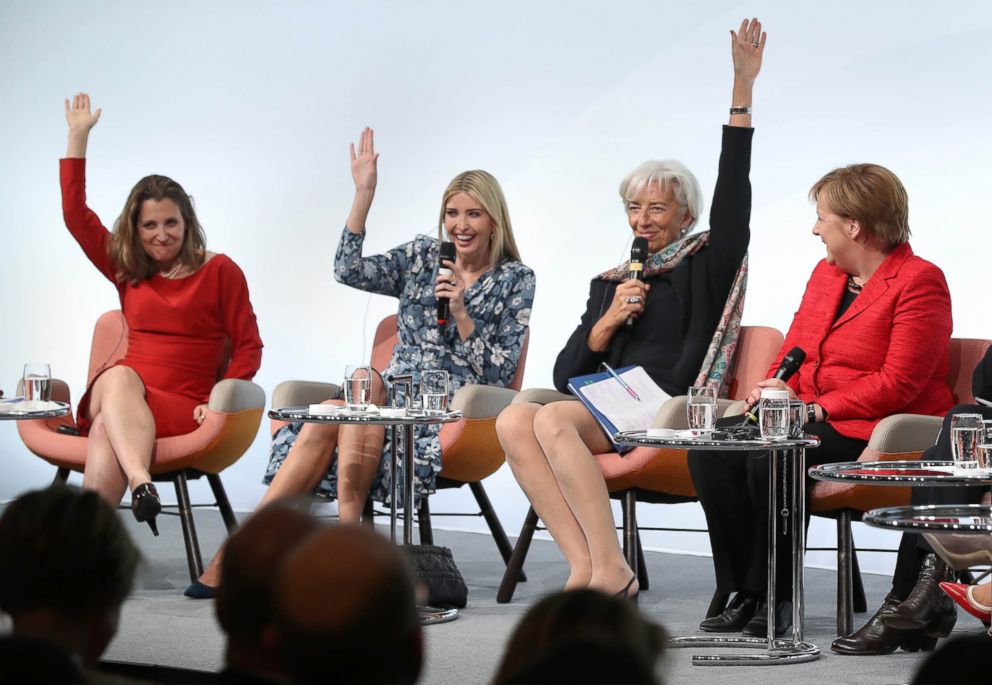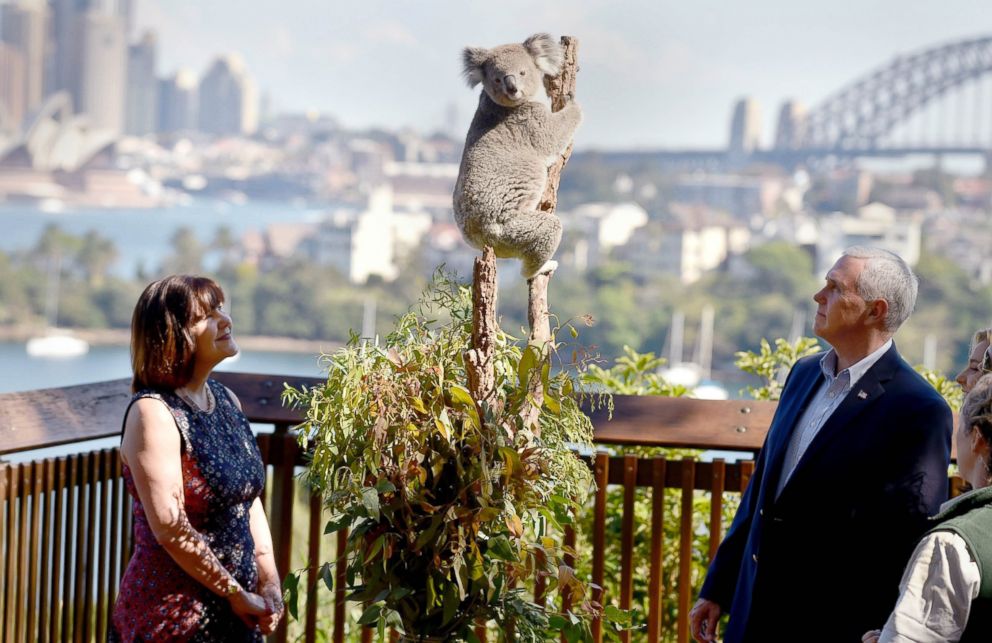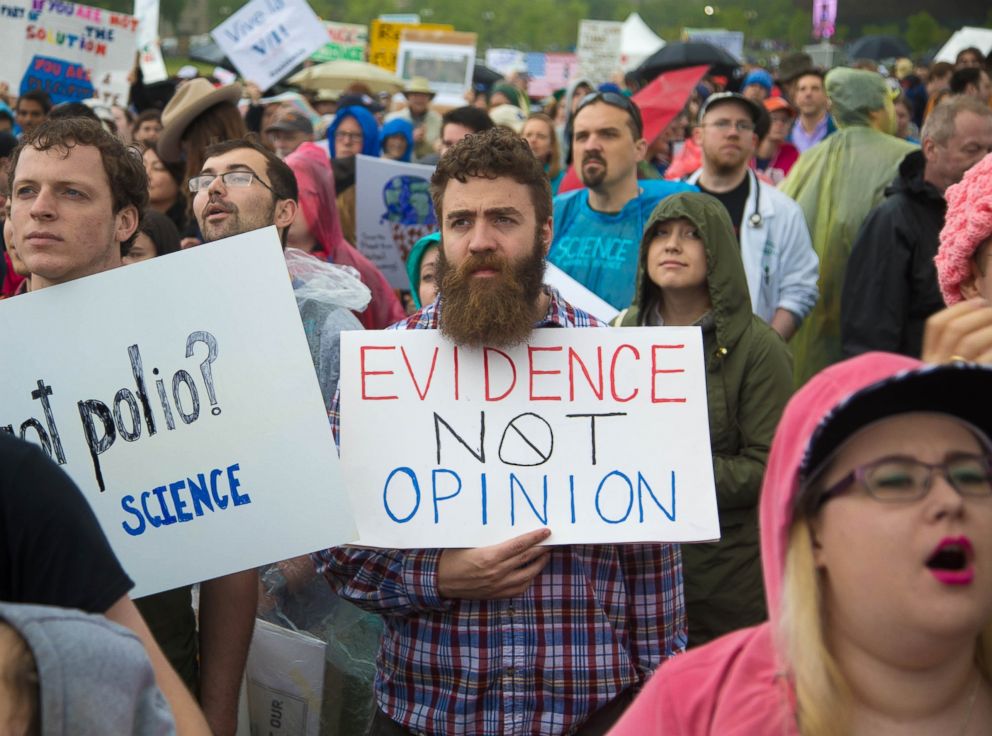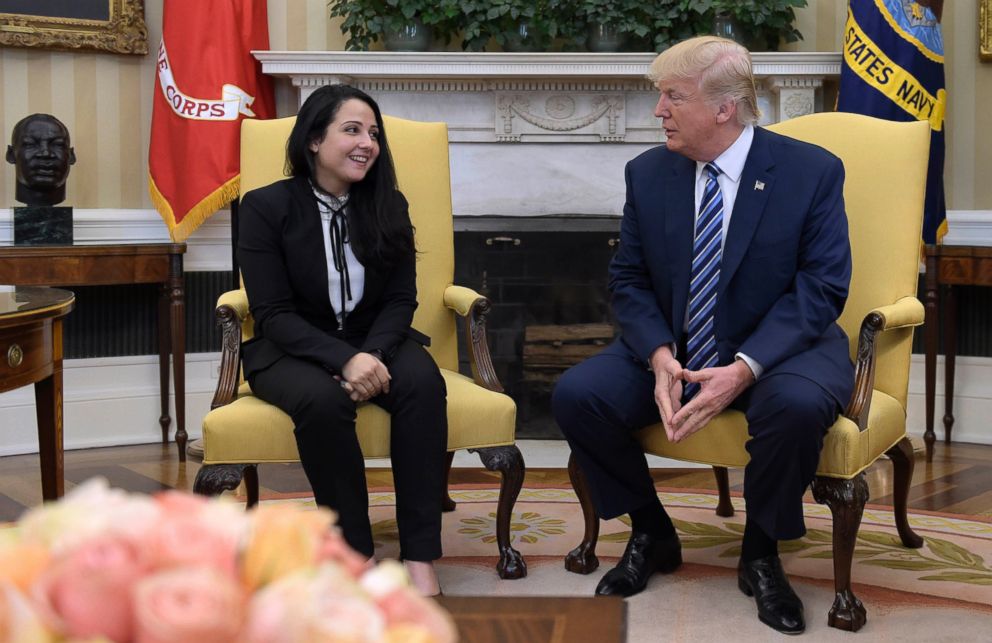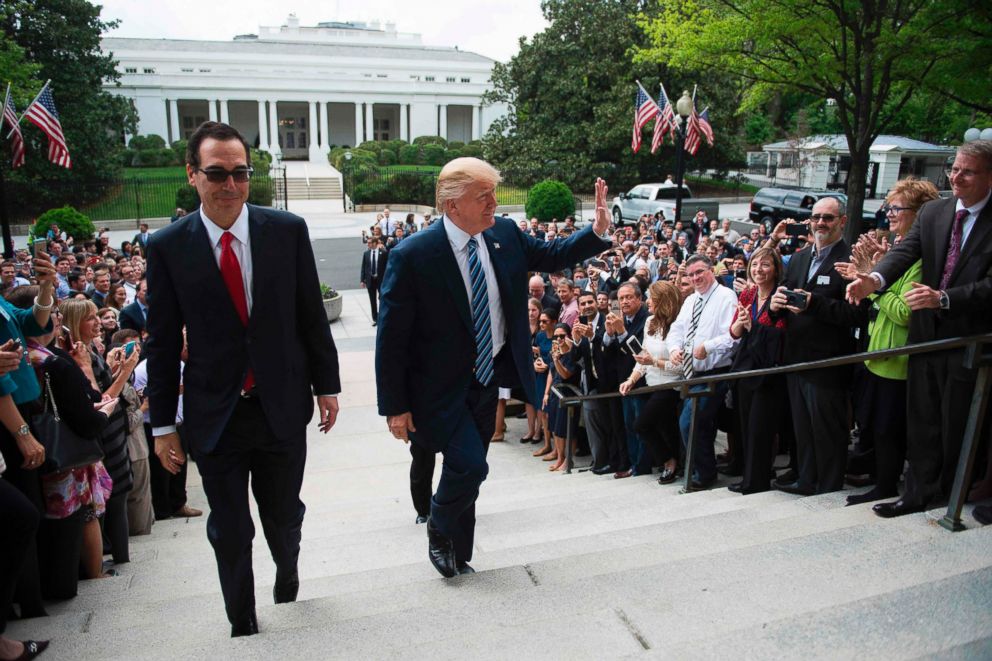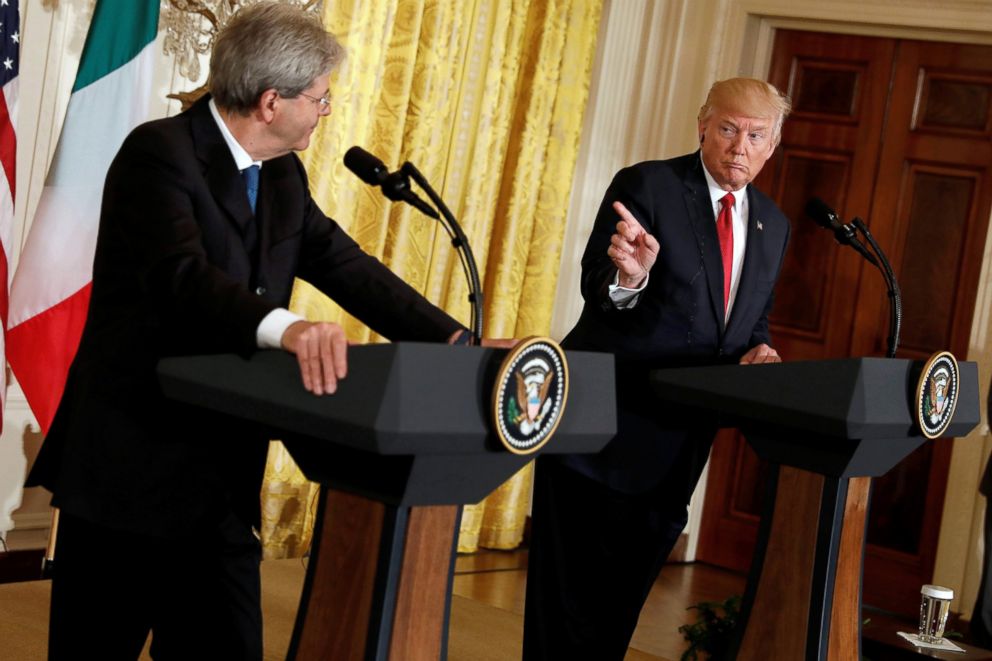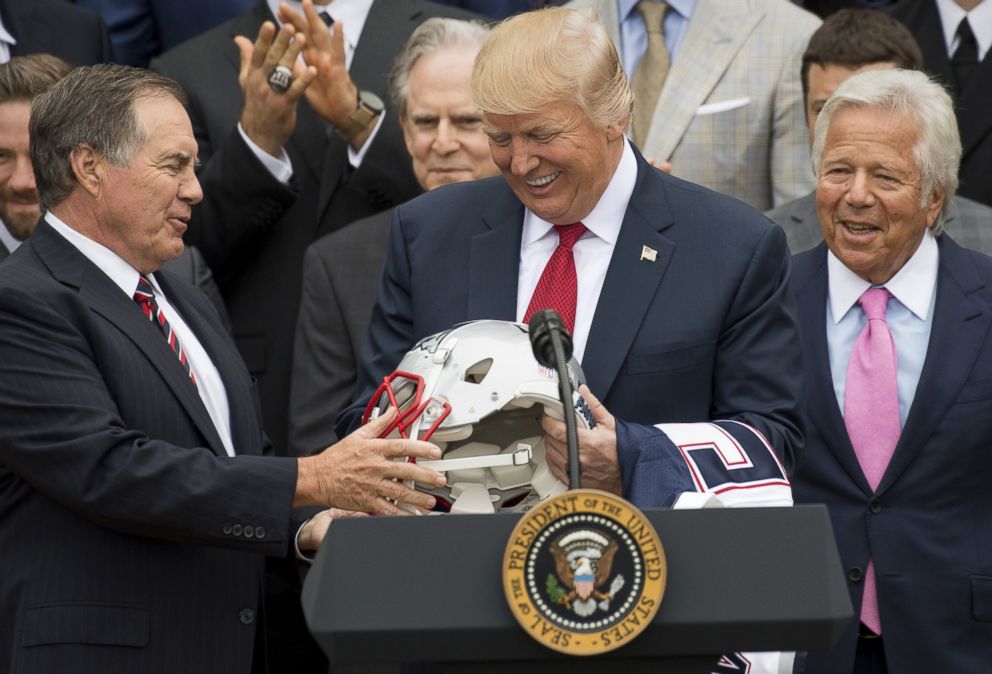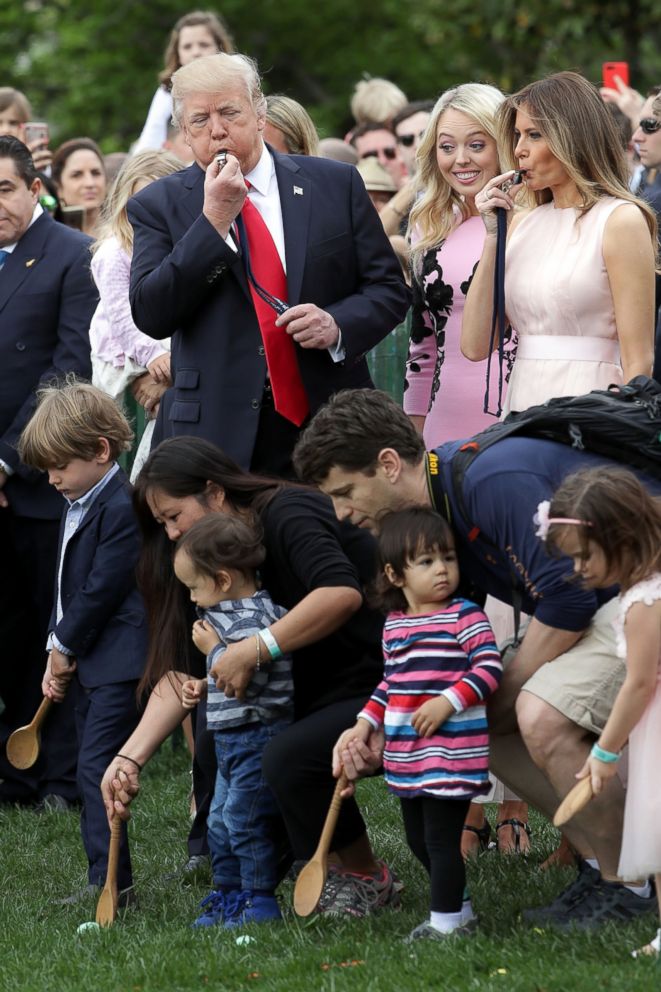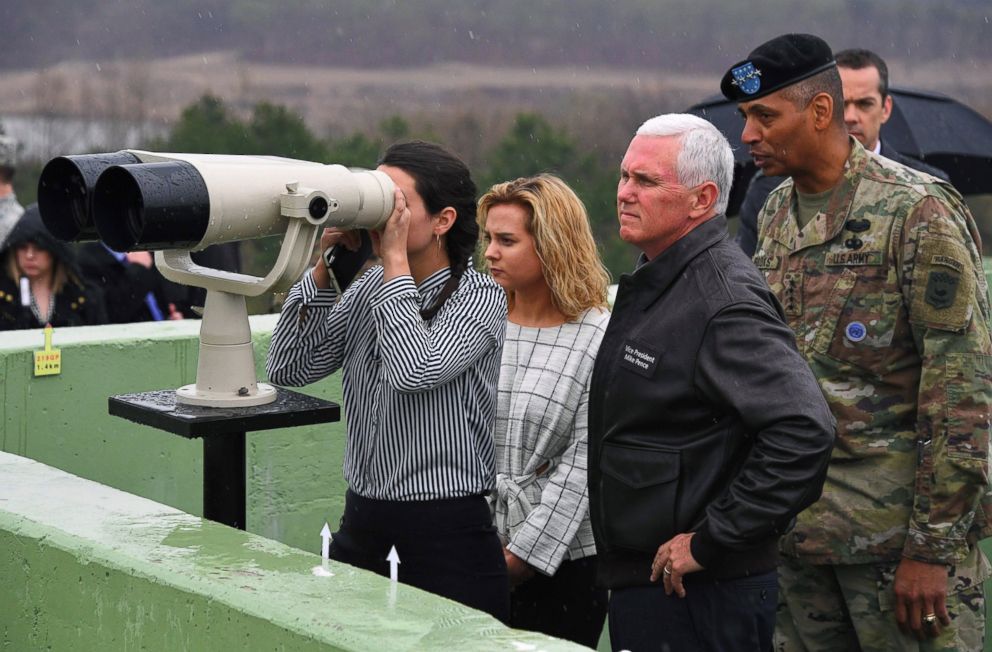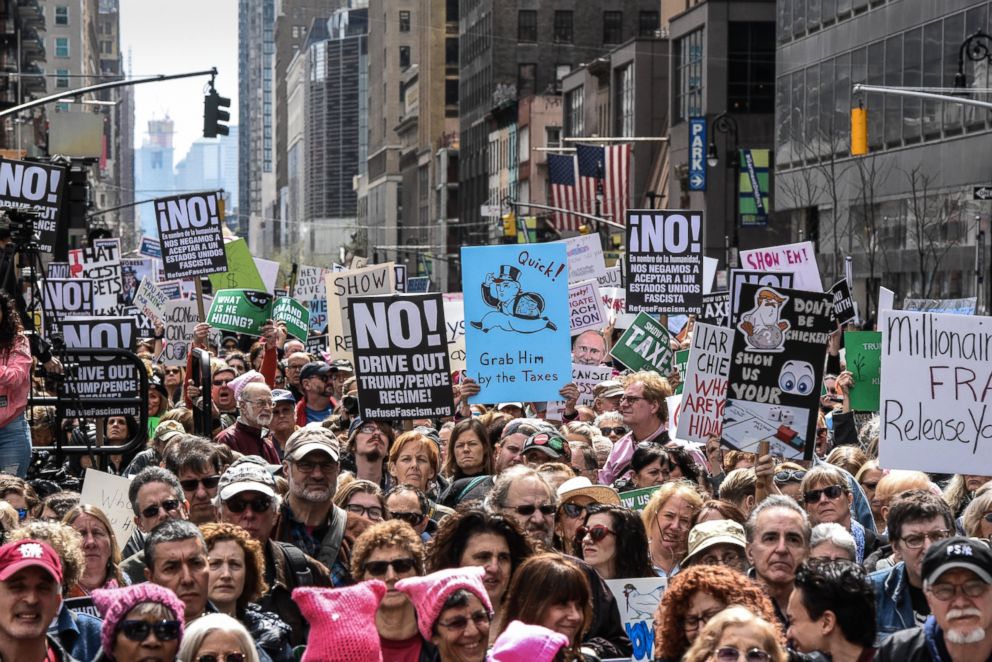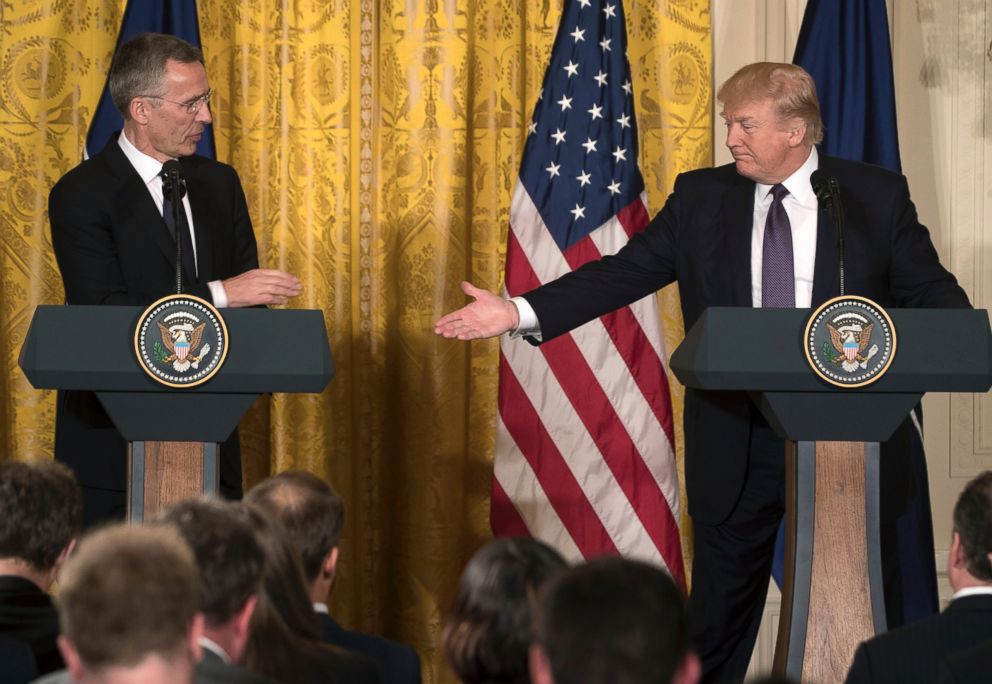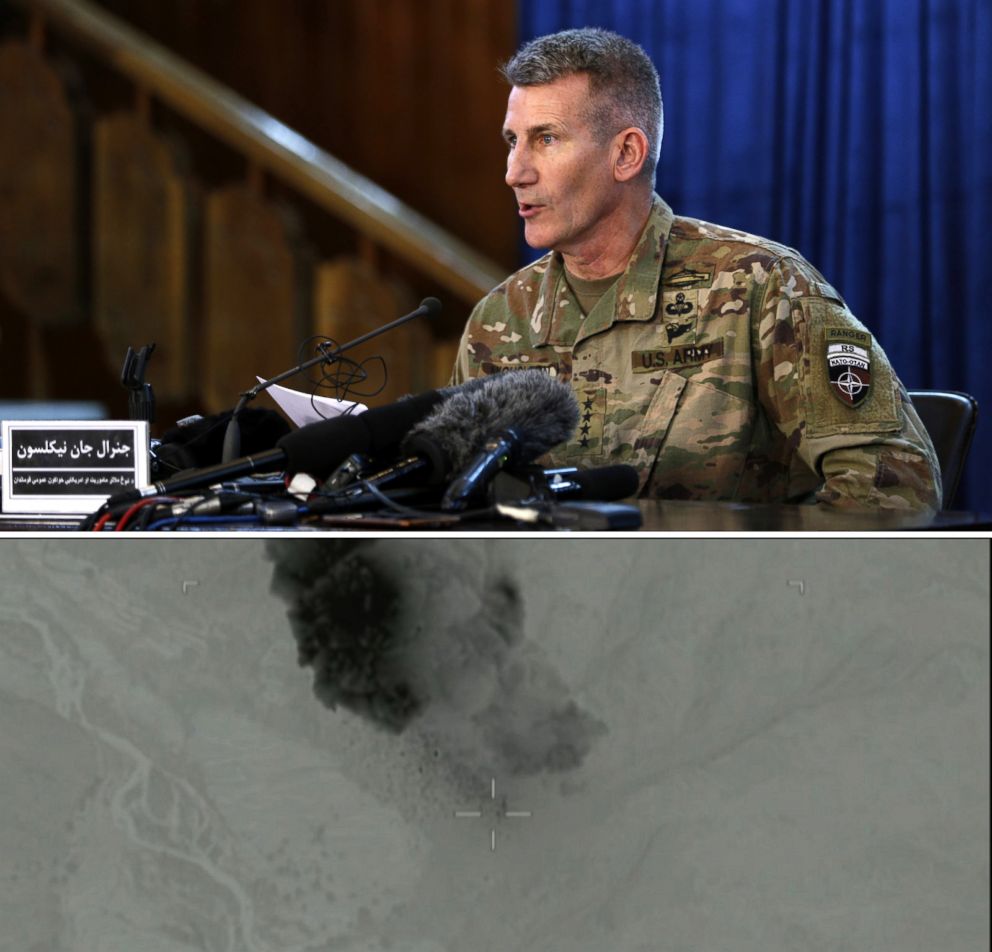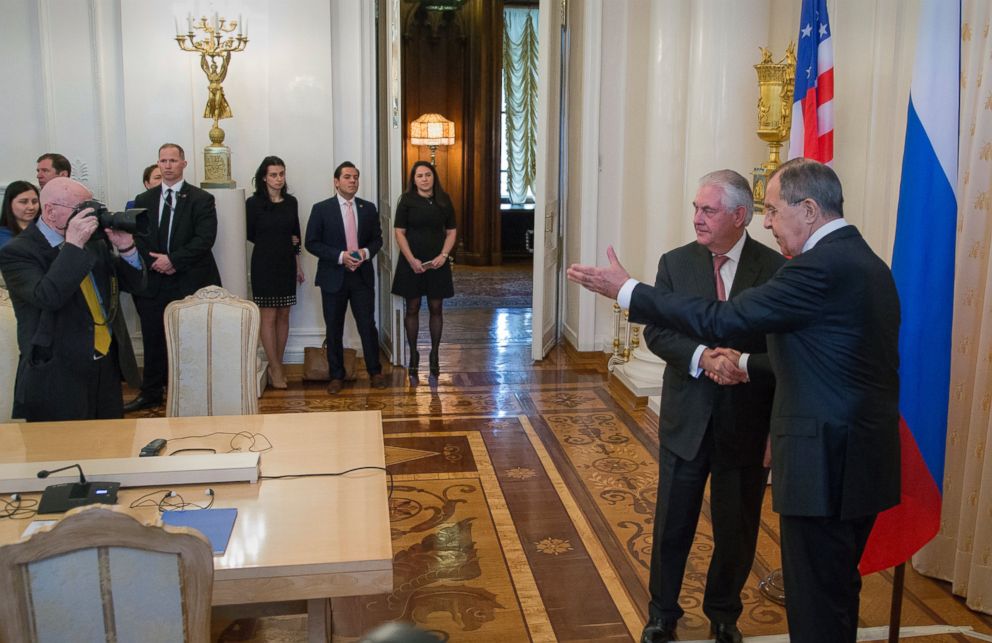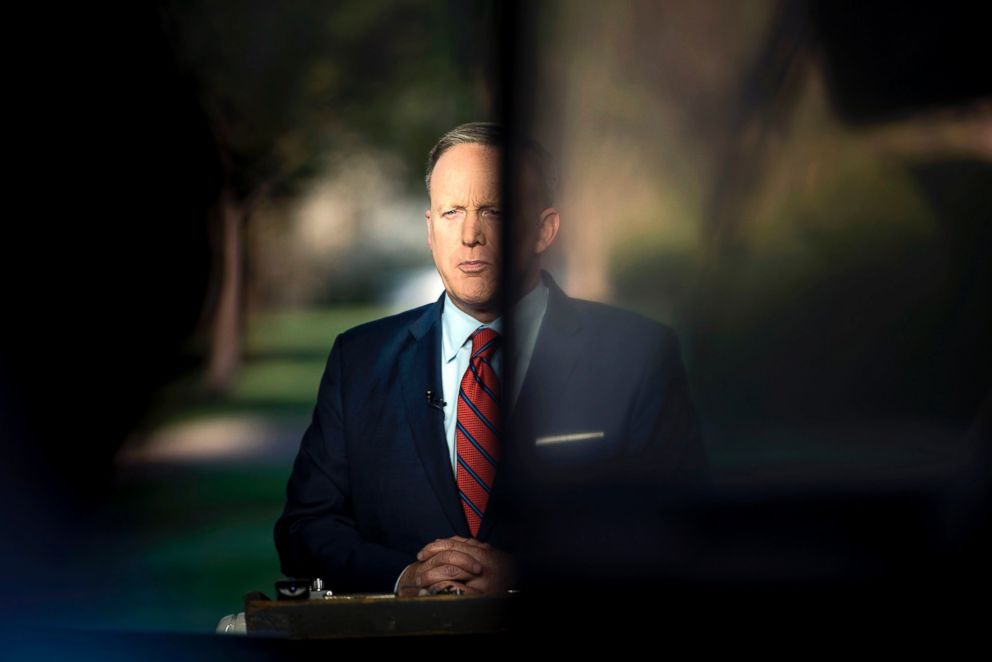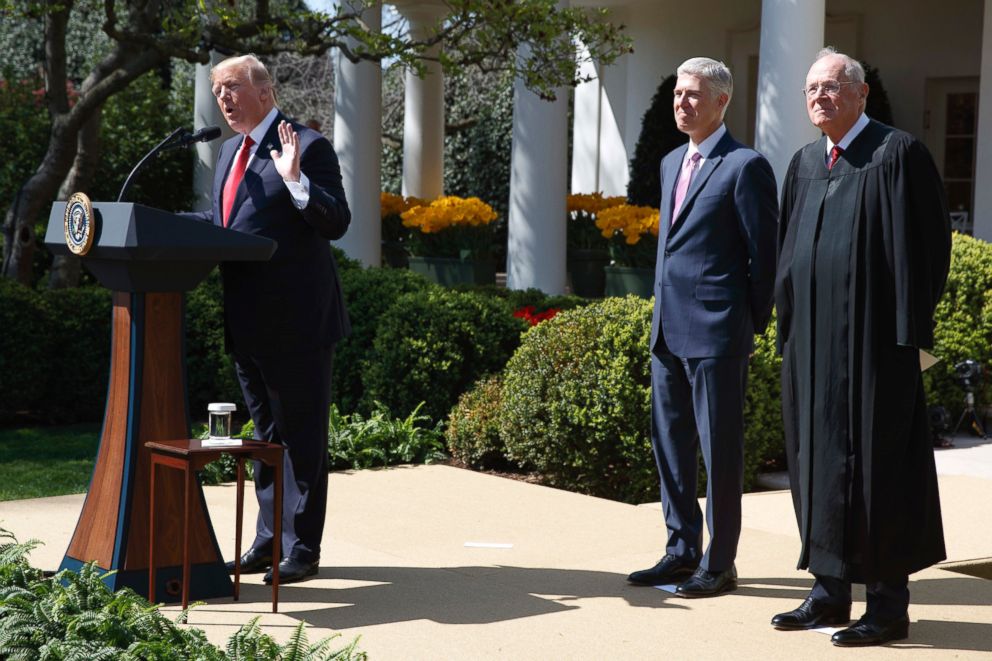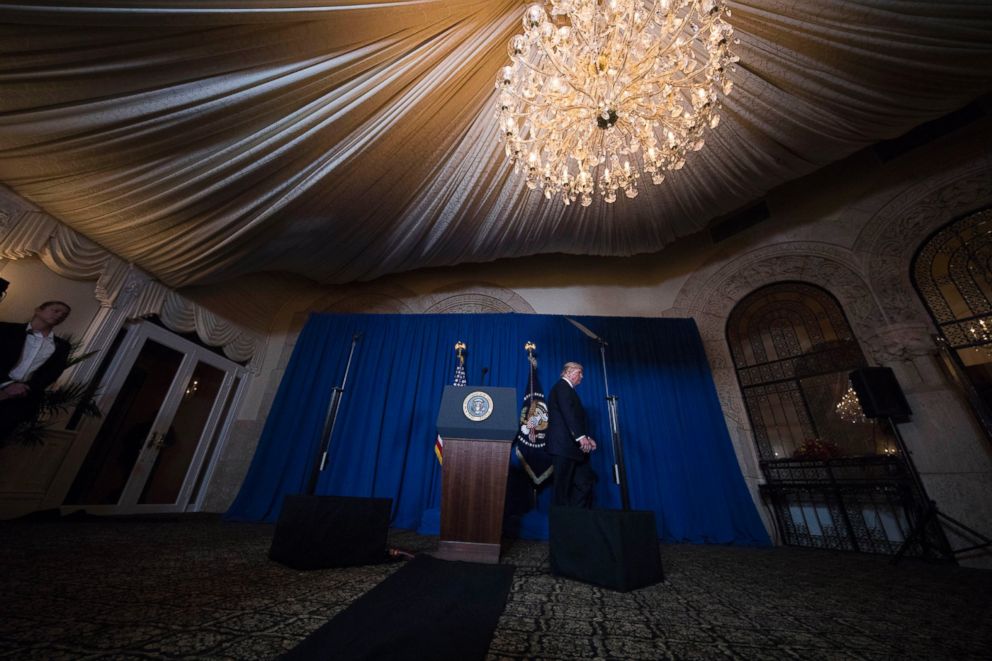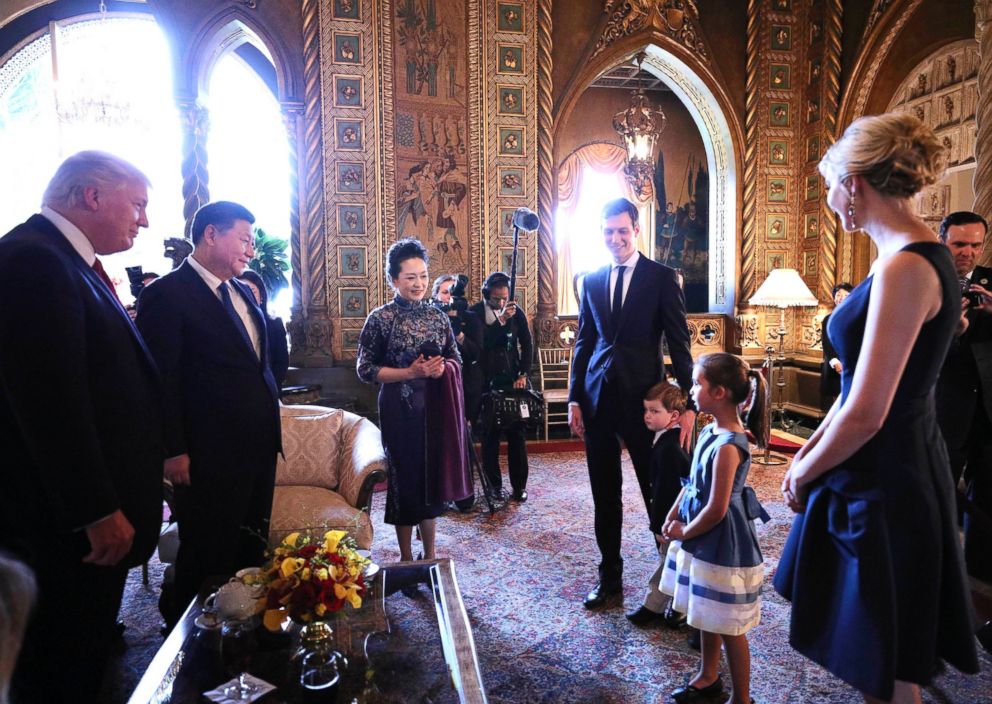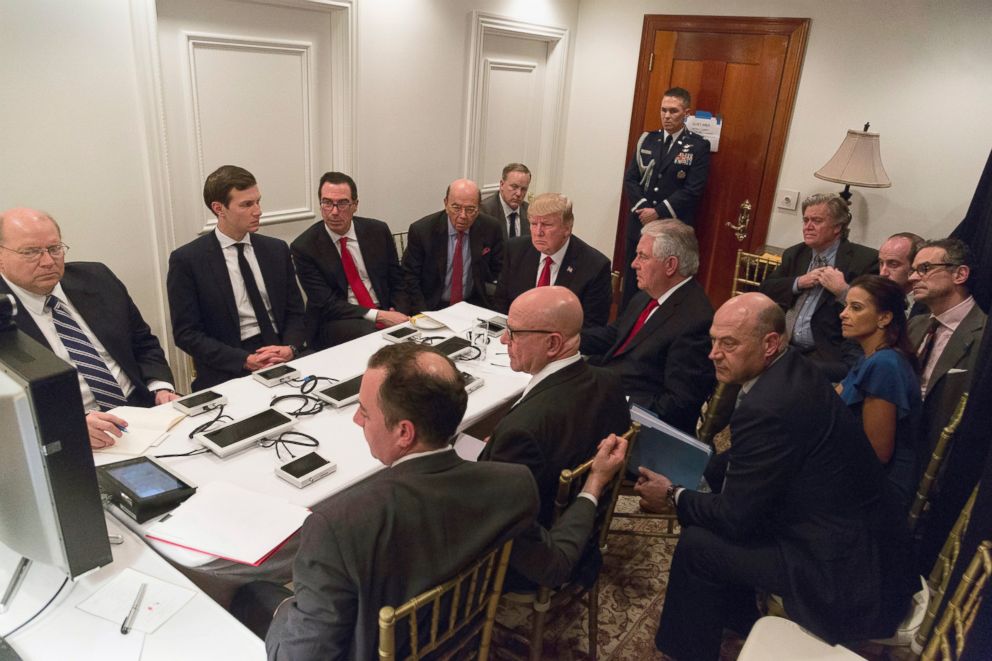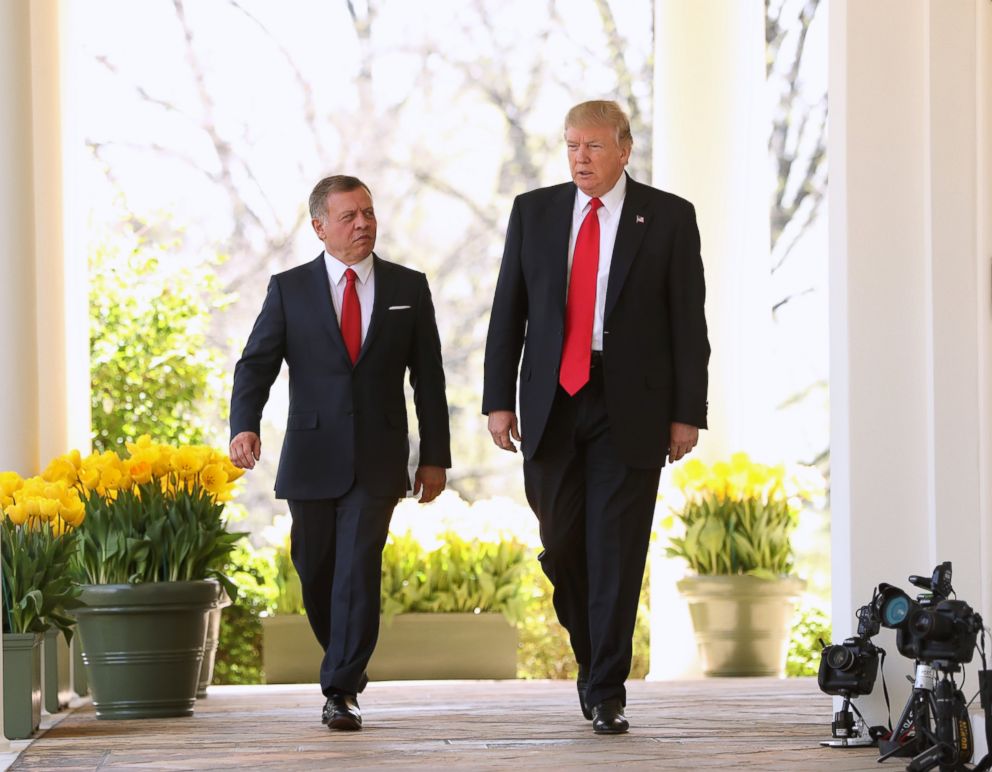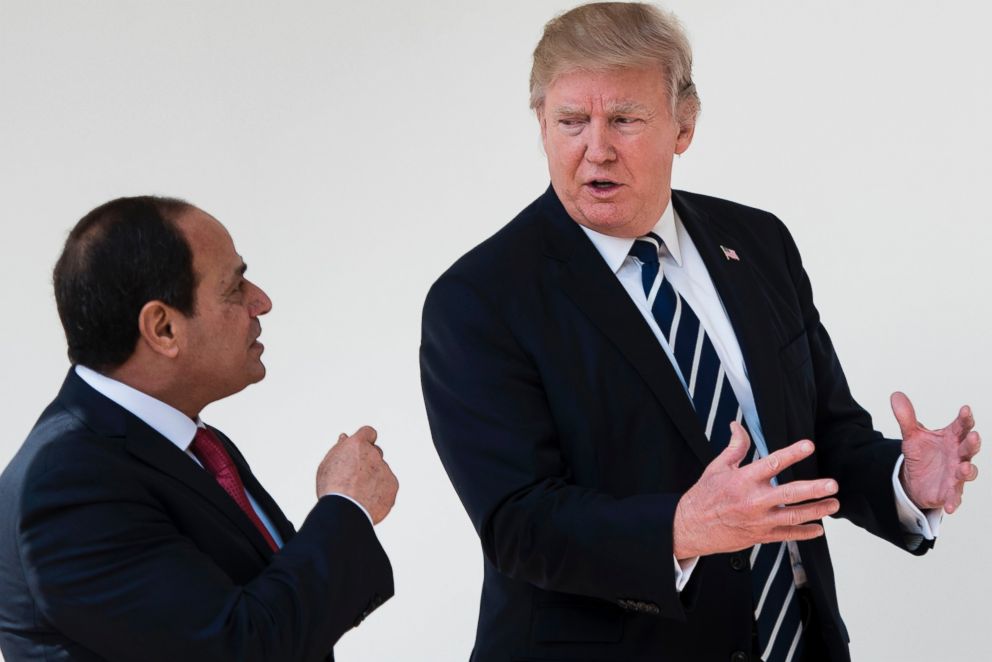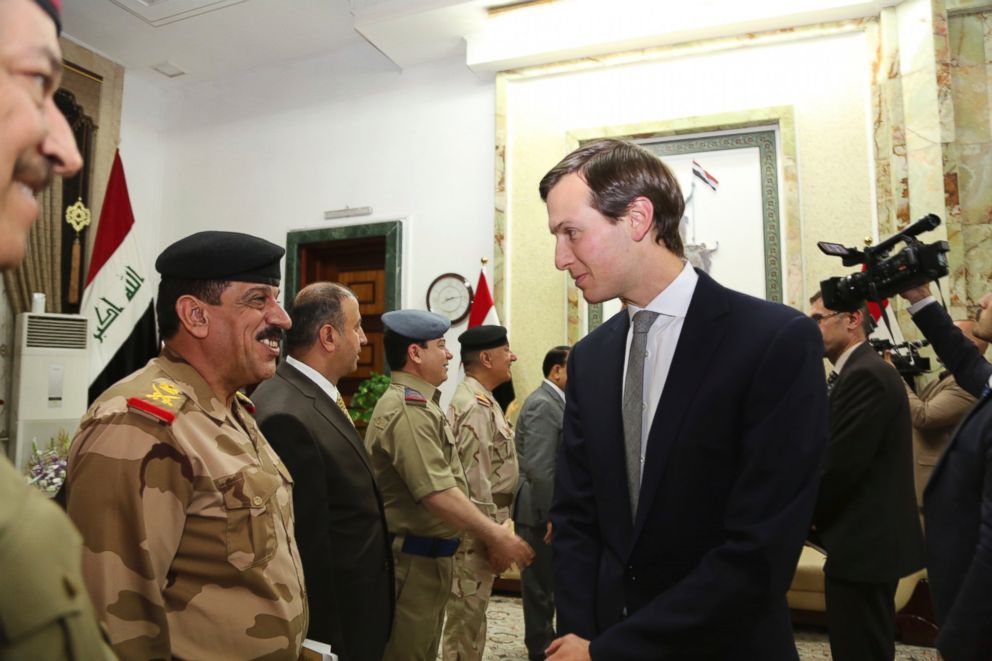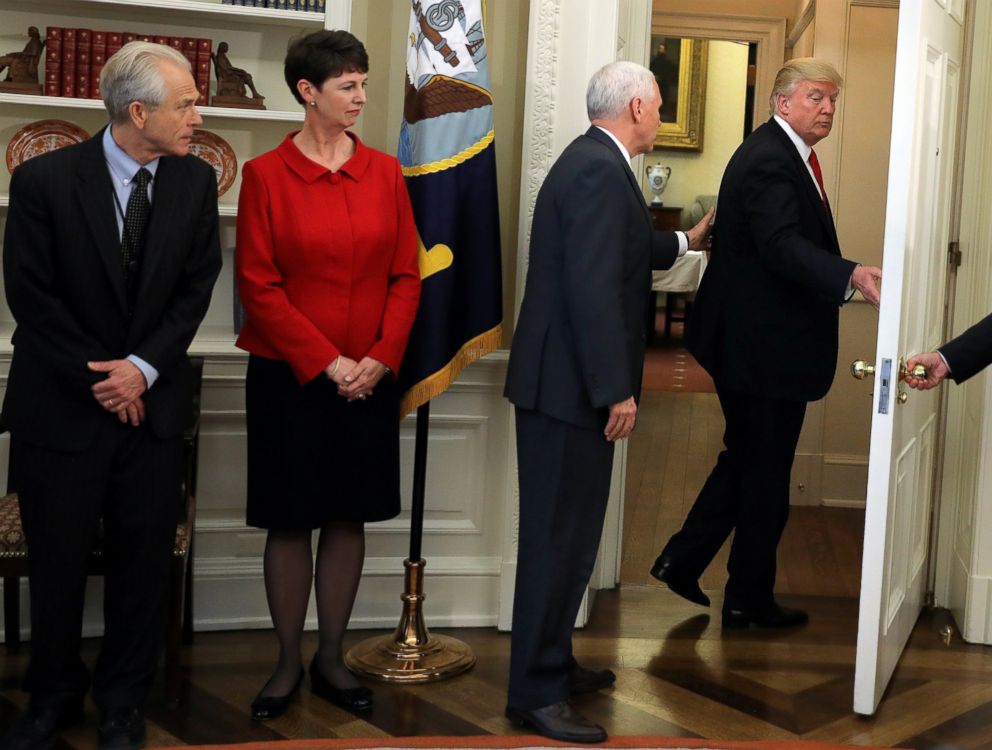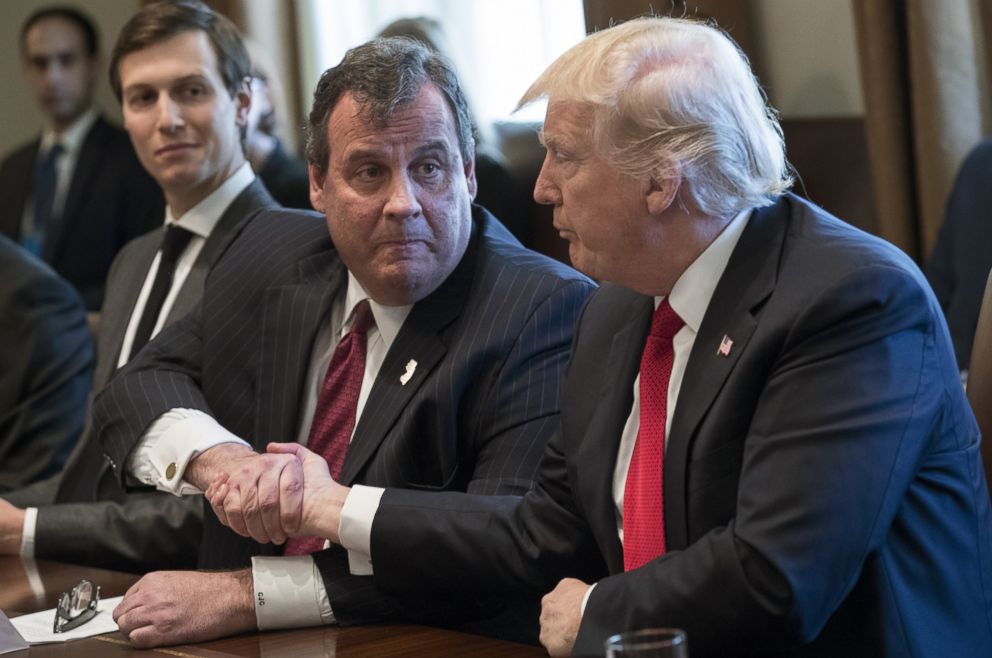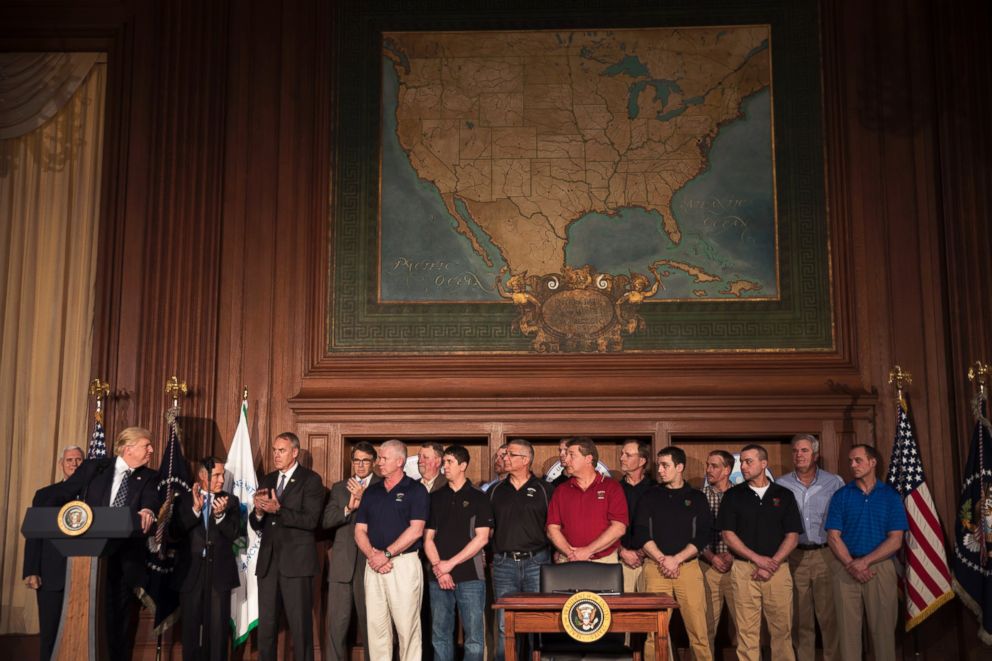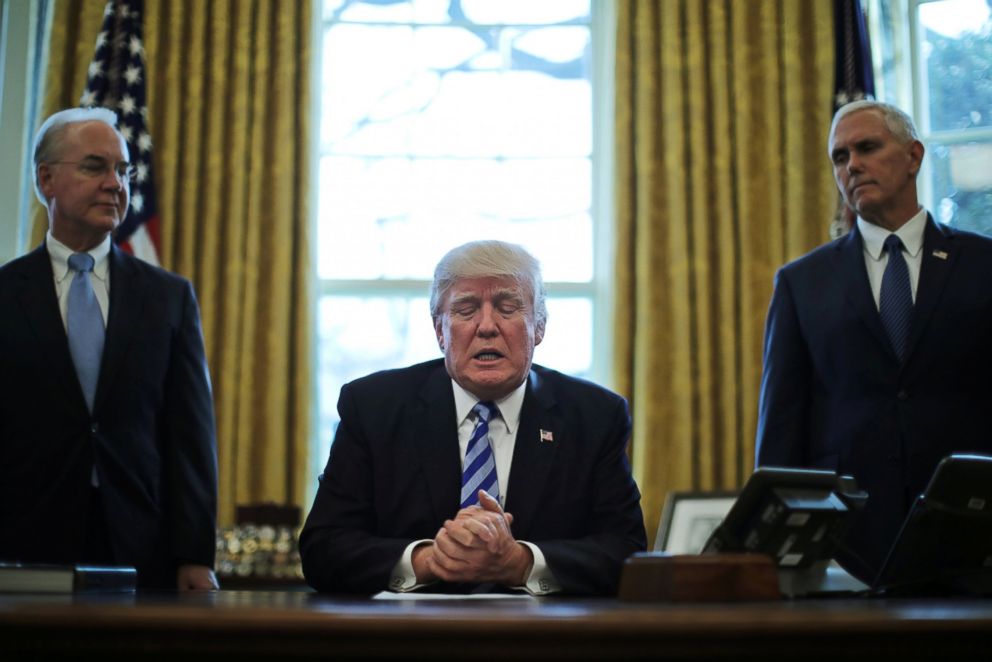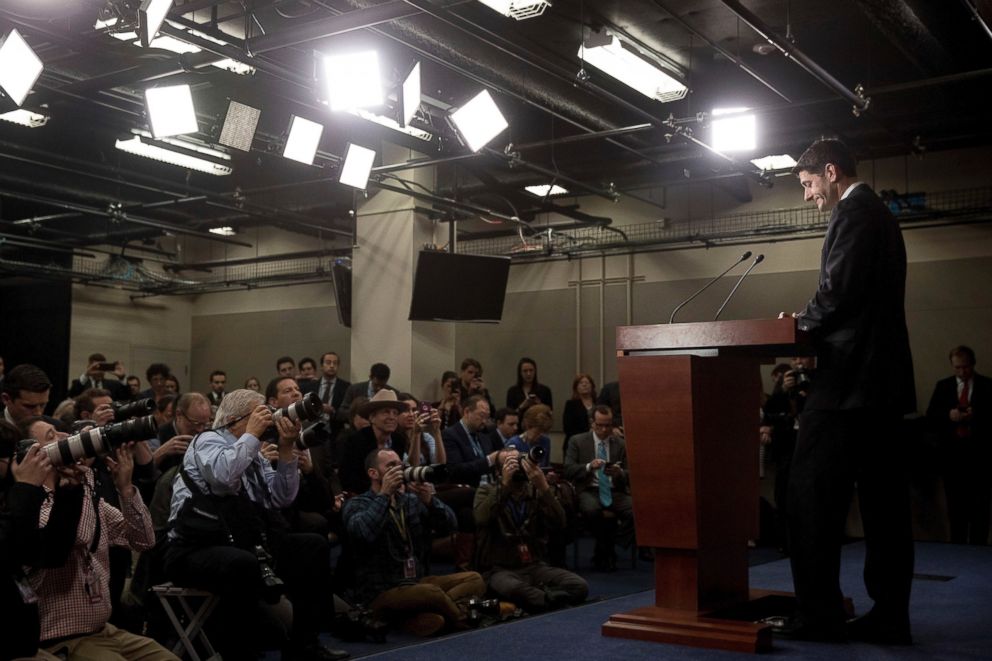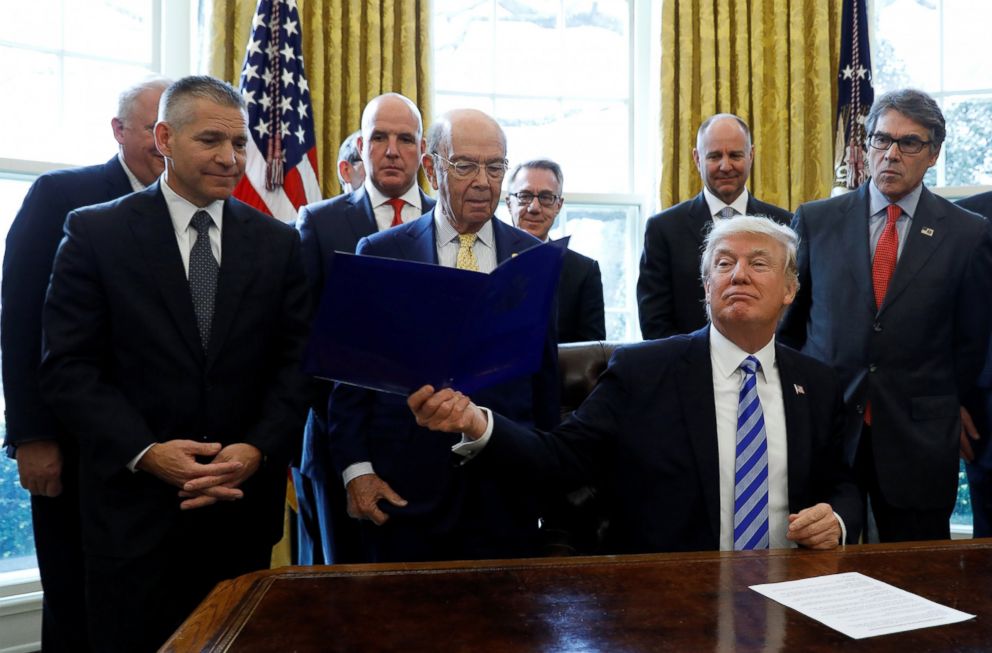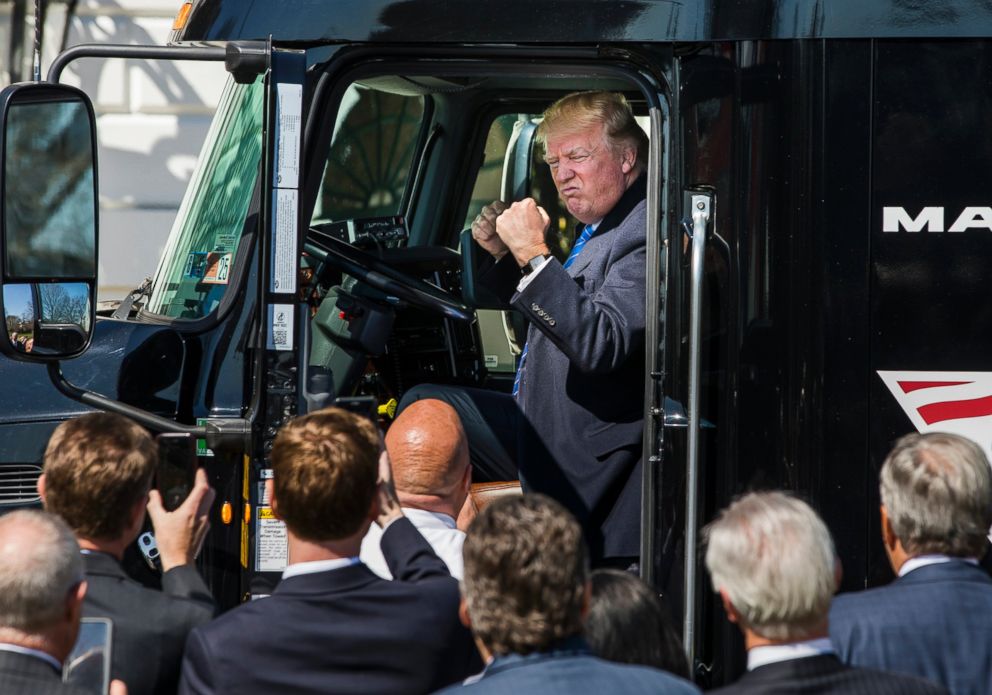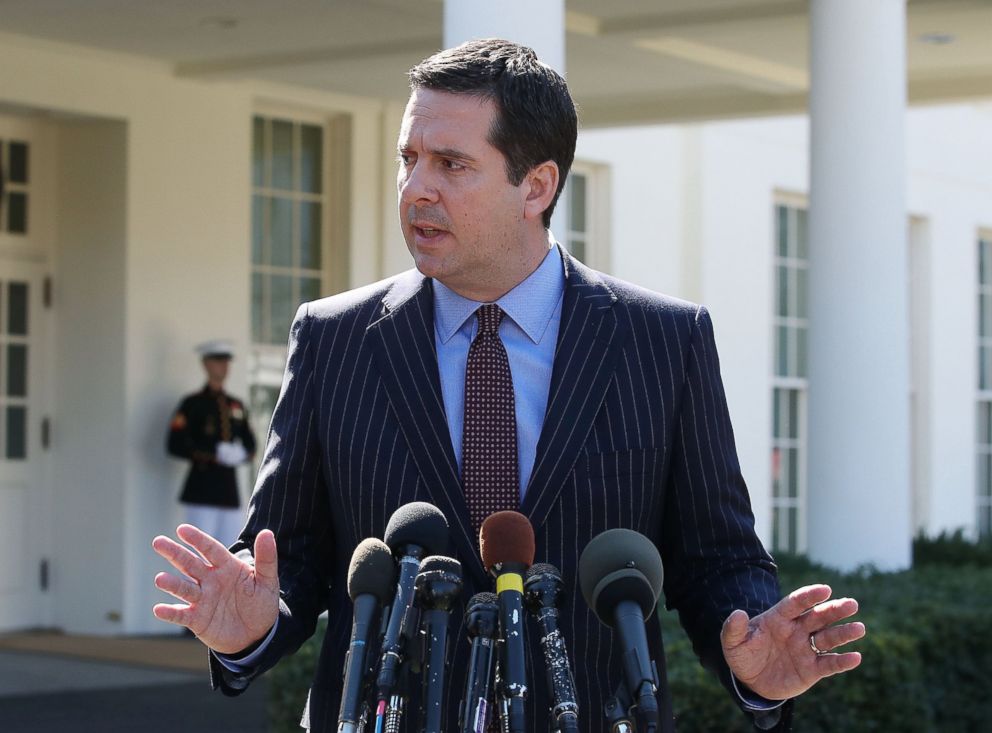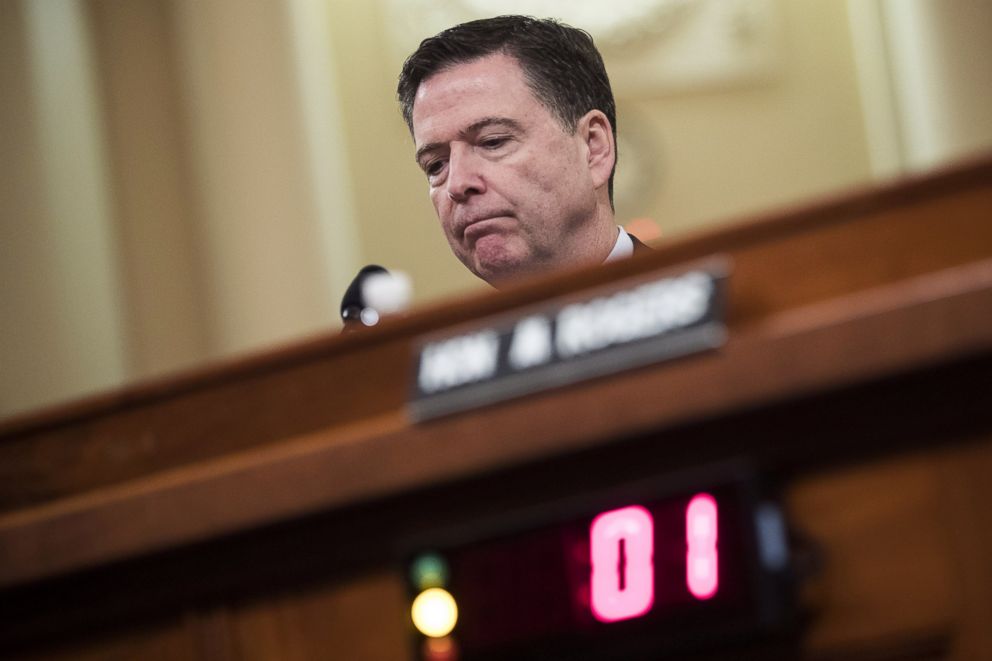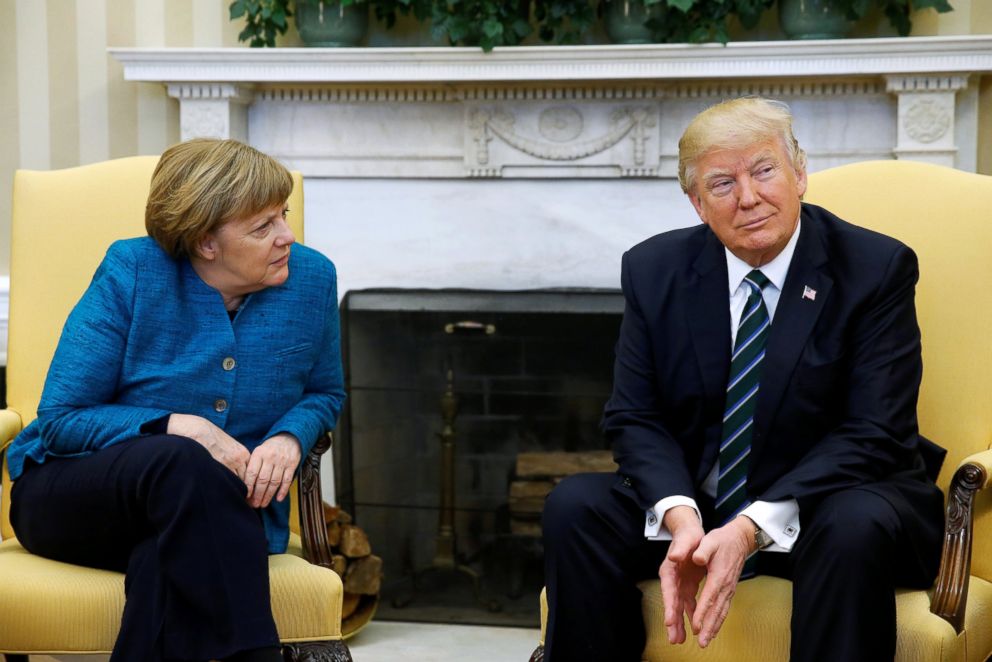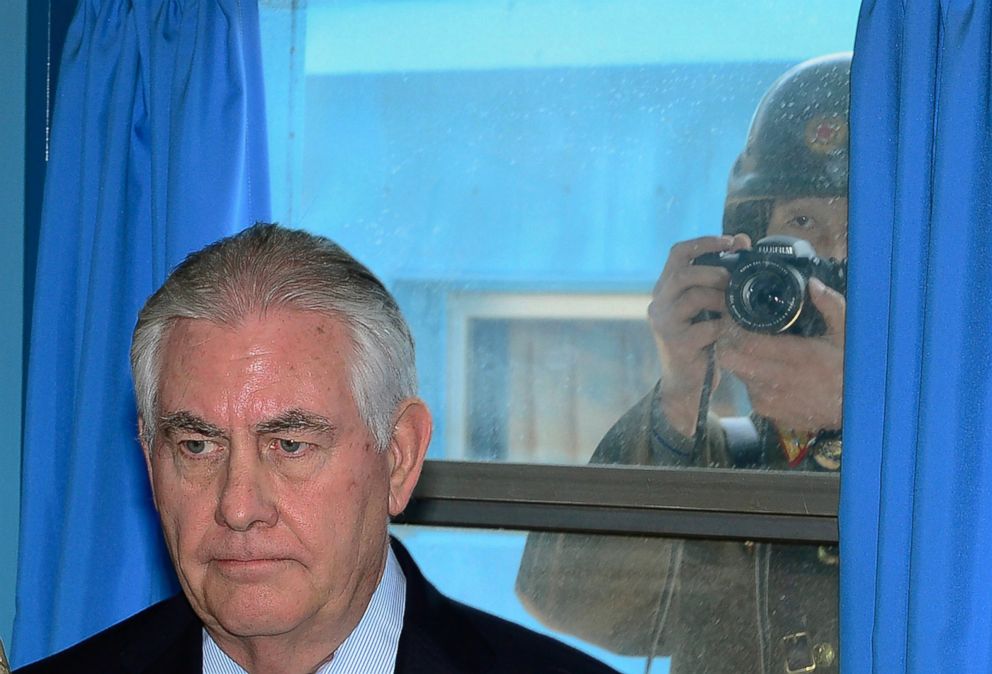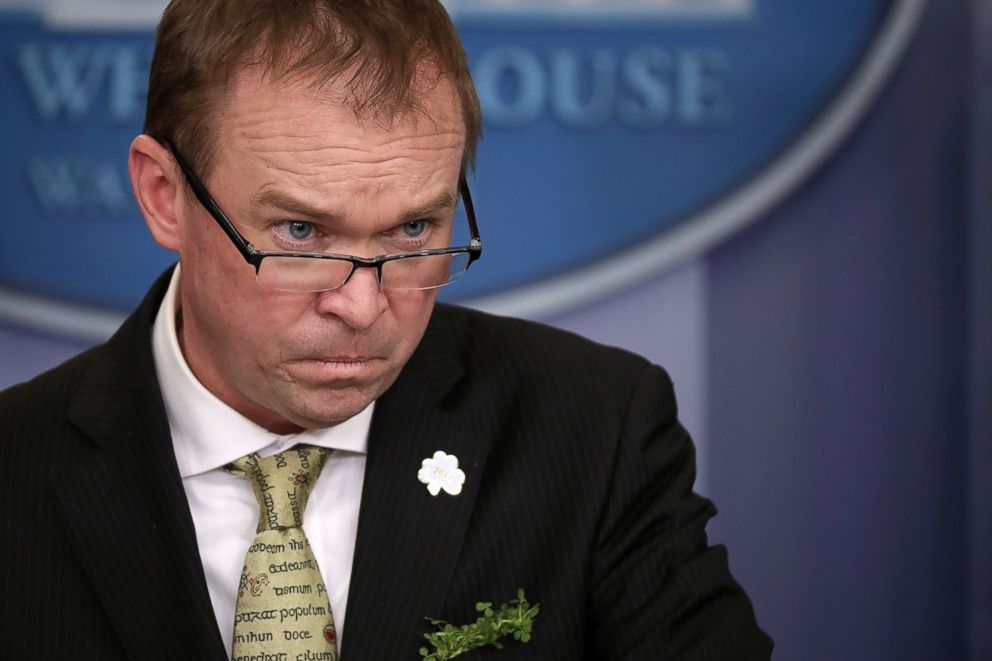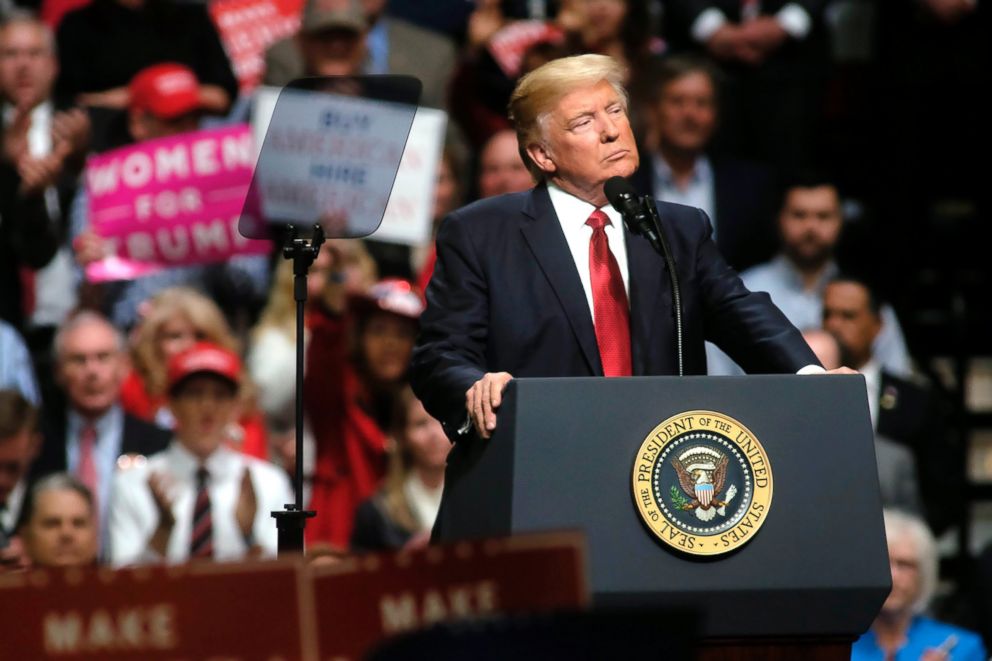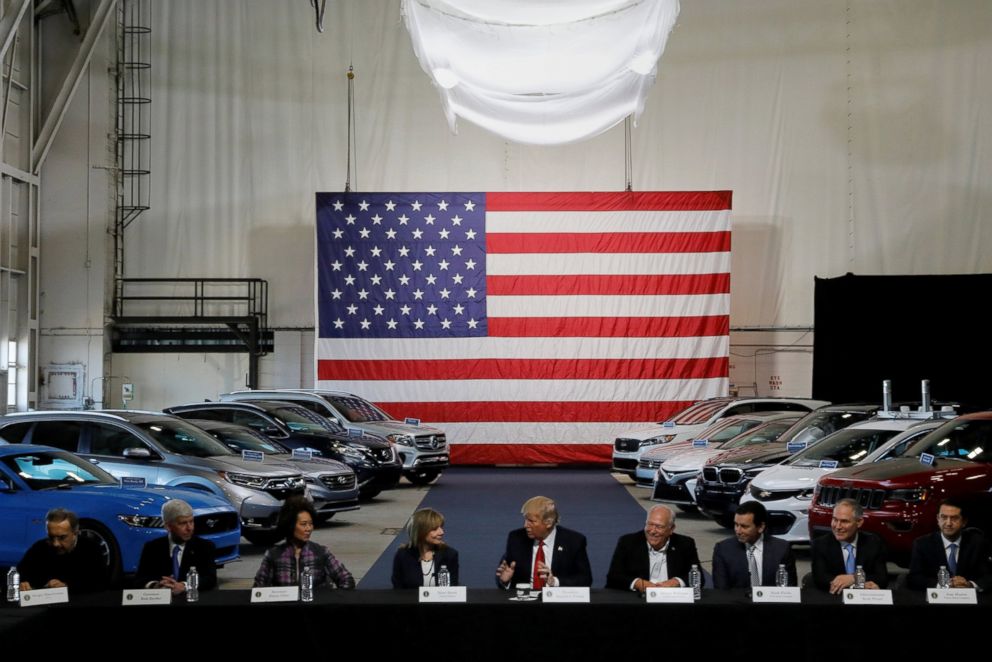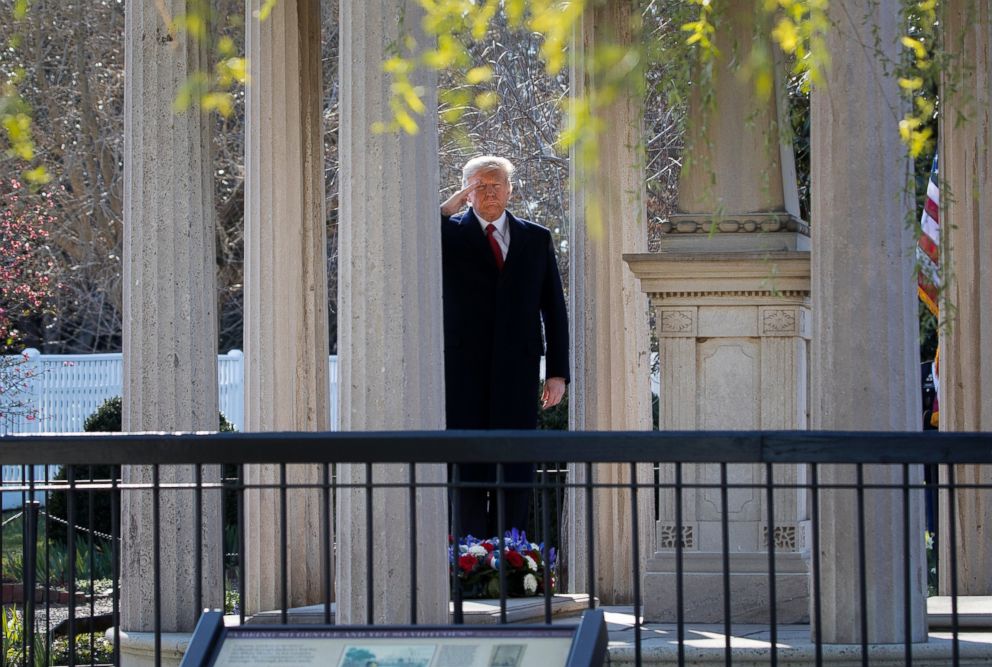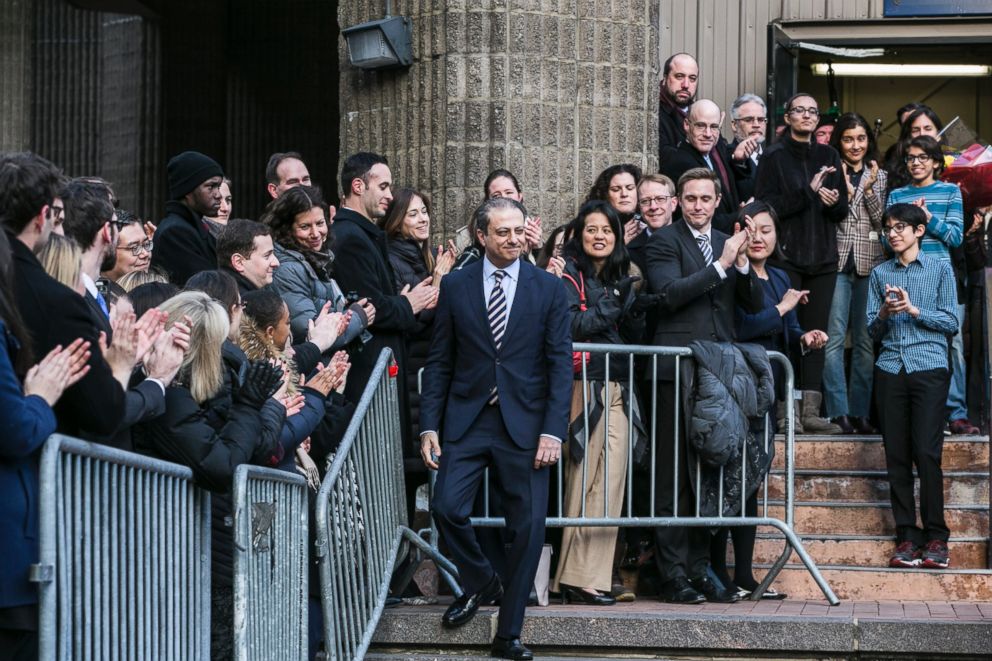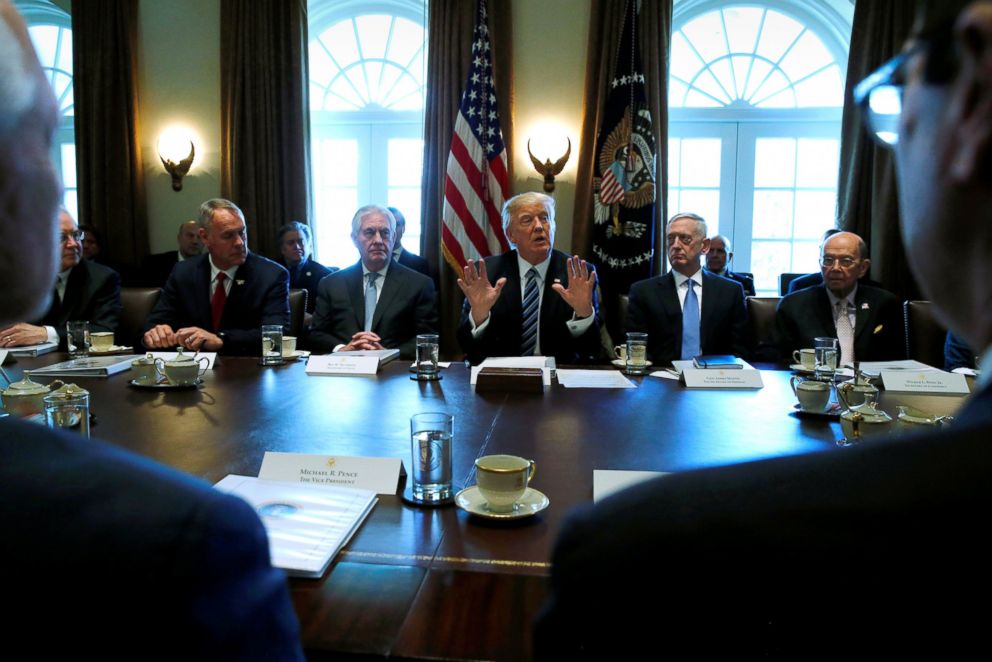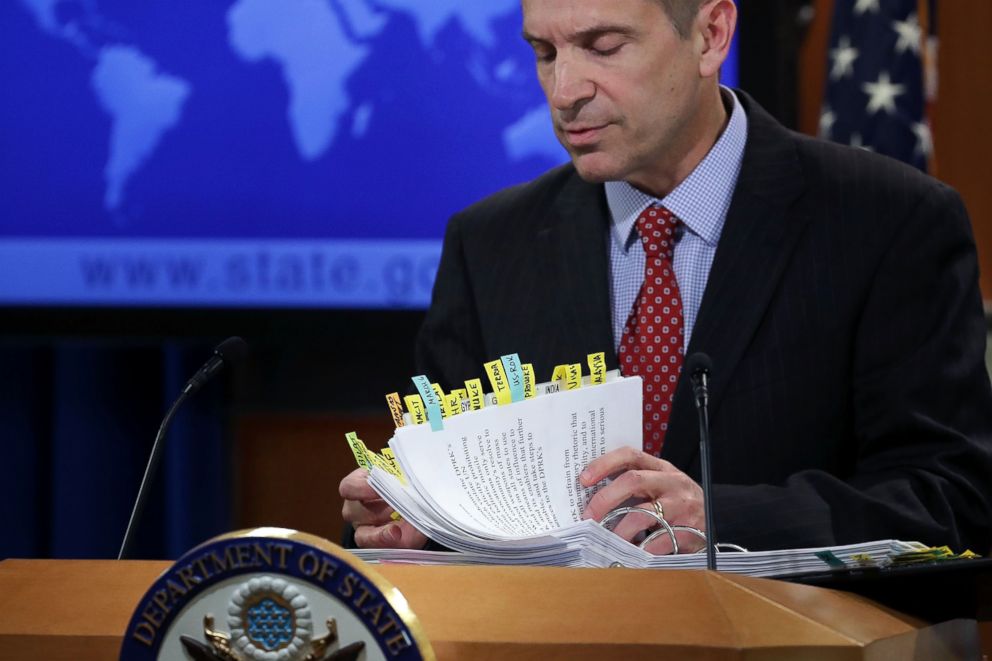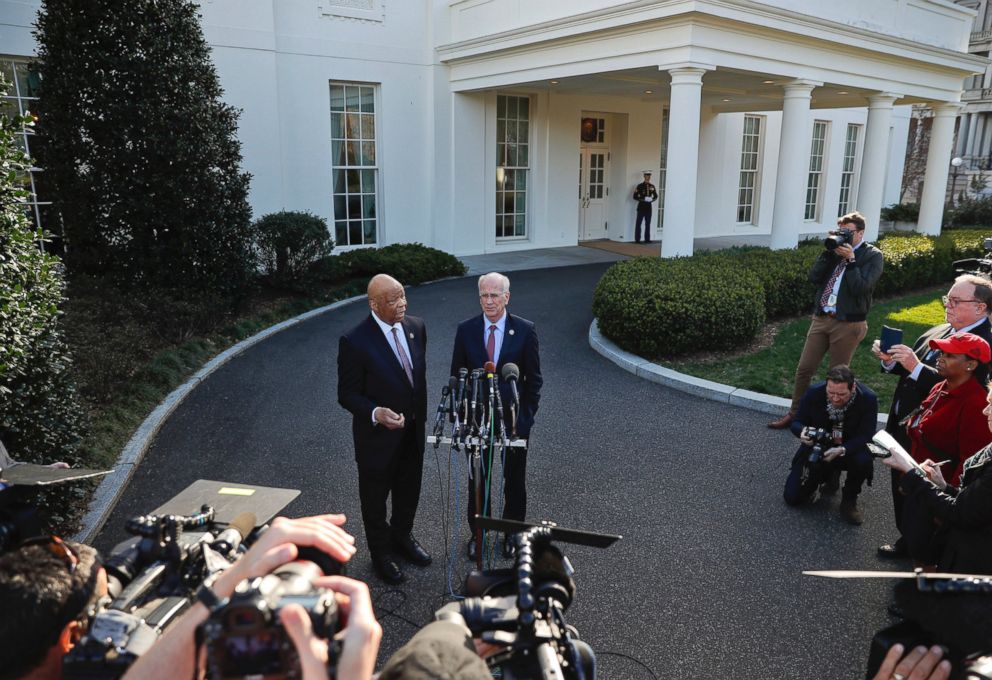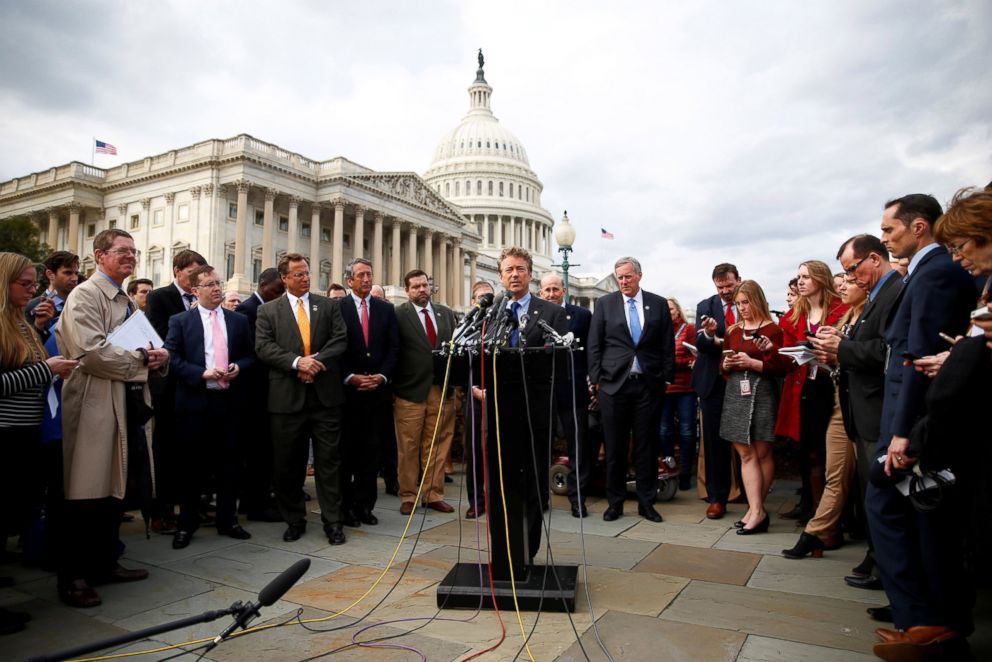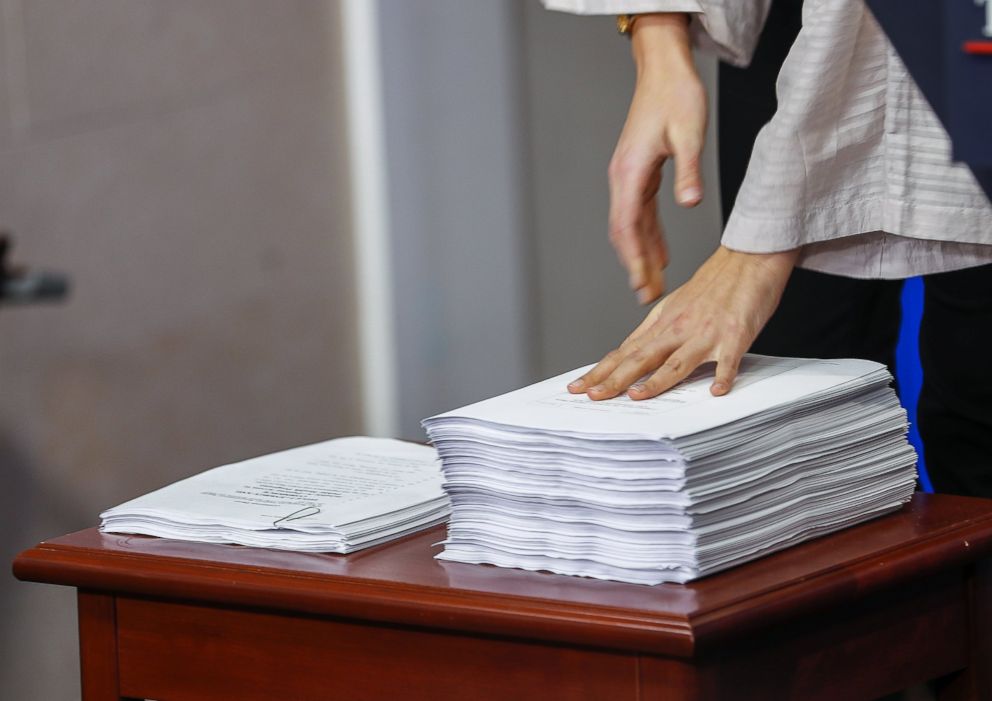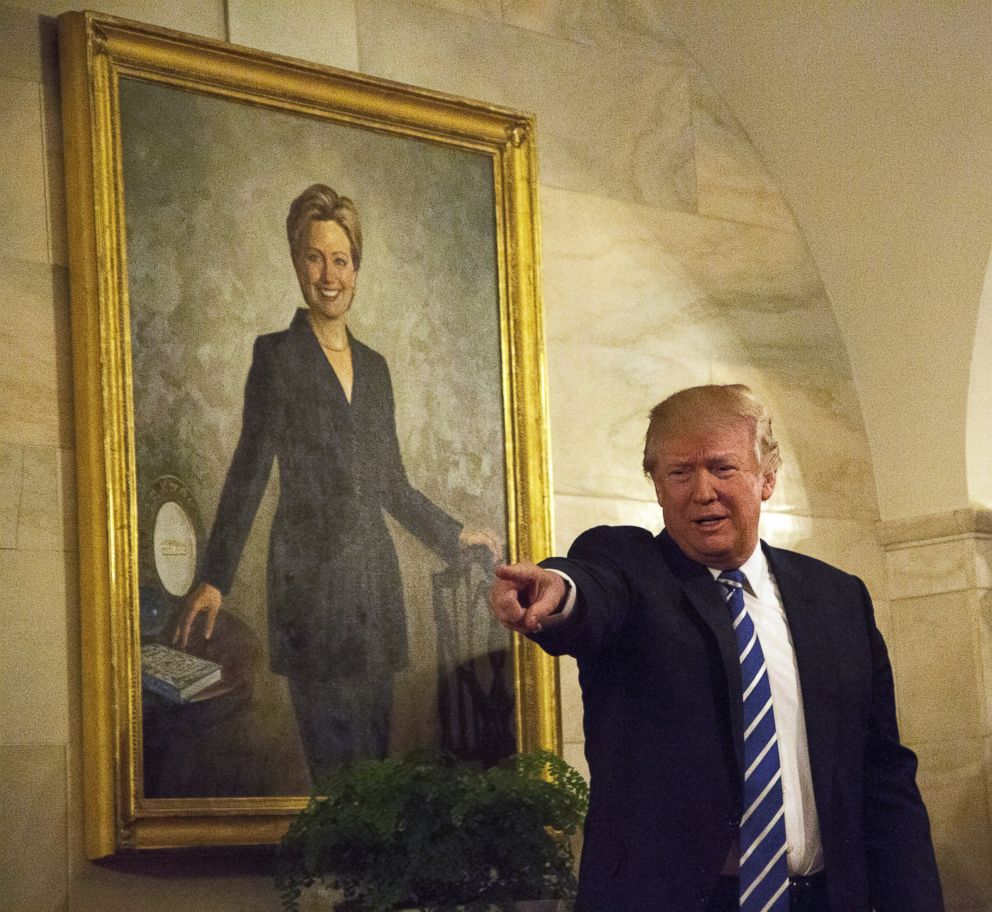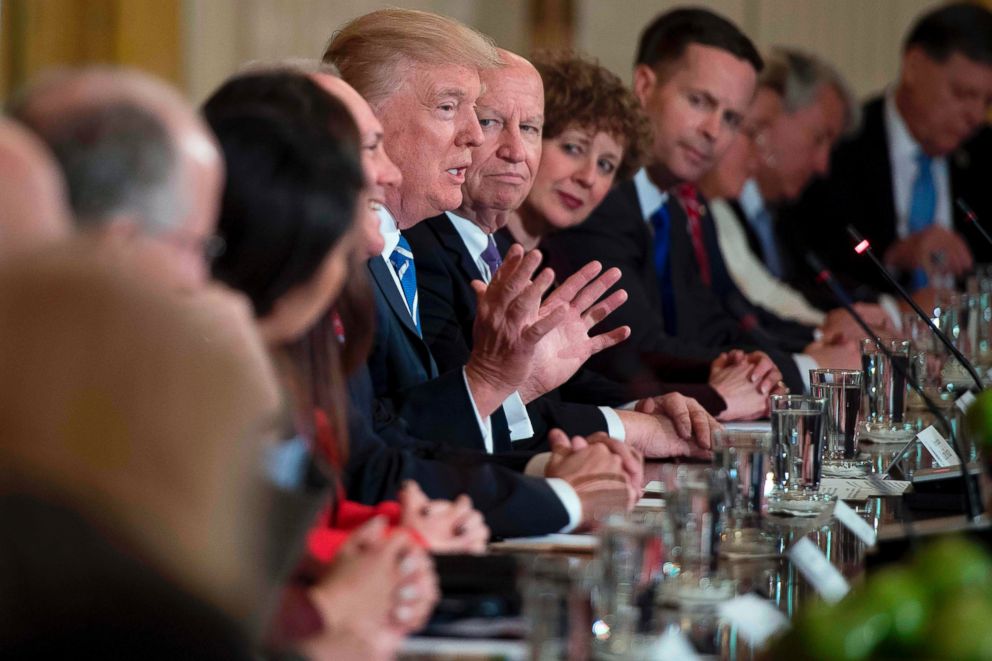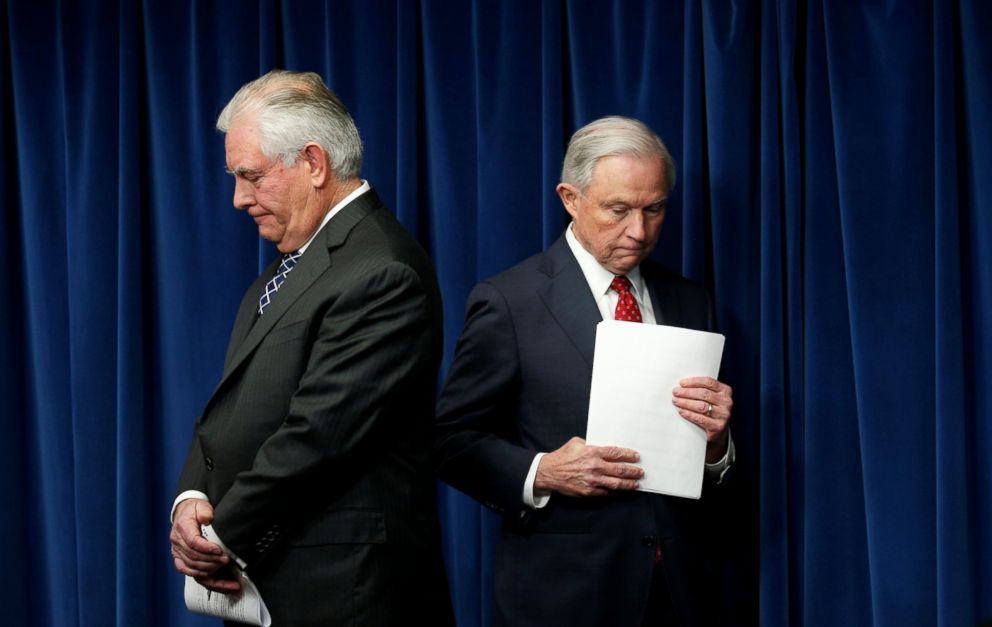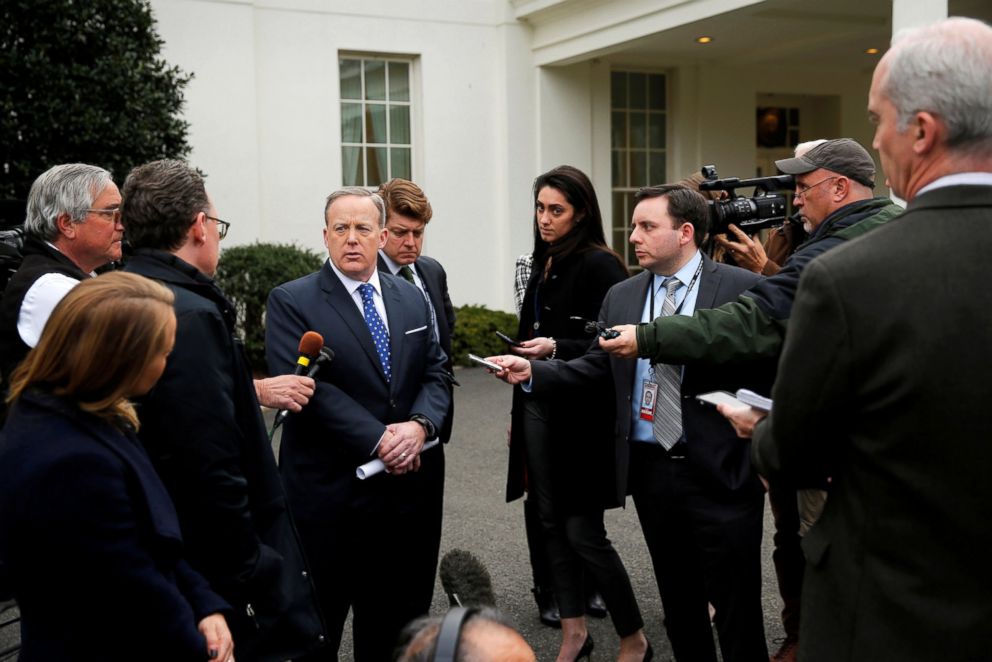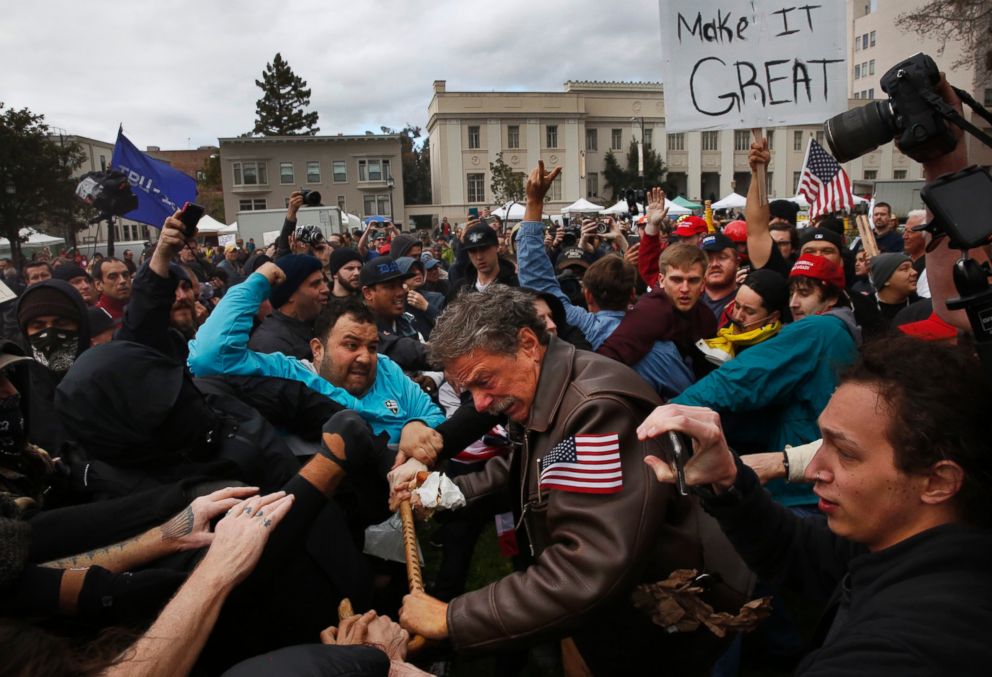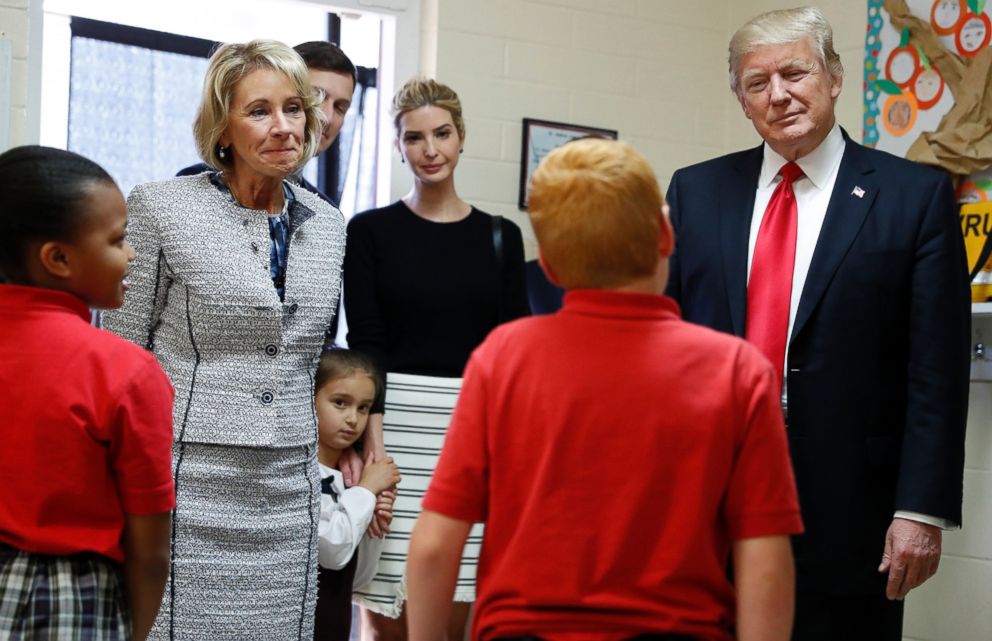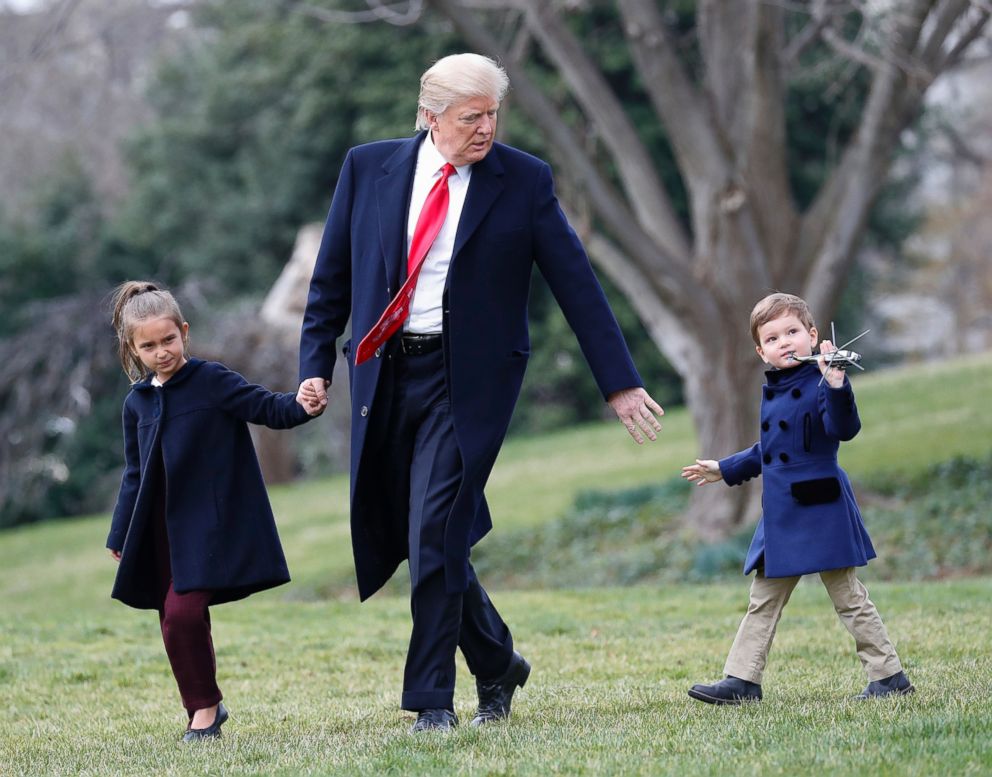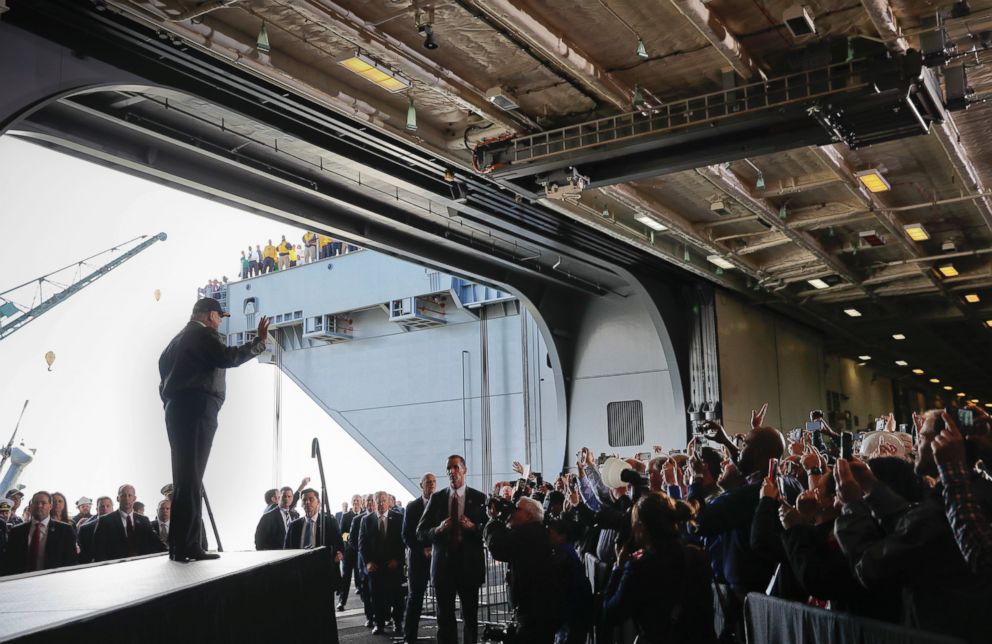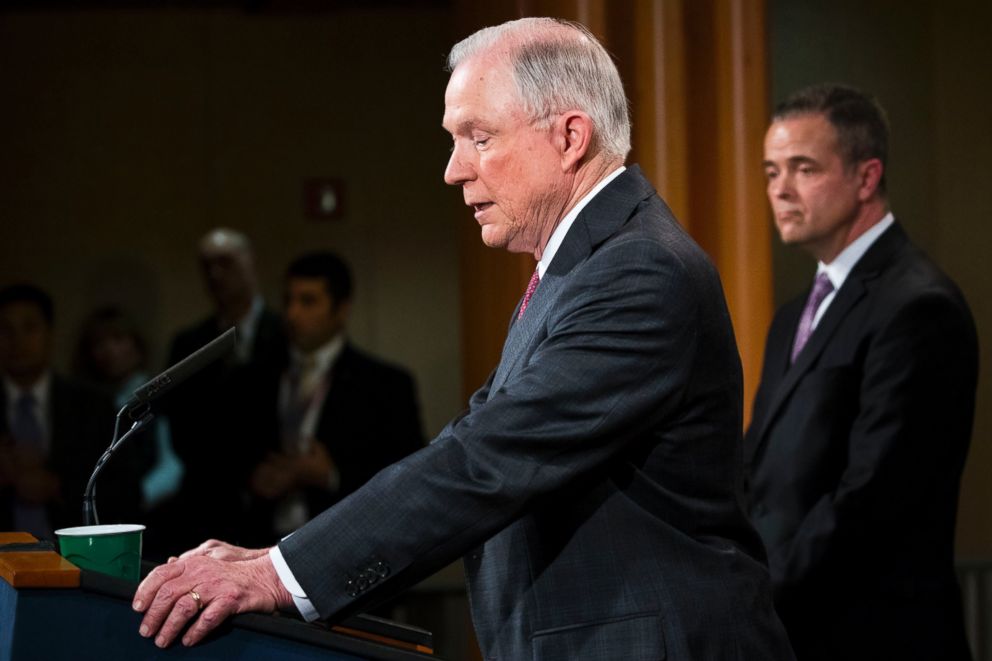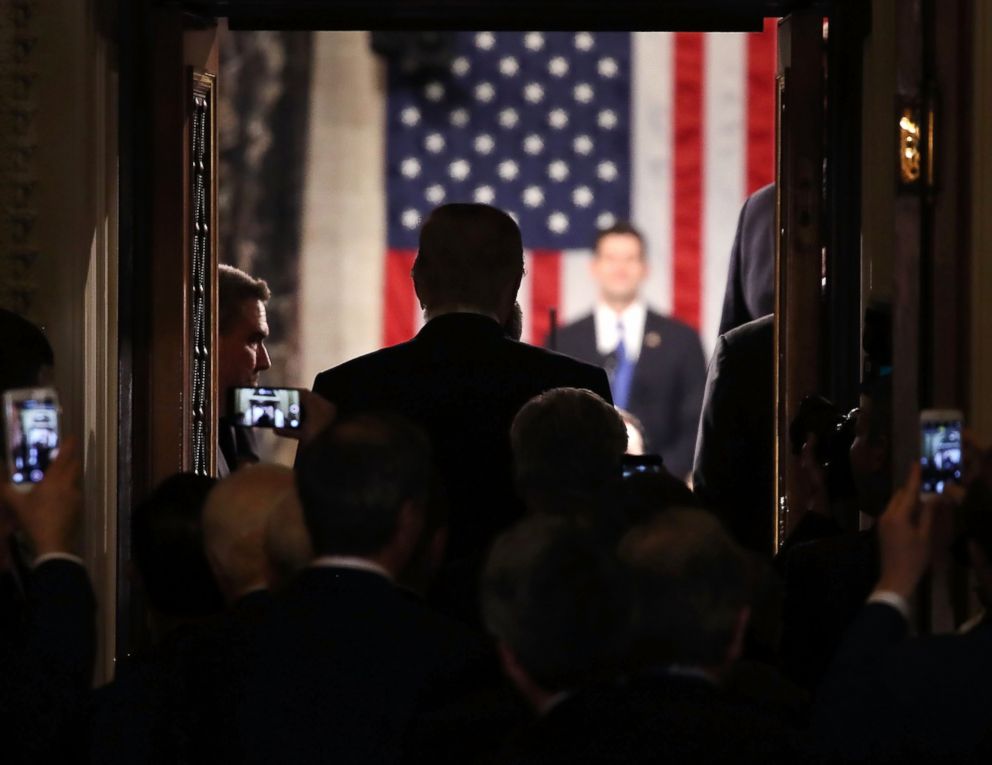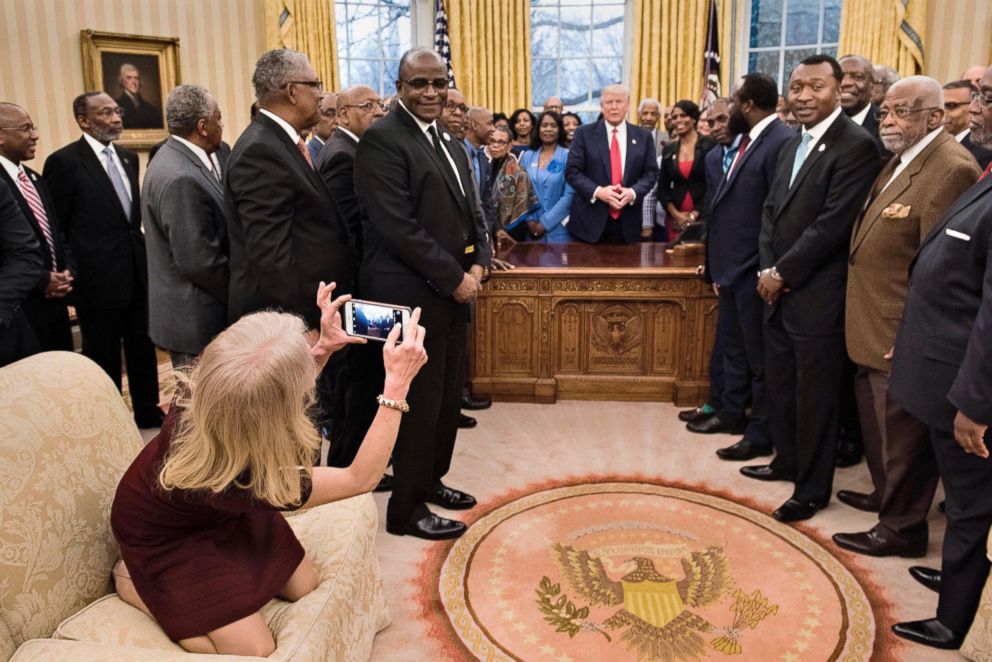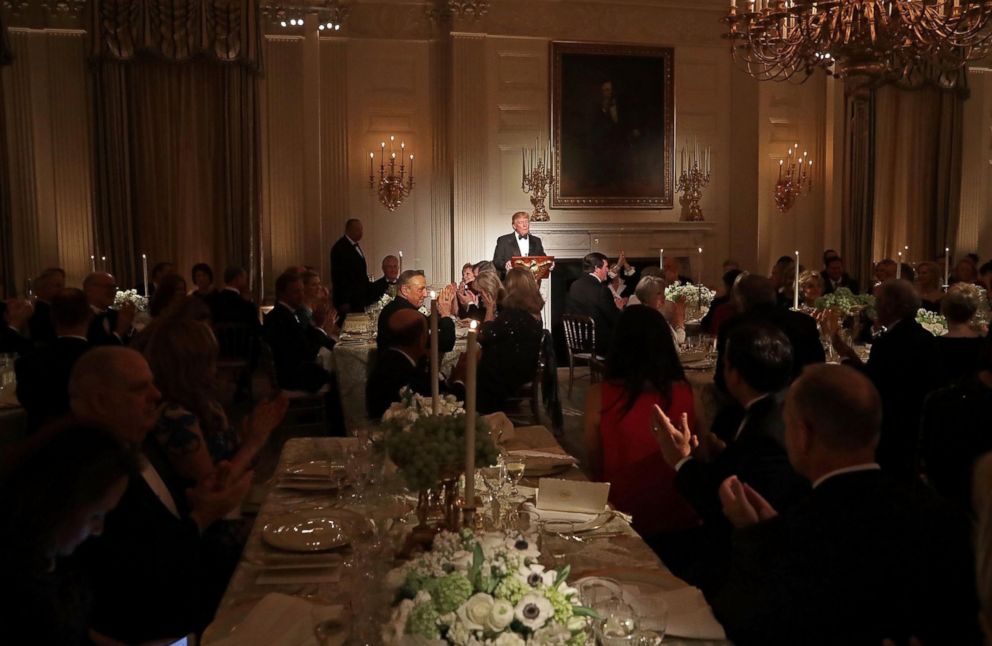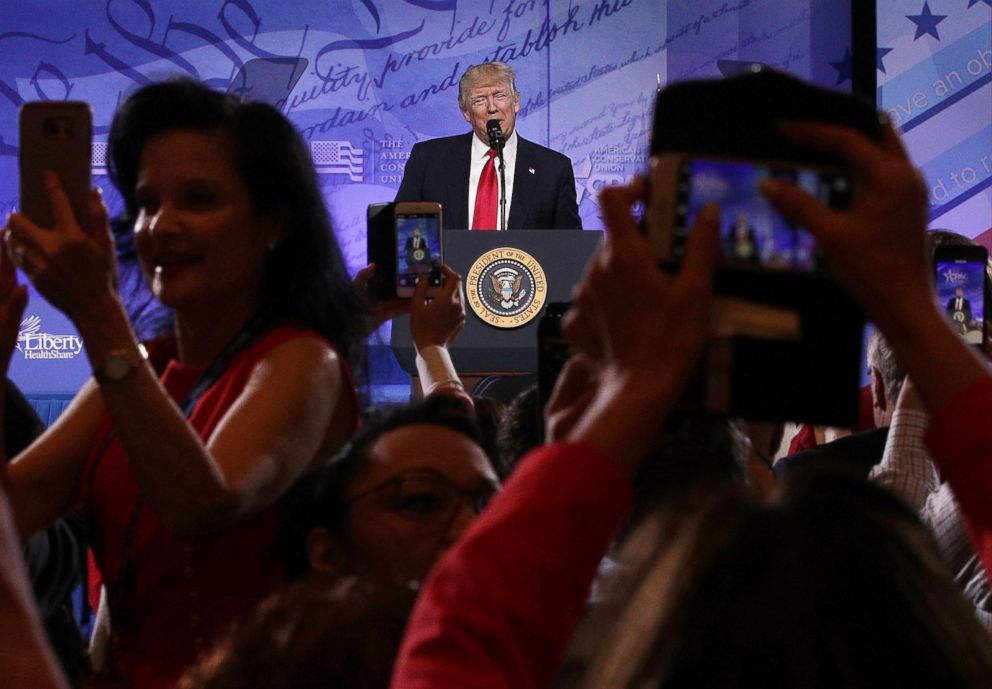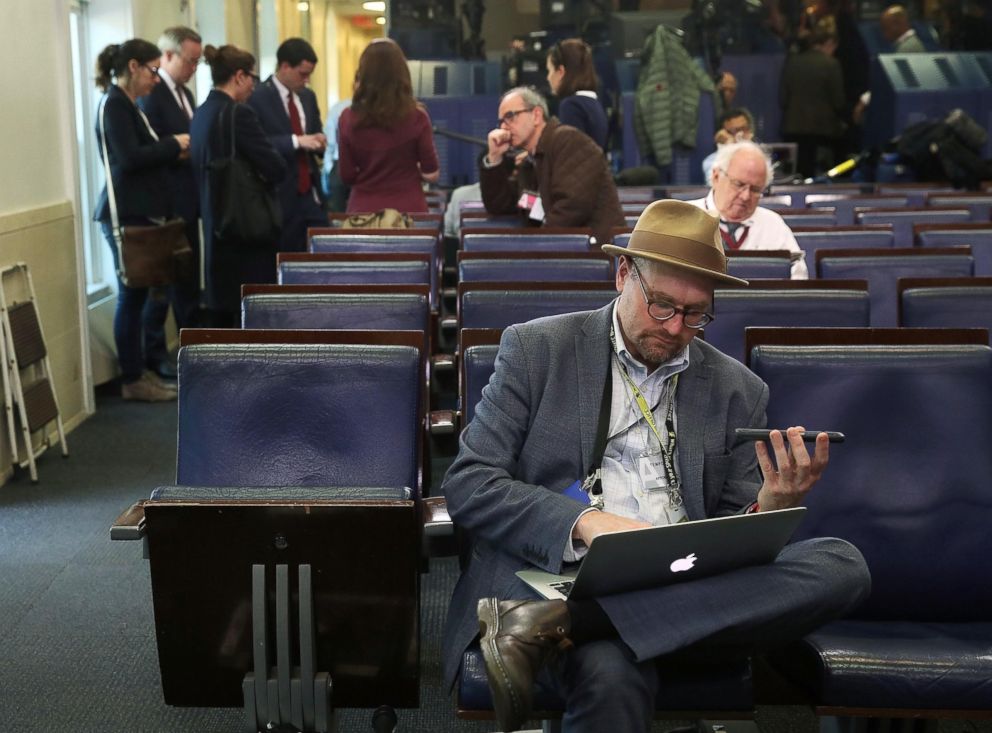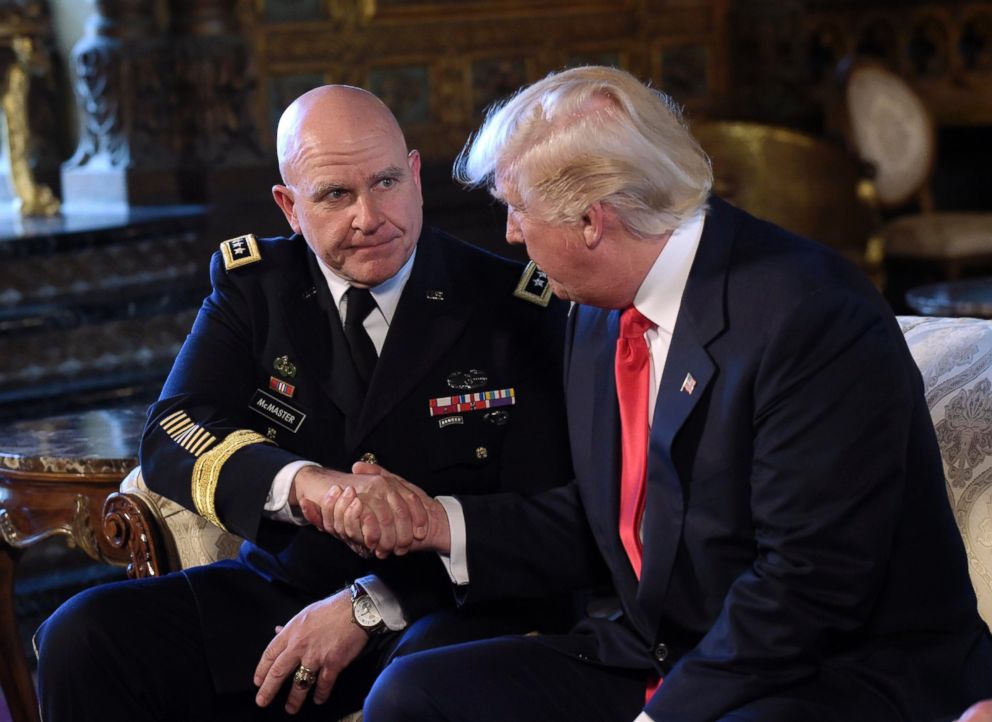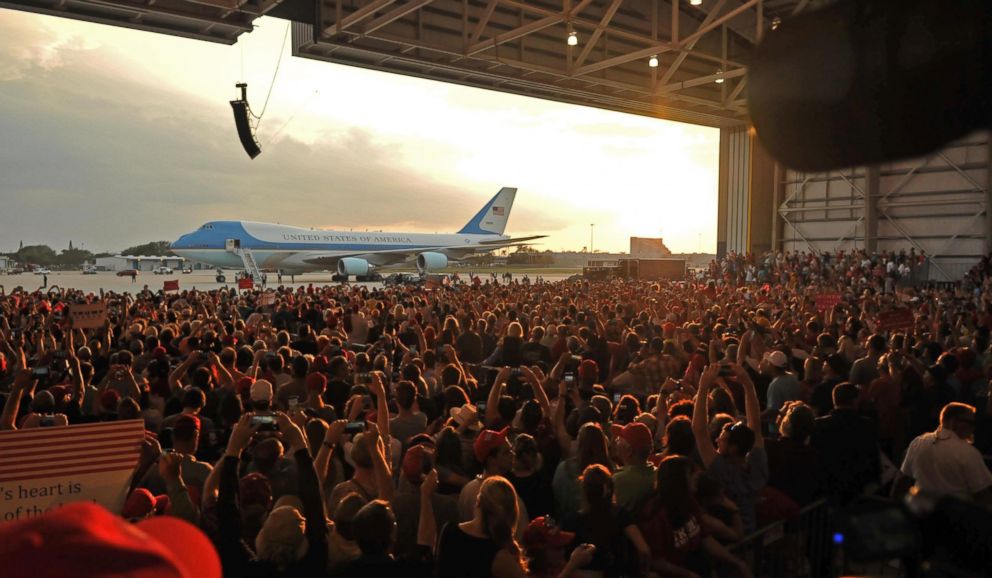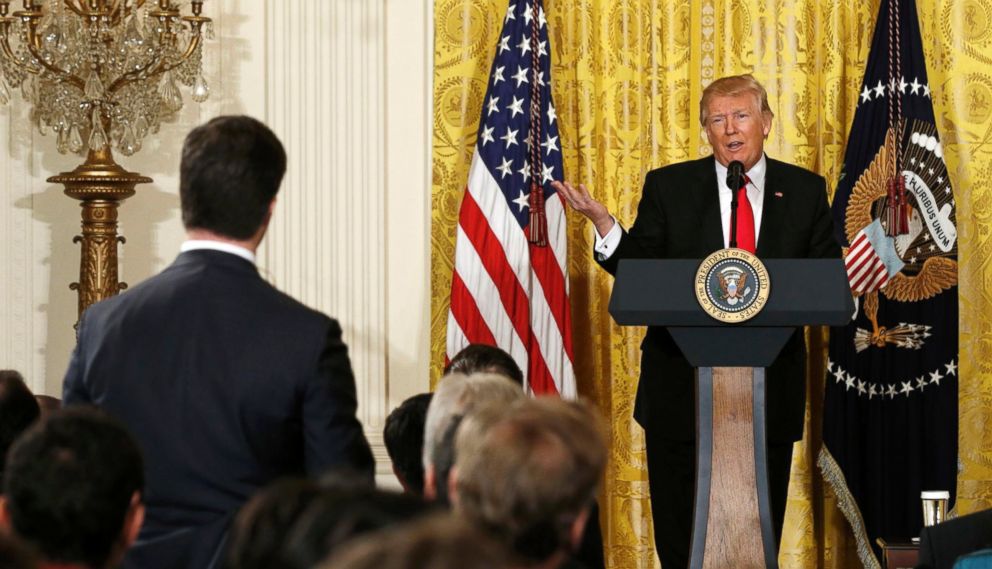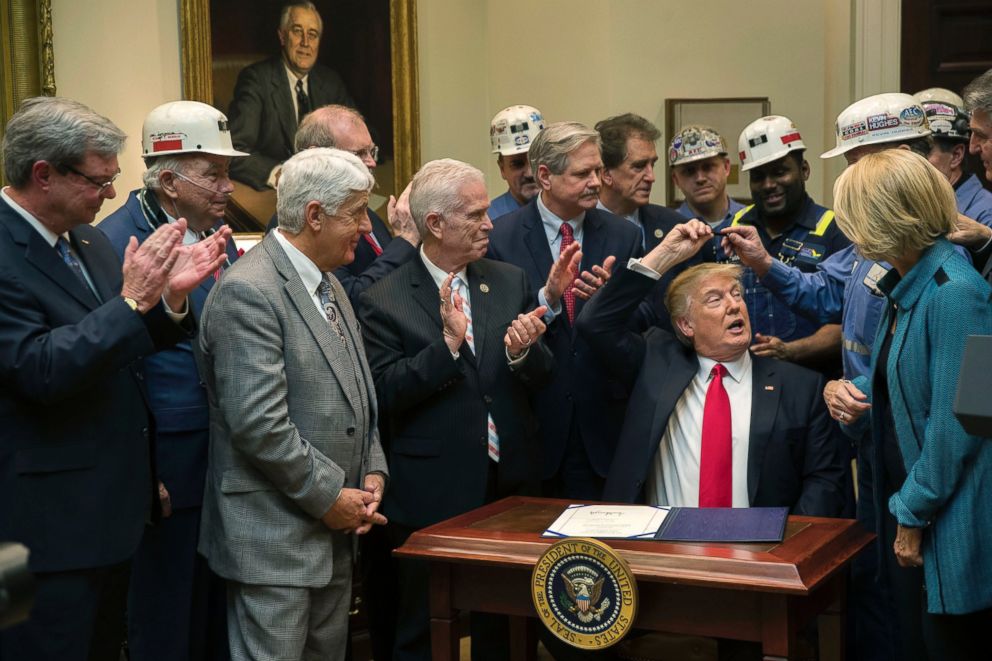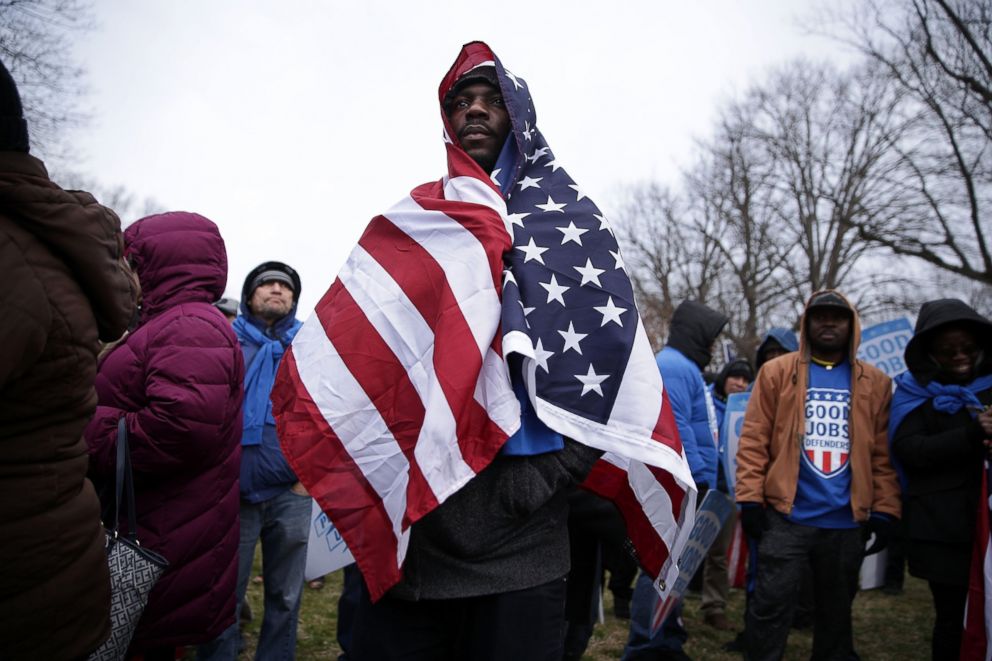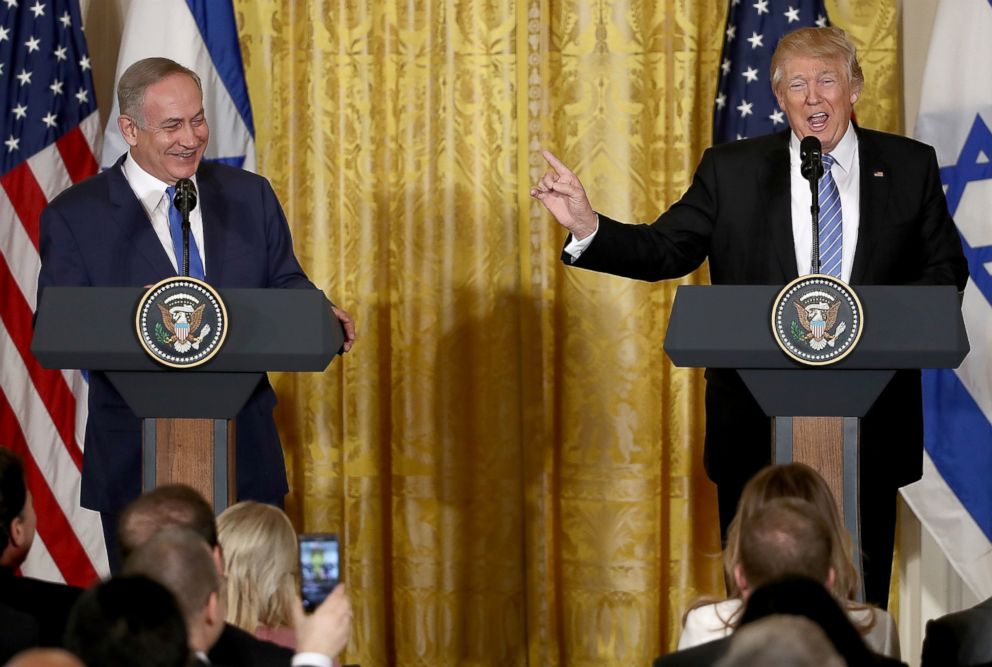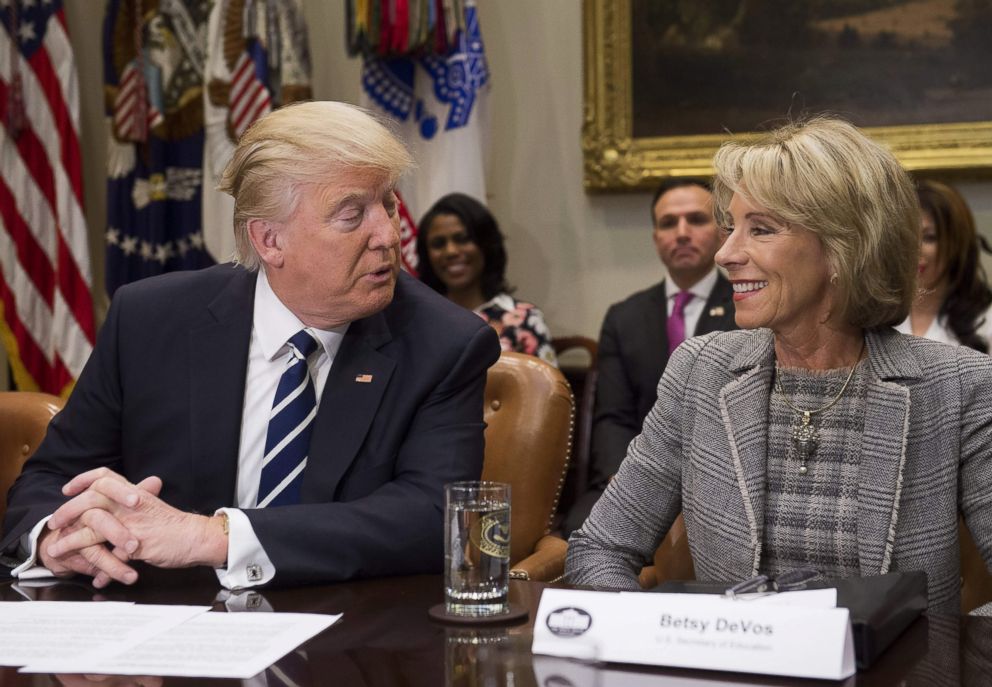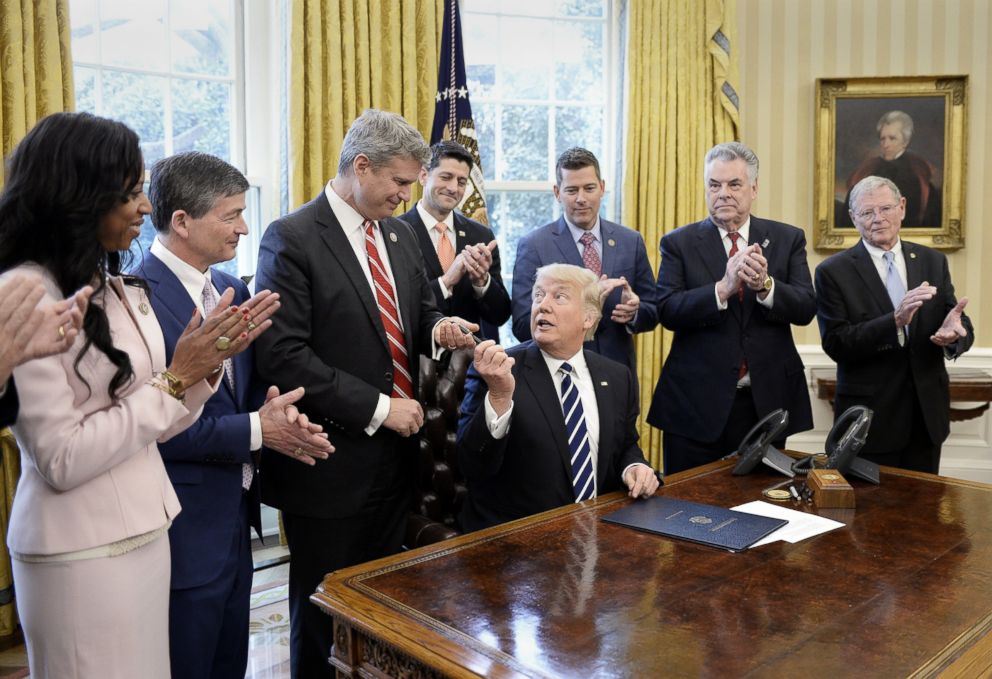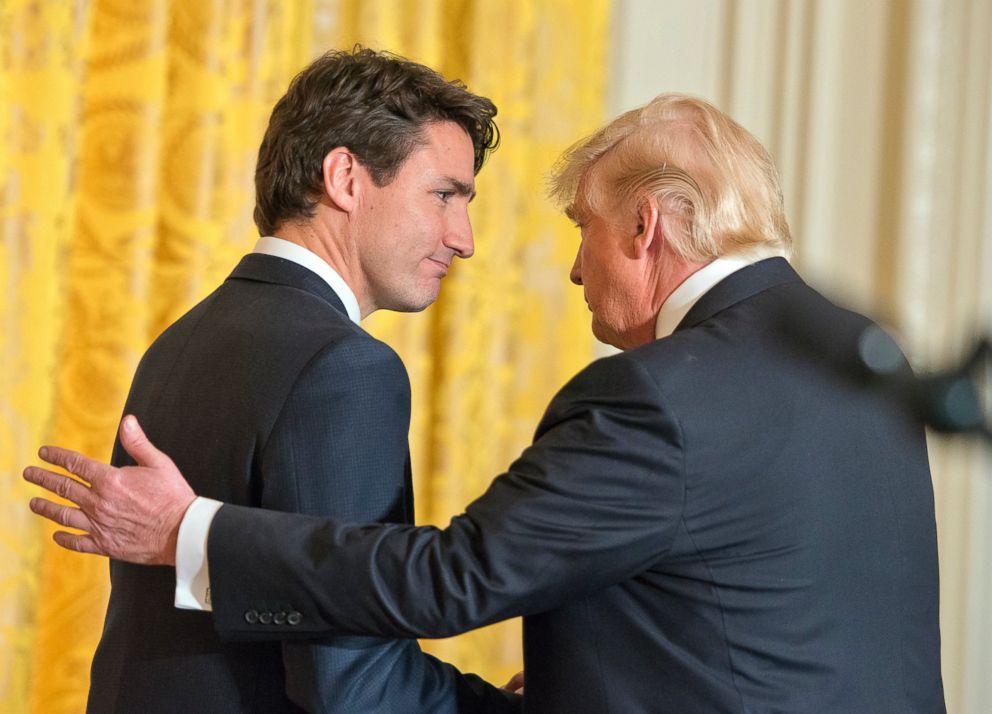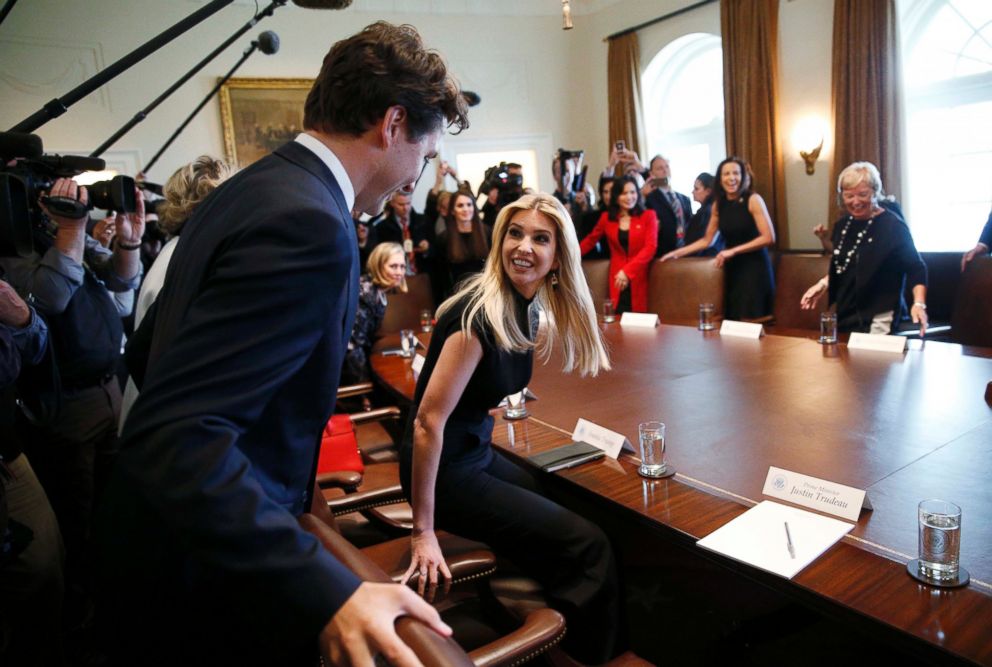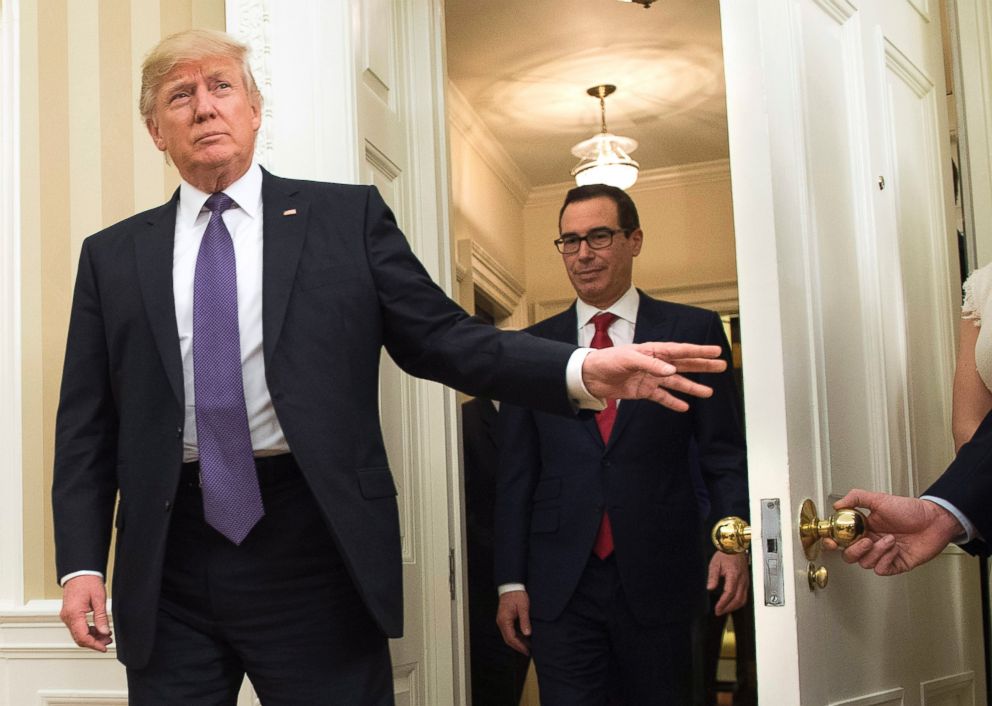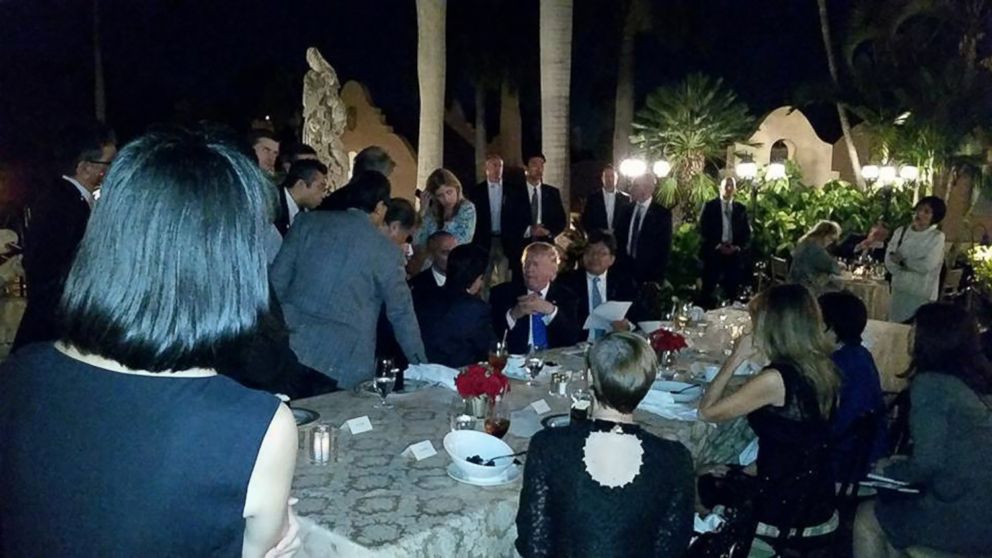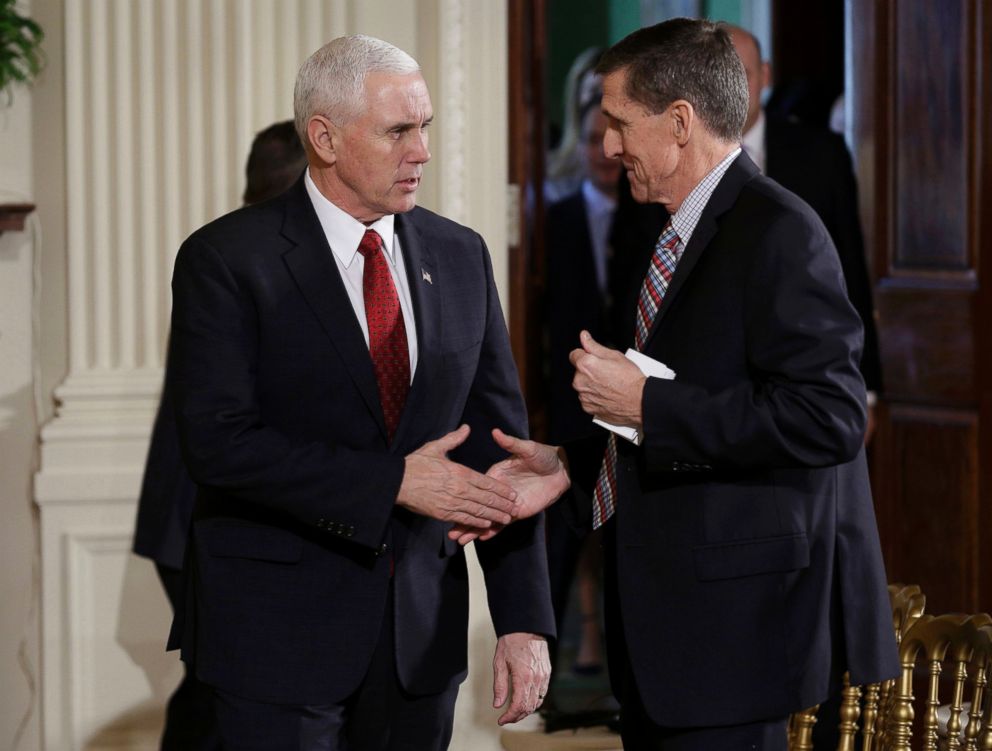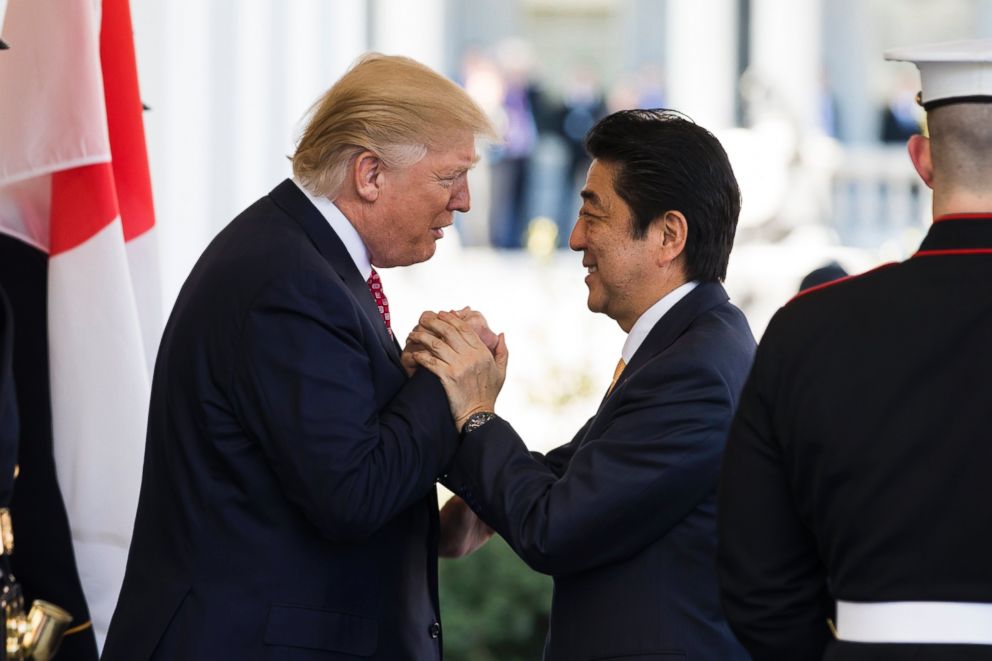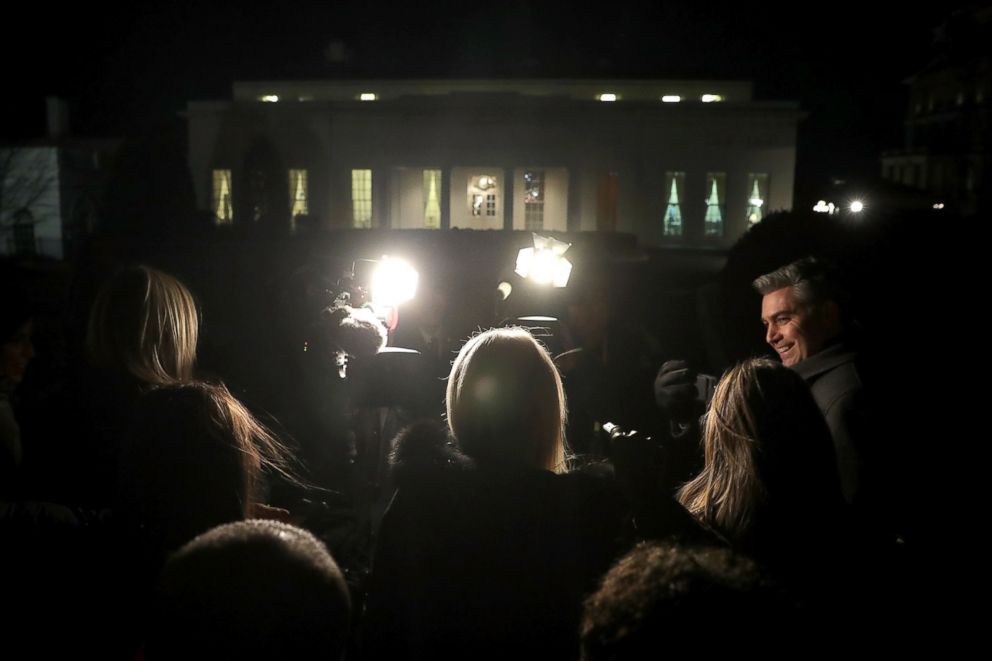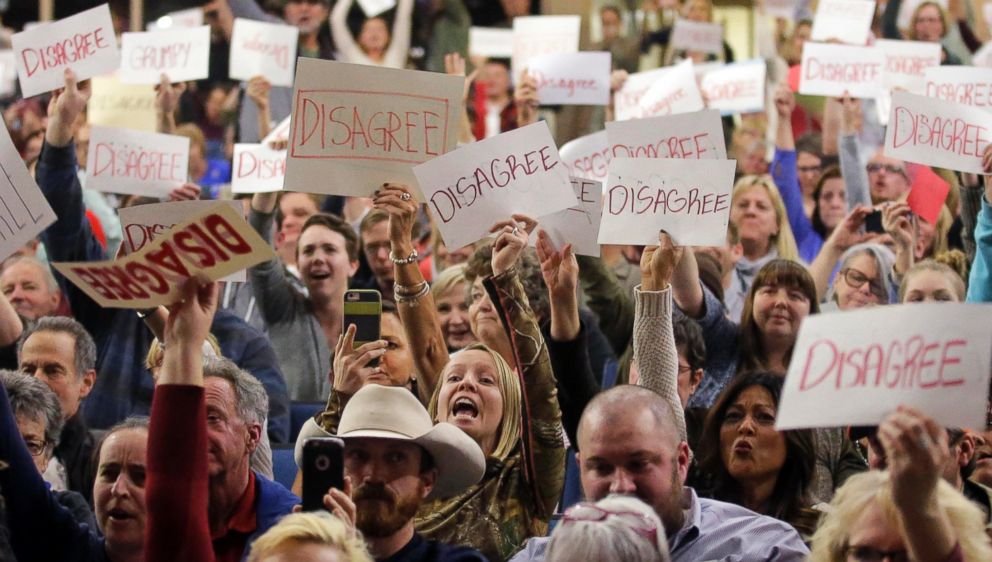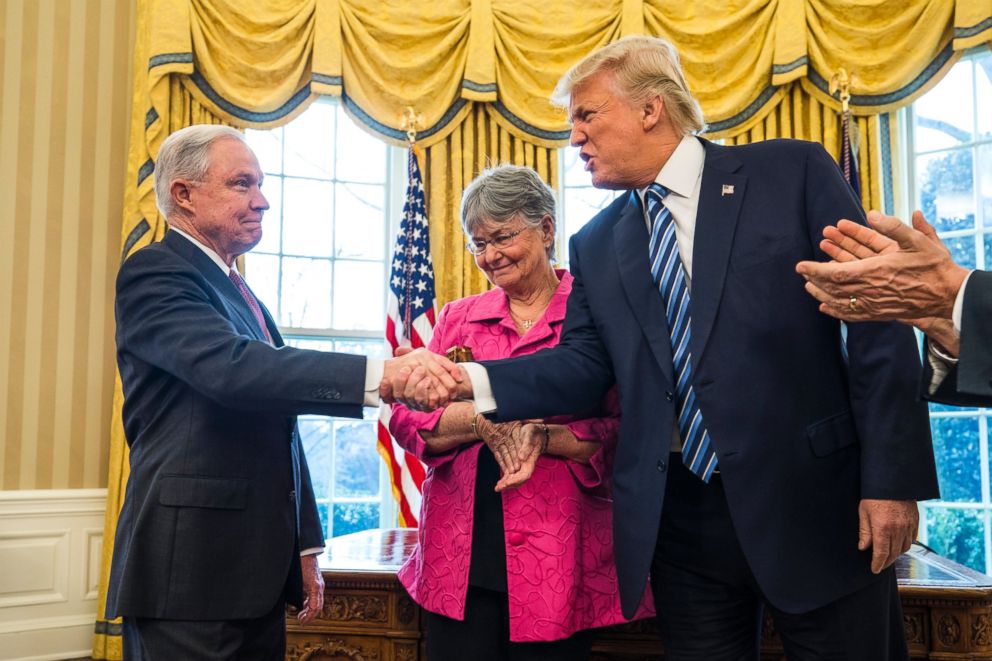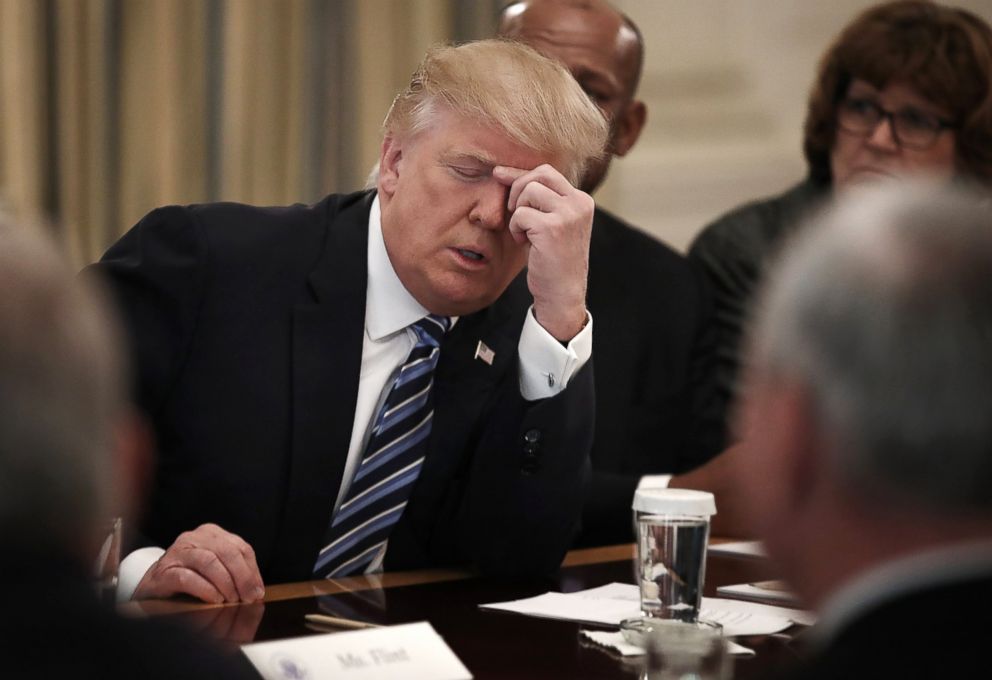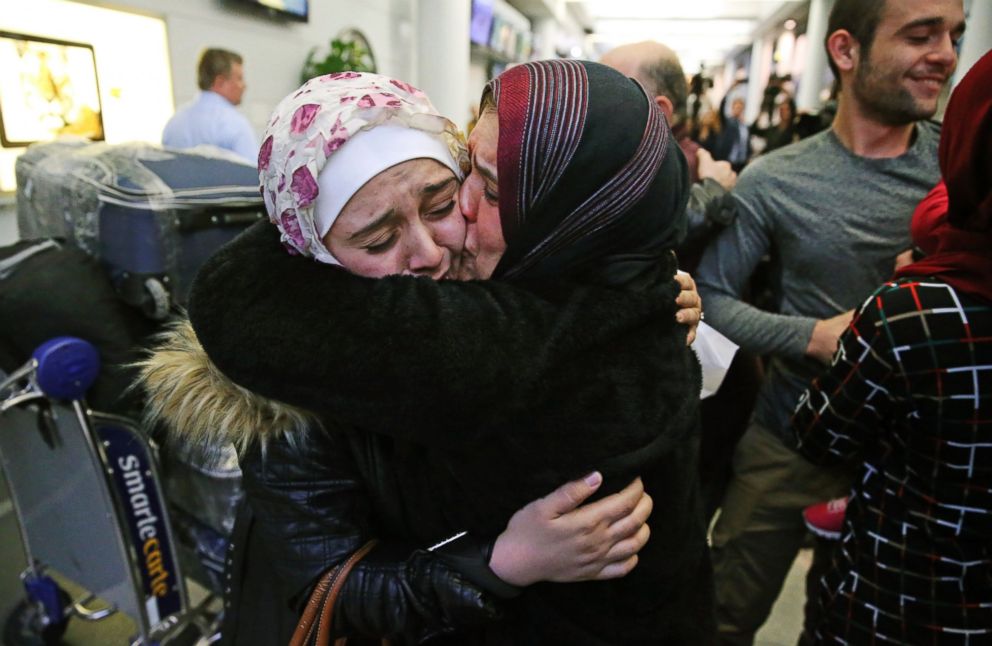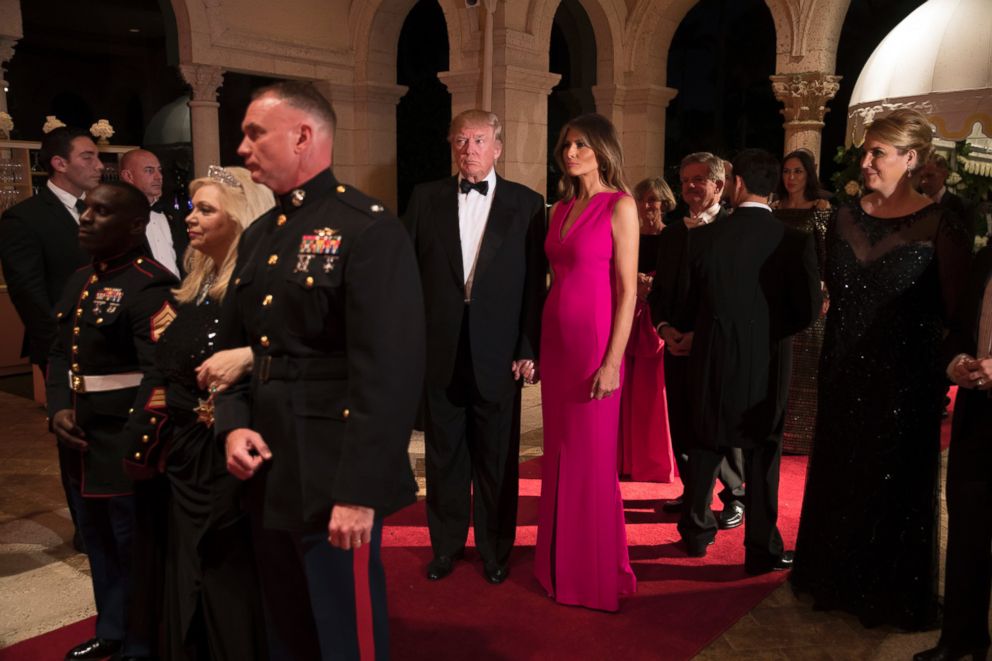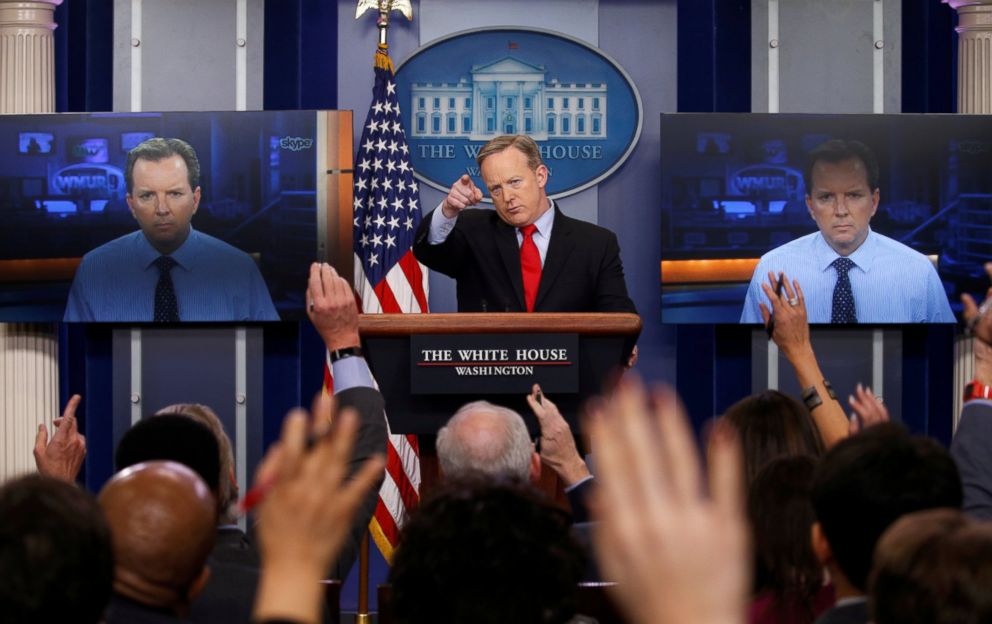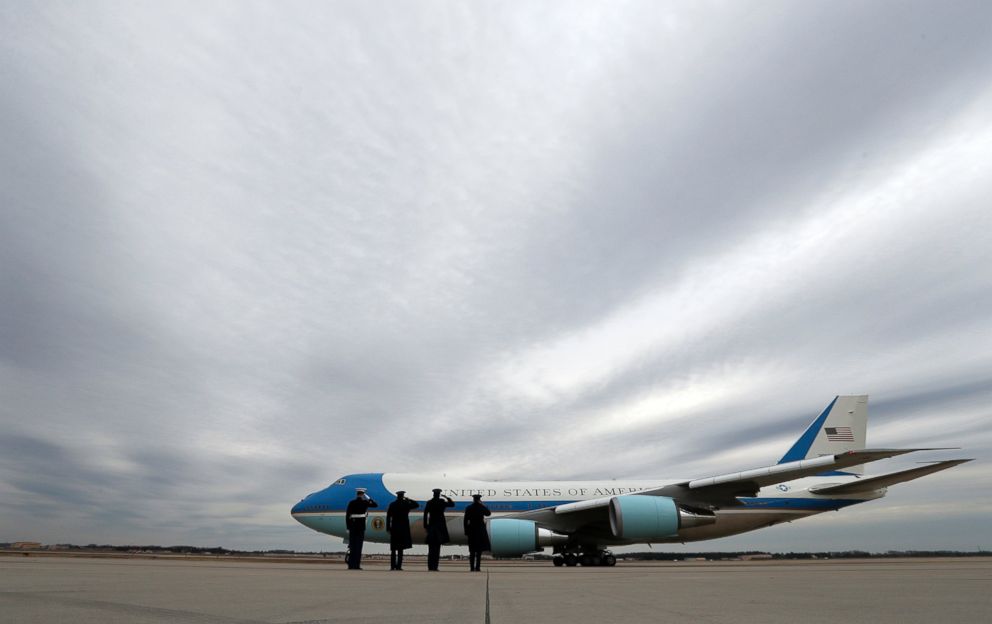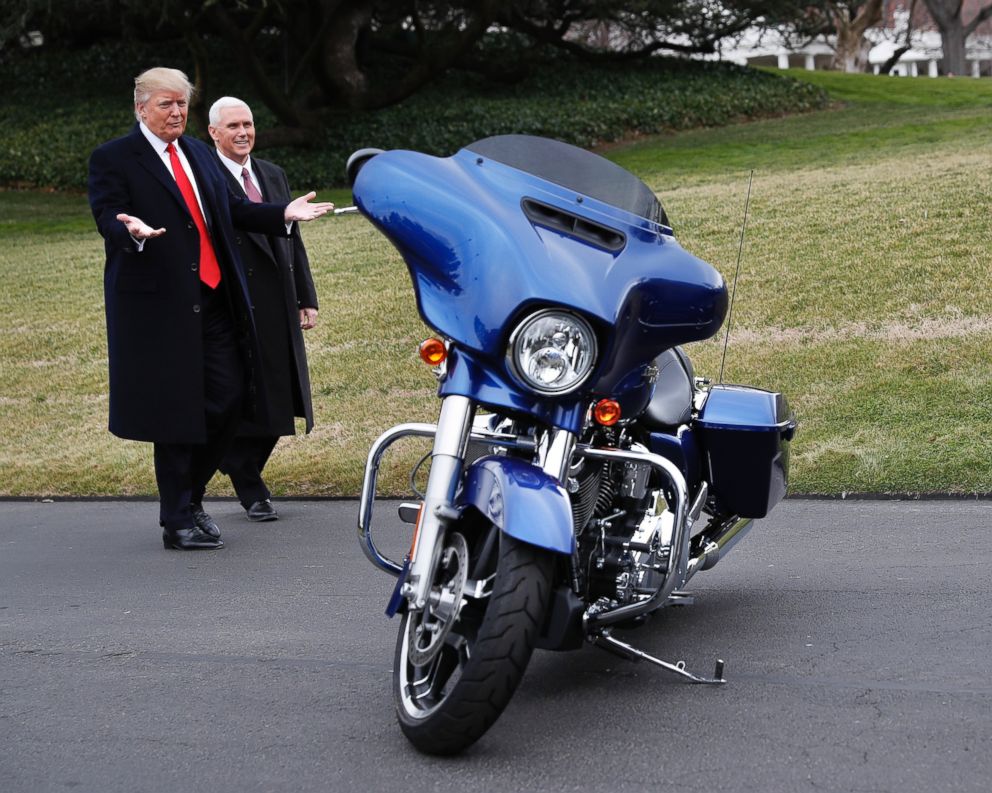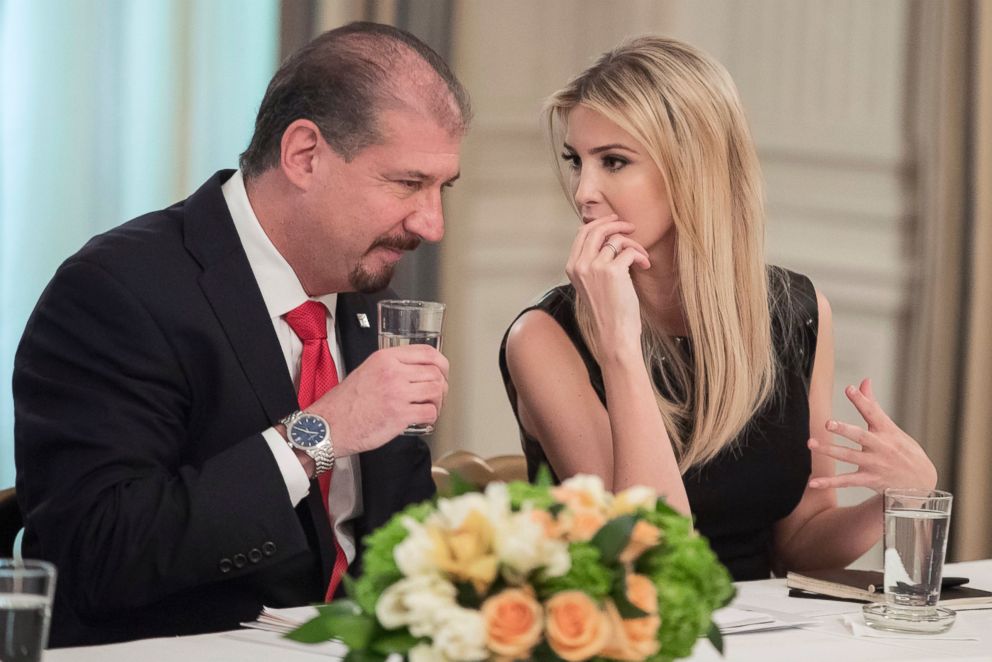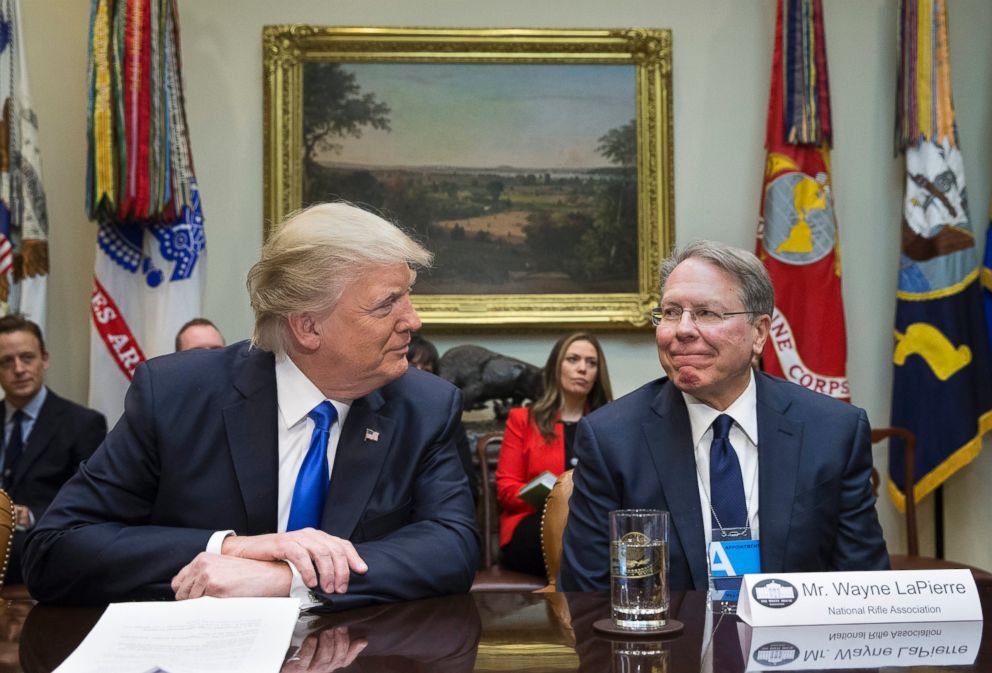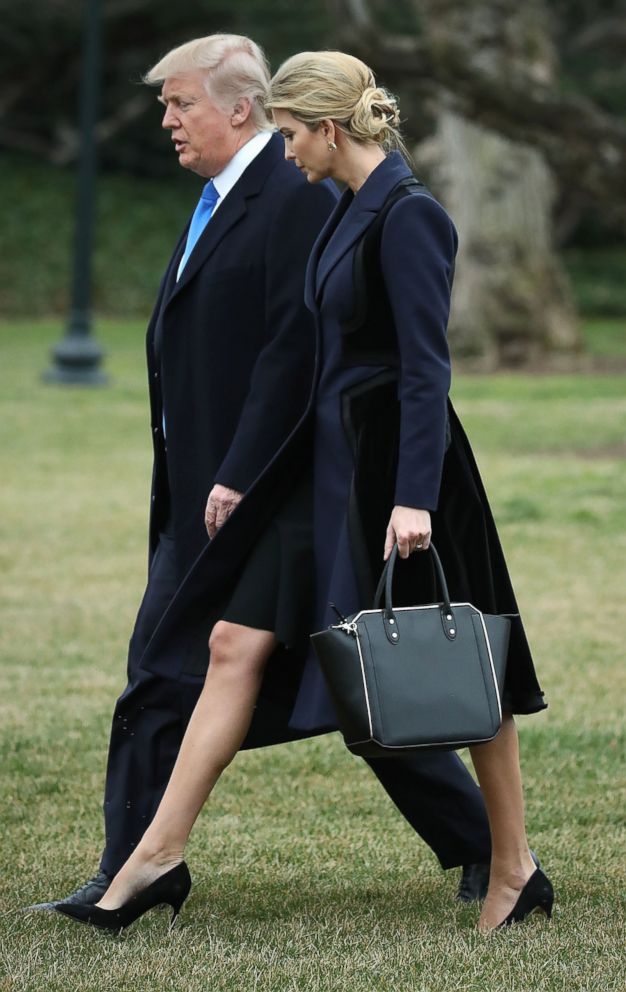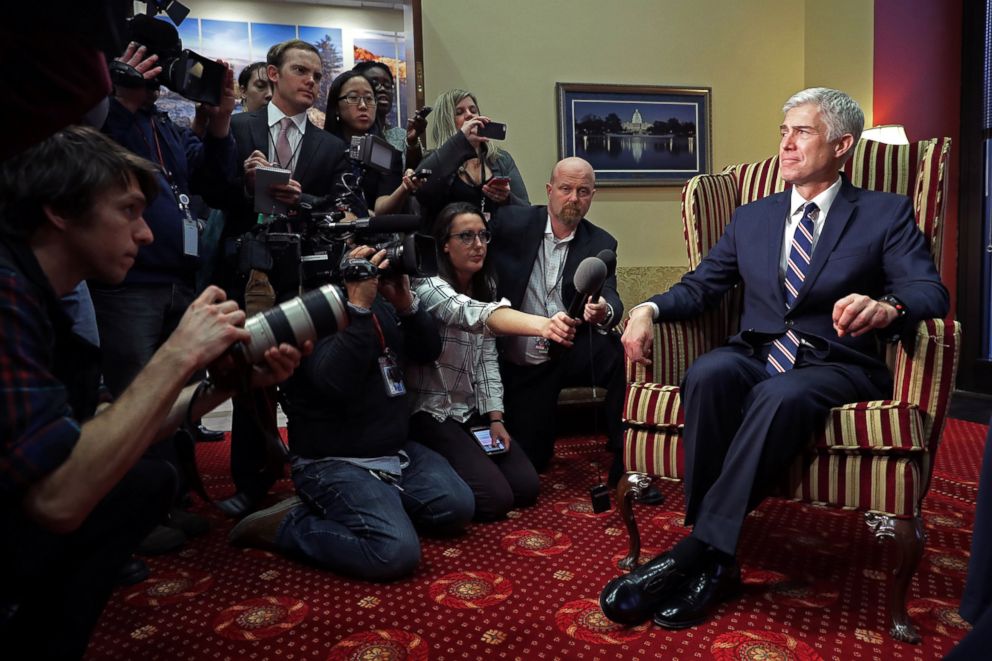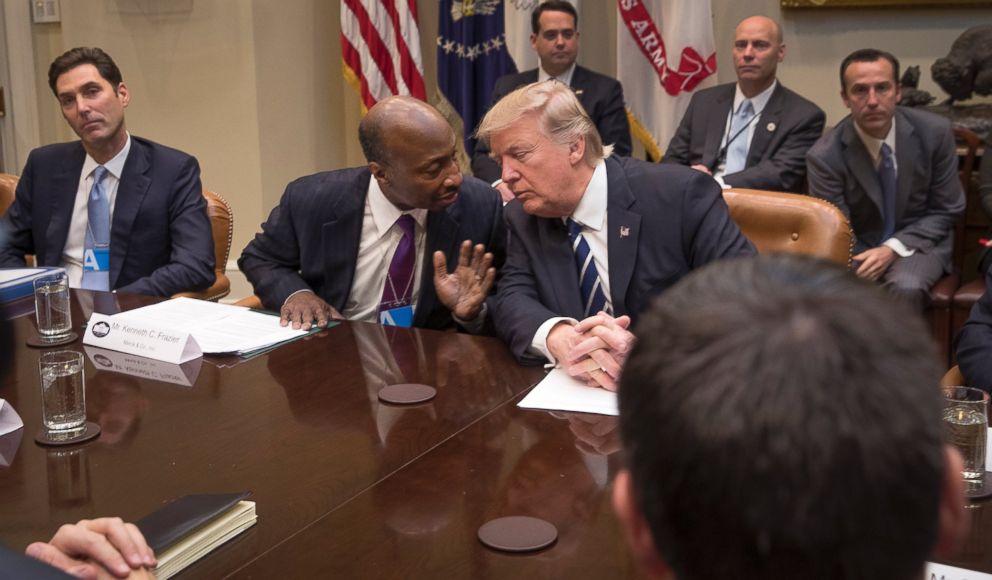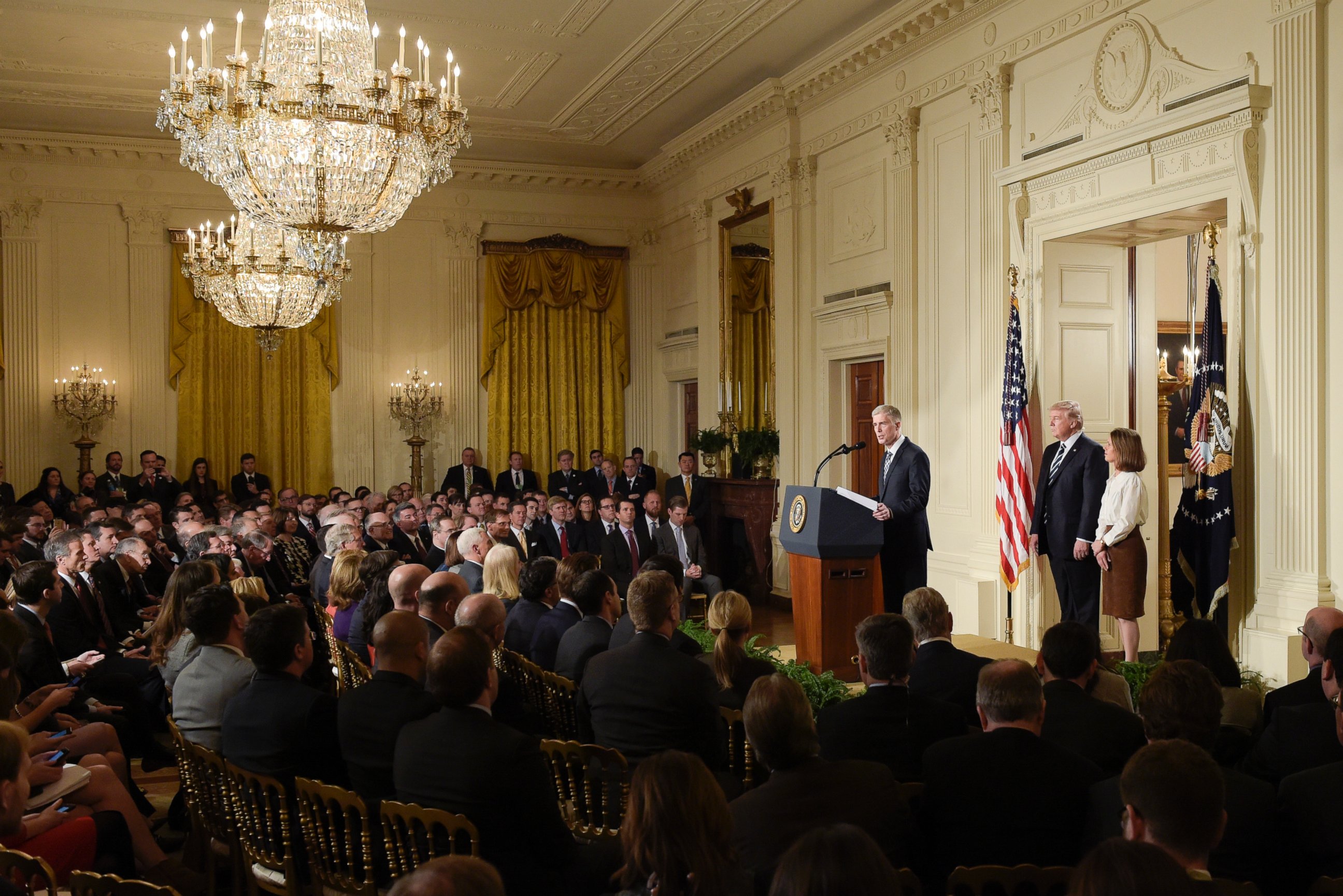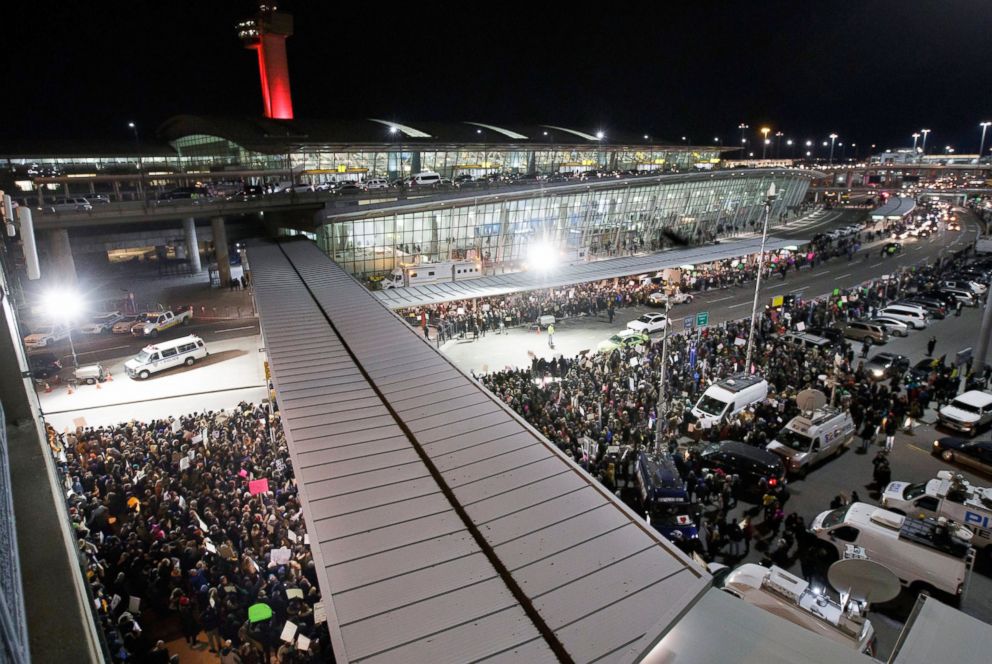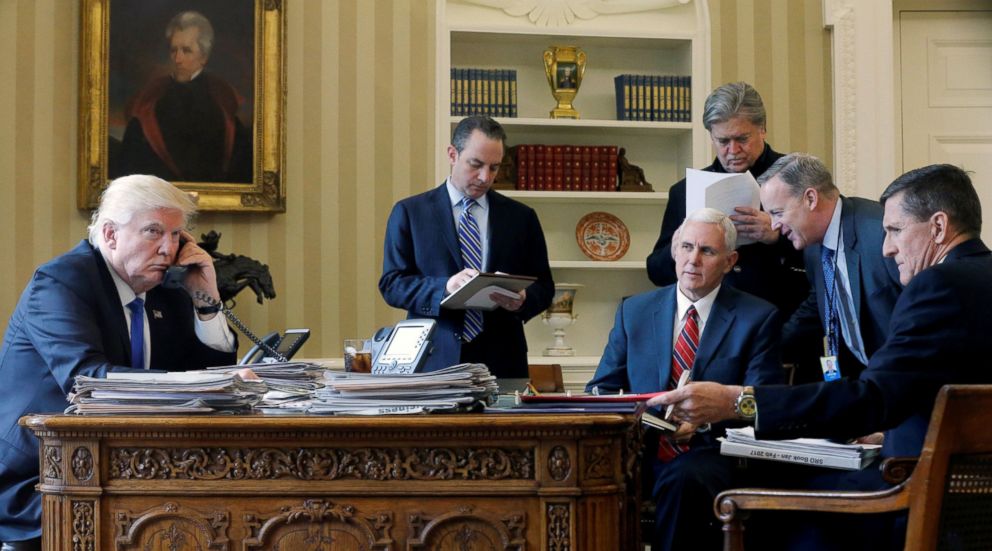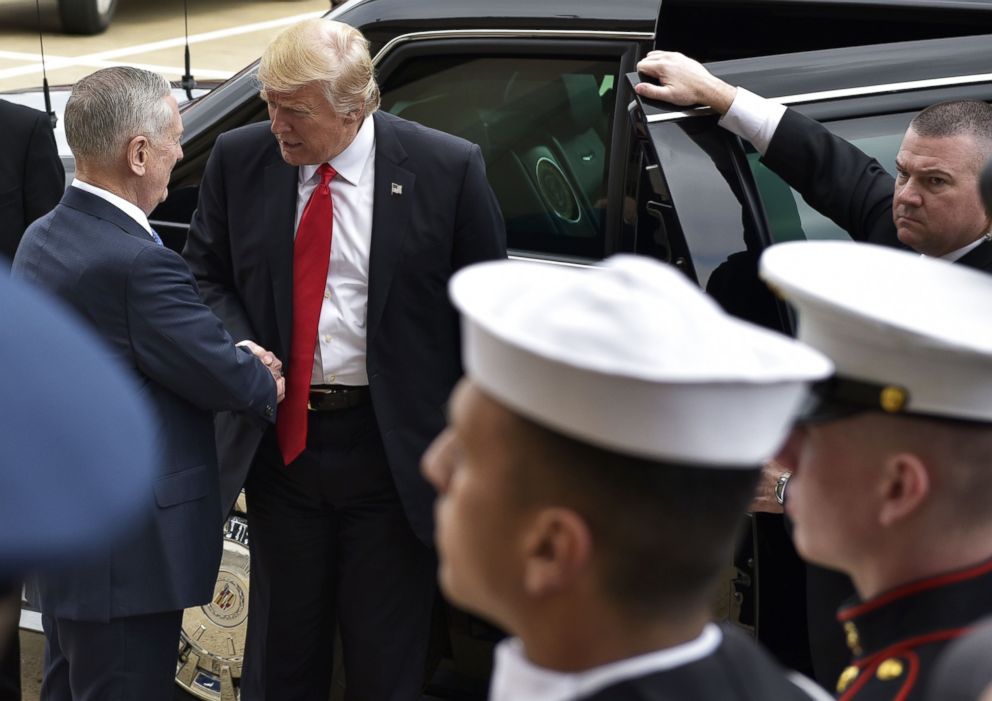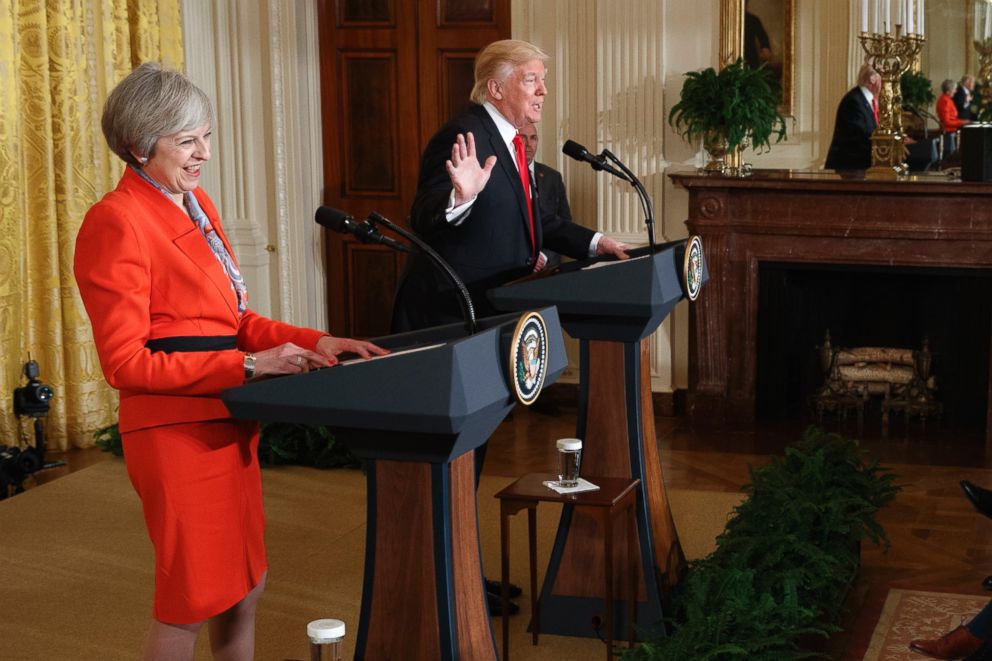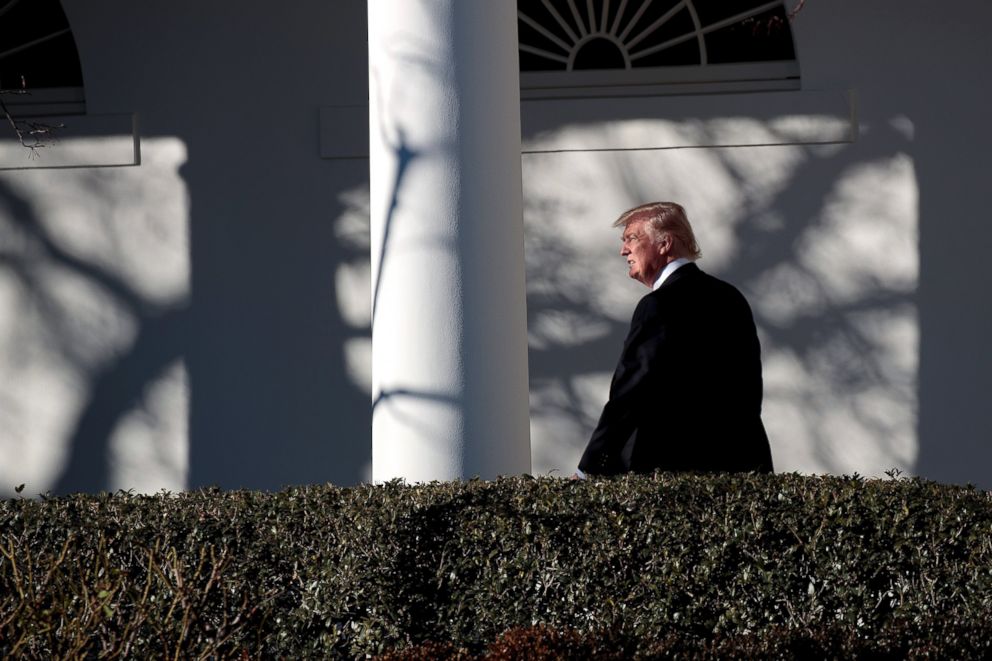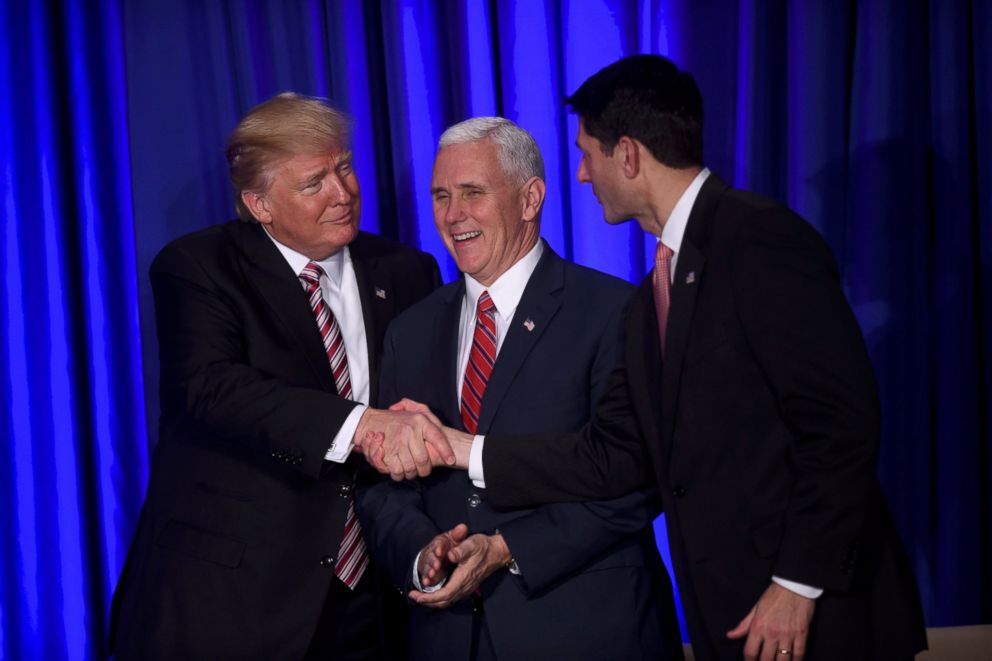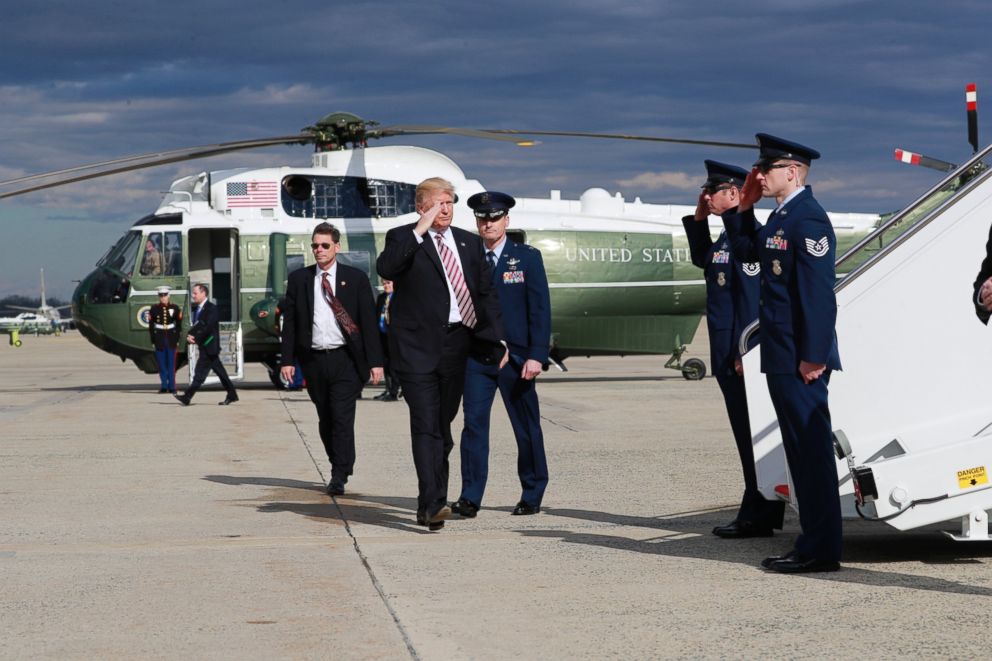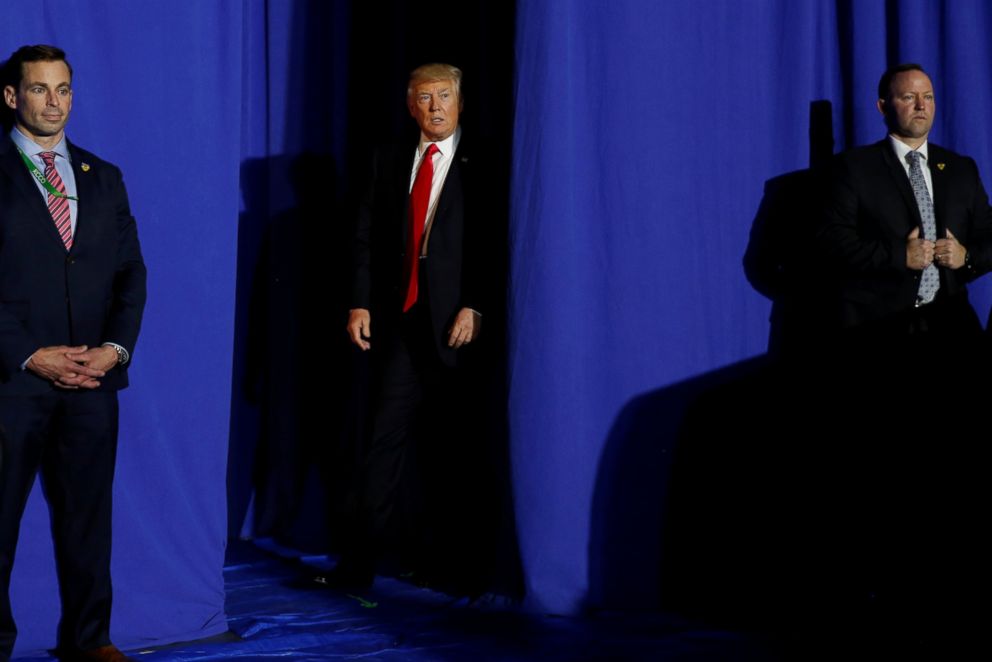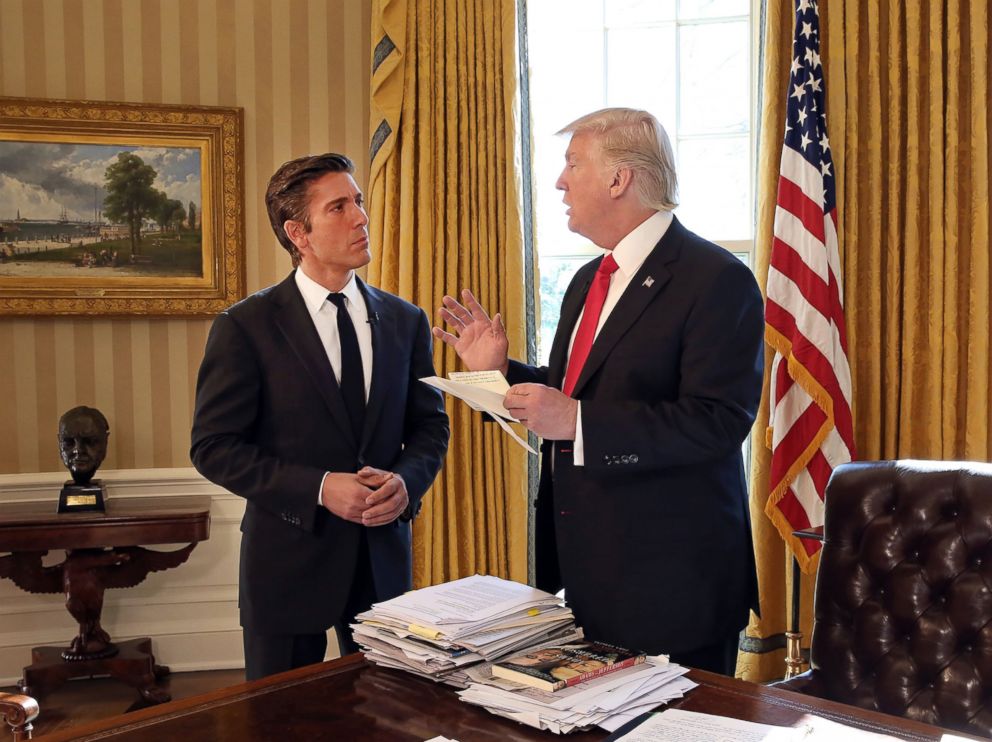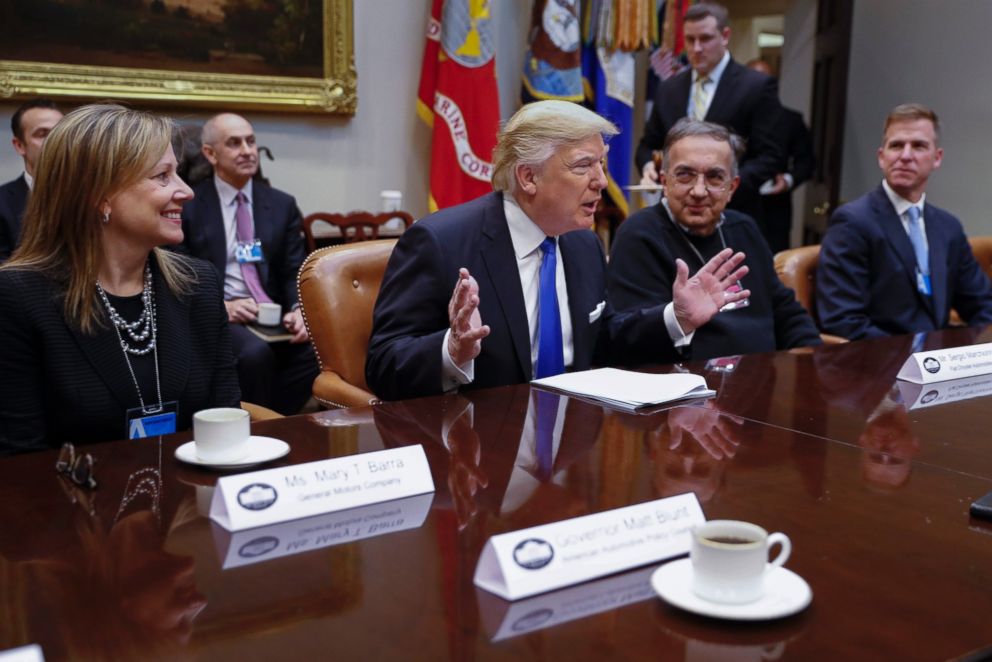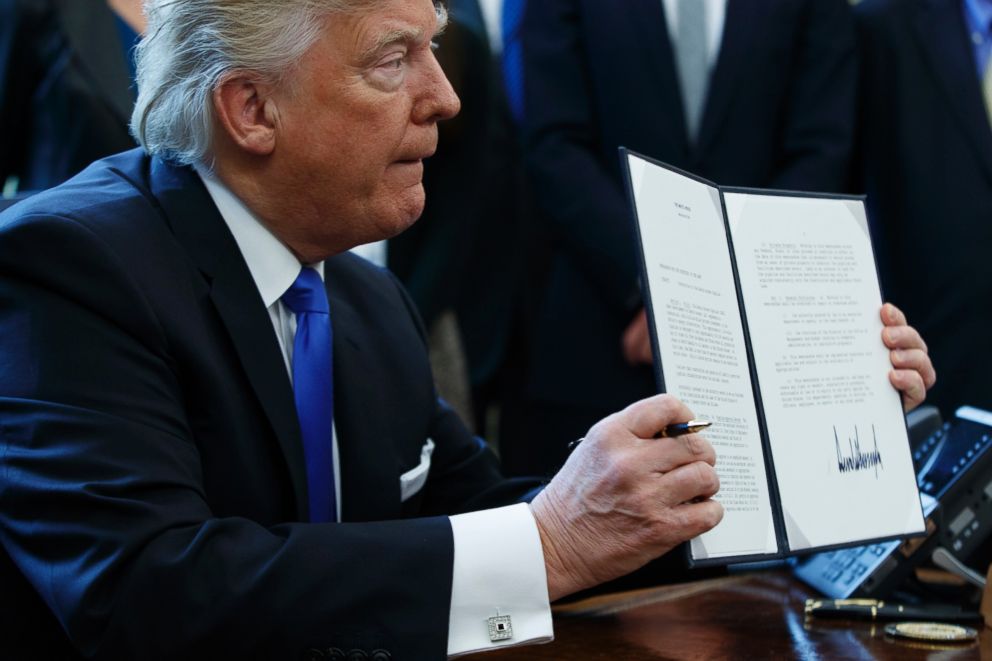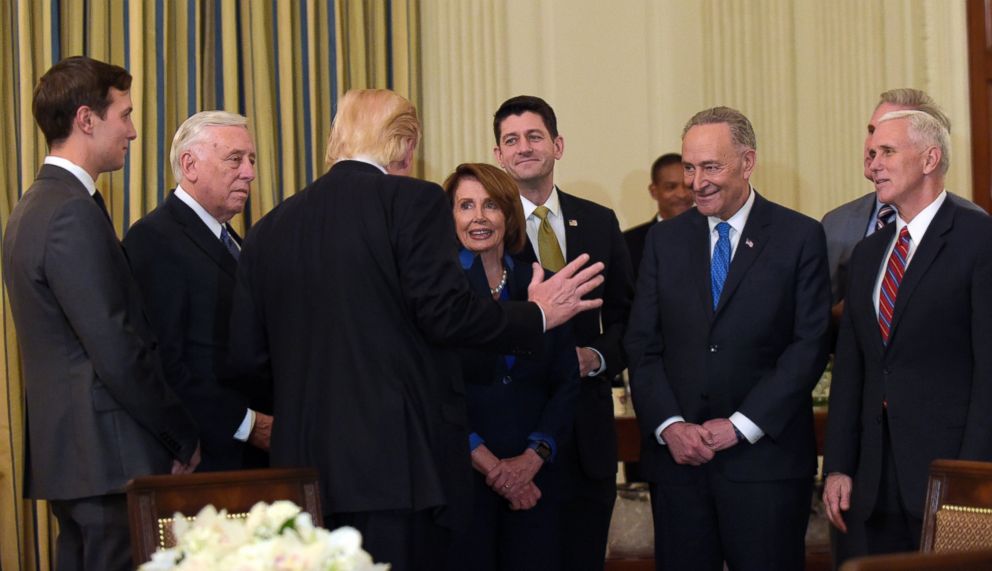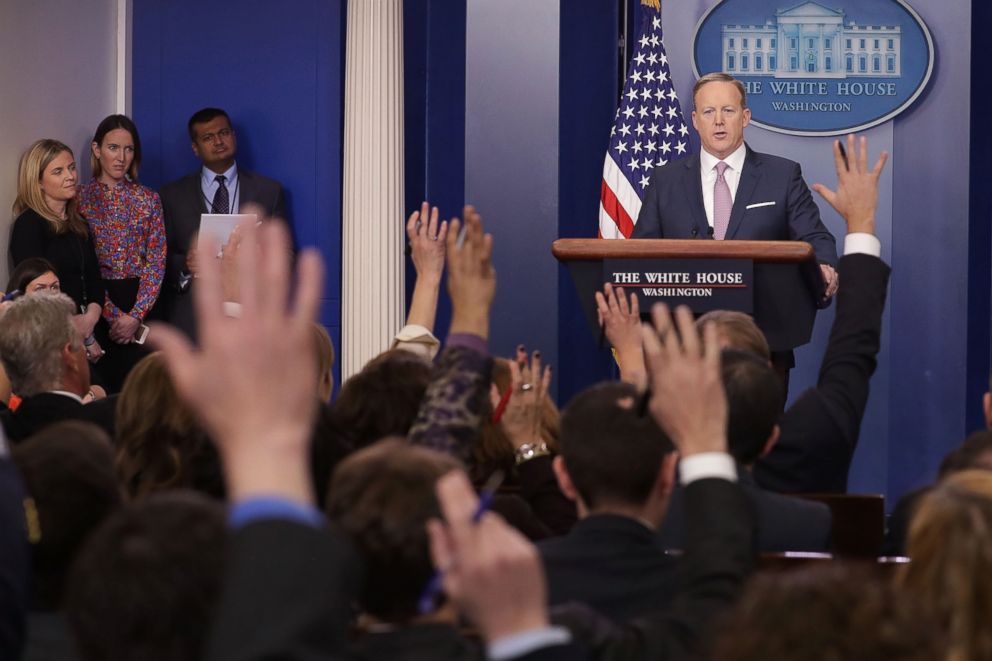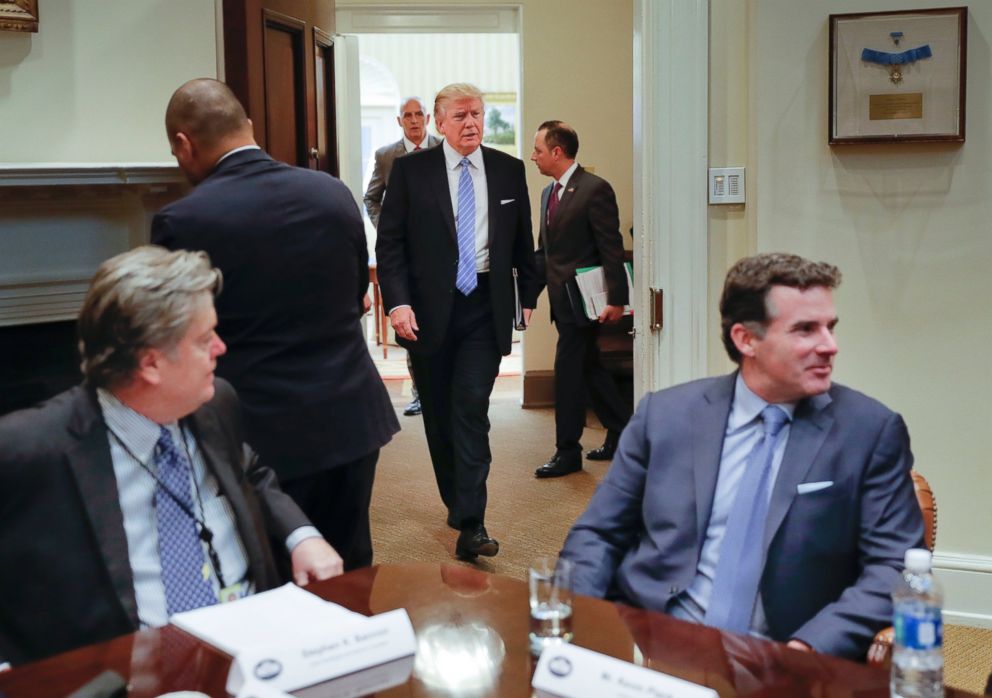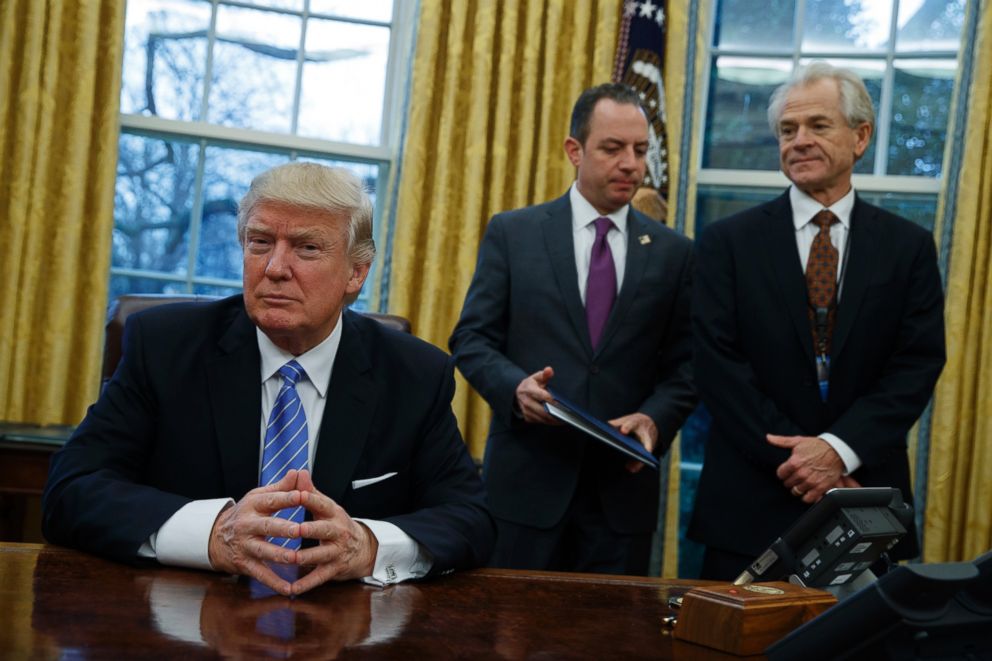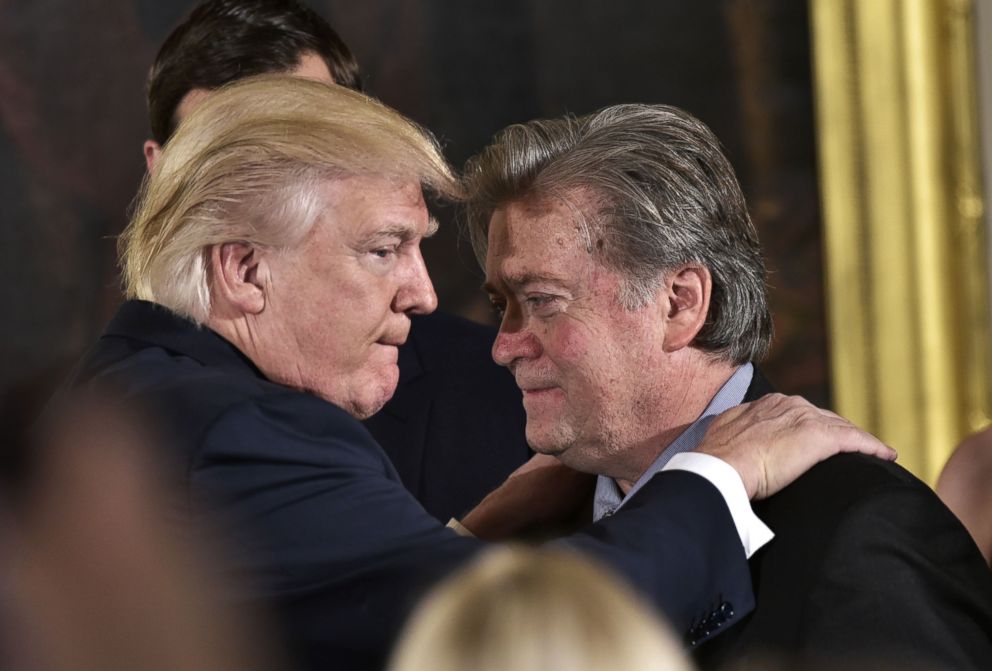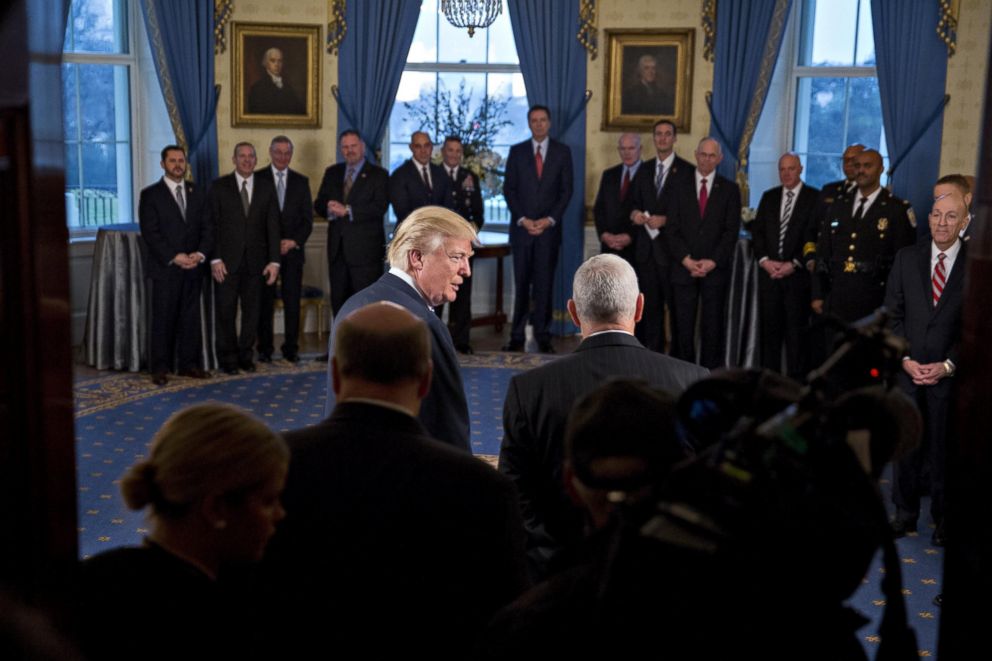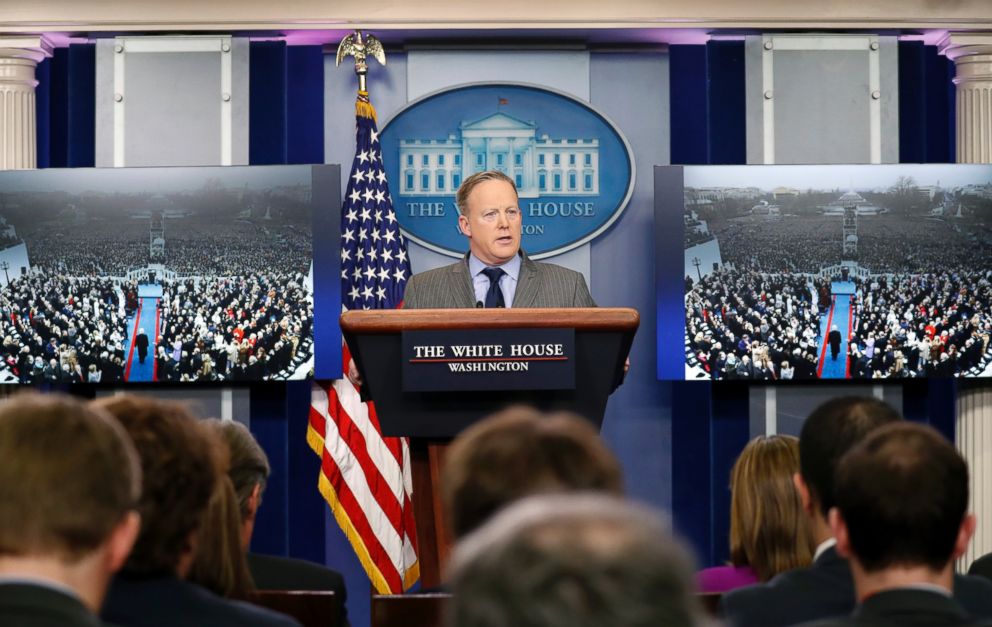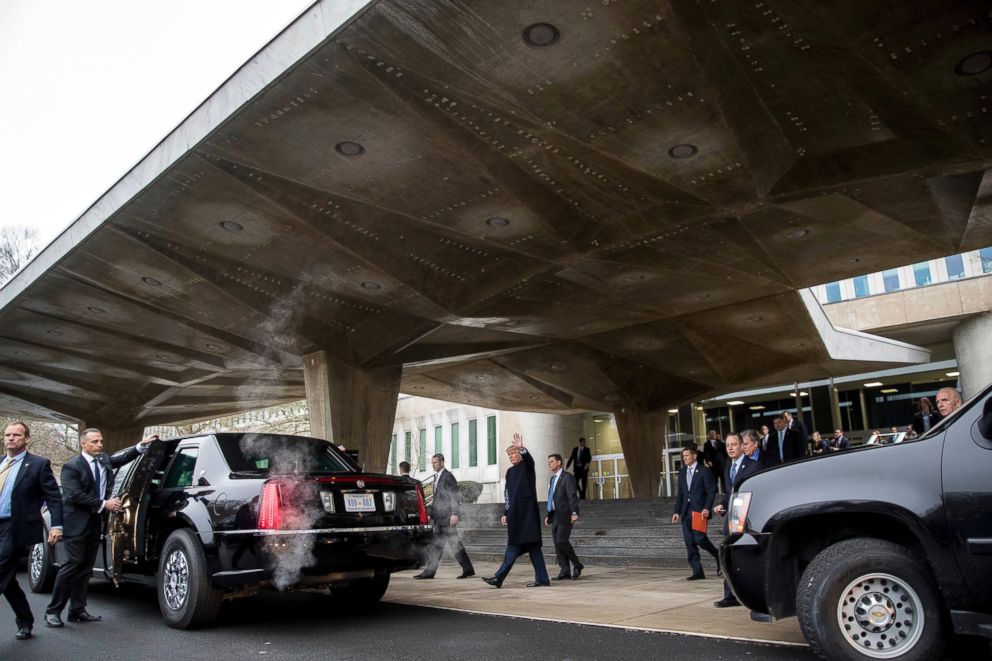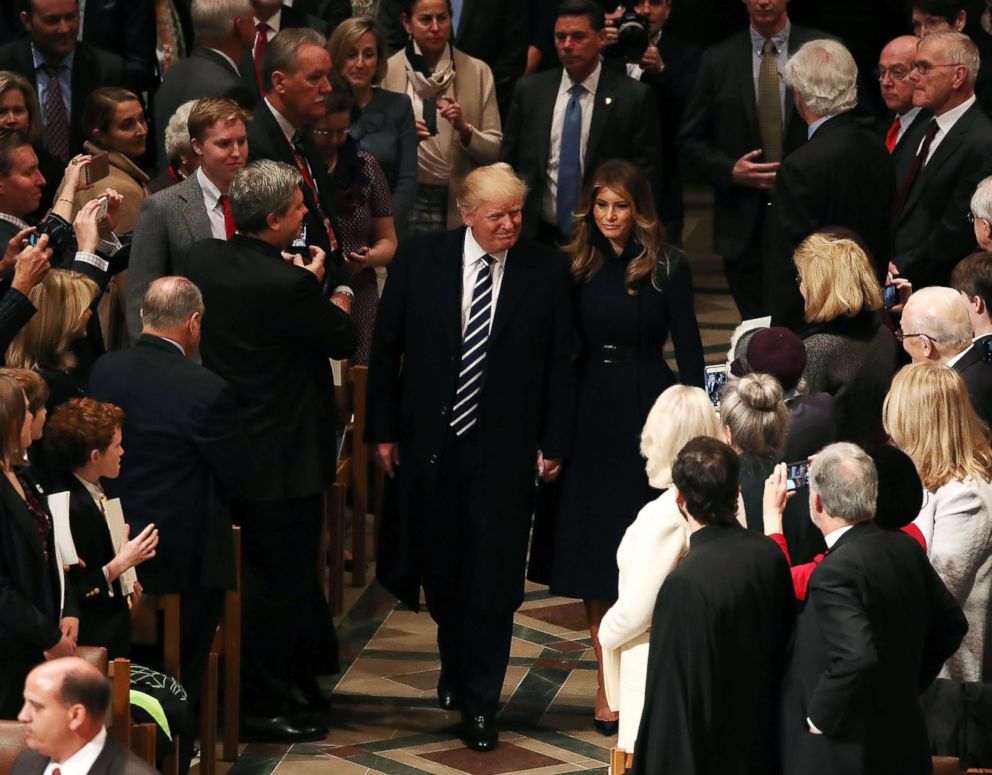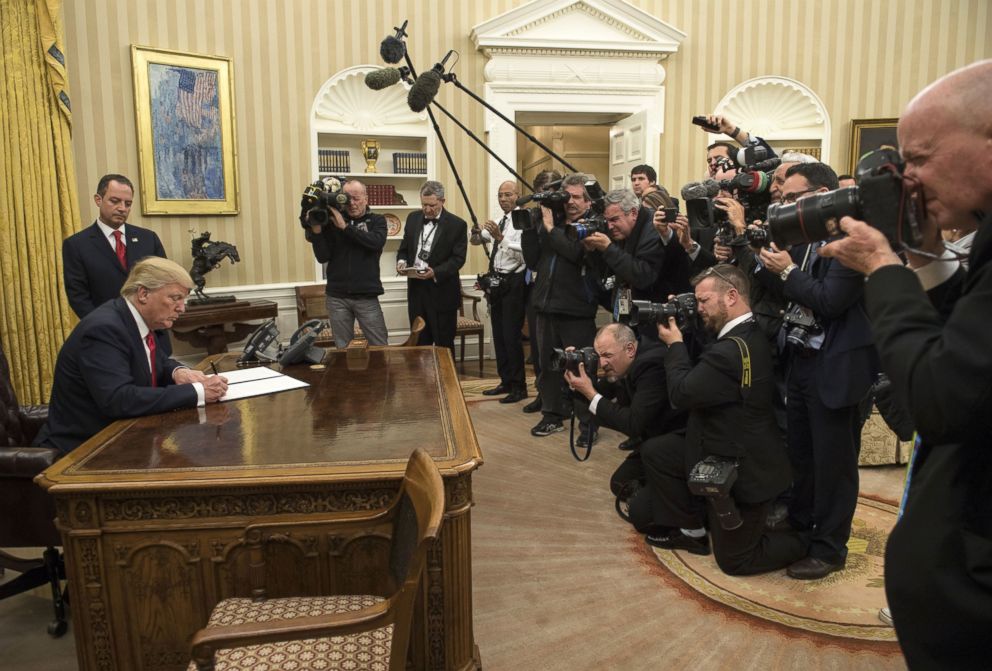Trump: 'Good Chemistry' With Japan’s Leader, 'Getting Along Very Well' With China
Trump says U.S. relationships in Pacific region doing well after a rocky start.
— -- President Donald Trump and Japanese Prime Minister Shinzo Abe in a joint appearance in the White House's East Room reaffirmed the importance of the two countries' "very crucial" security alliance in the Pacific region and their economic relationship.
Trump also in the press conference Friday afternoon gave his first public remarks about his phone call with China's president, Xi Jinping, on Thursday.
“I think we are in the process of getting along very well, and I think that will be very much of benefit to Japan," said Trump who as president-elect made waves by speaking directly with Taiwan's president in a break with decades of U.S. practice. "Discussed a lot of subjects. It was a long talk. We are working on that as we speak. We have conversations with various representatives of China. Think it will work out very well for everybody.”
The press conference was Trump's first during a difficult week for the White House. On Thursday night, the Ninth Circuit Court of Appeals denied a request by the Department of Justice to lift a stay on Trump’s controversial immigration executive order.
Trump's first 100 days
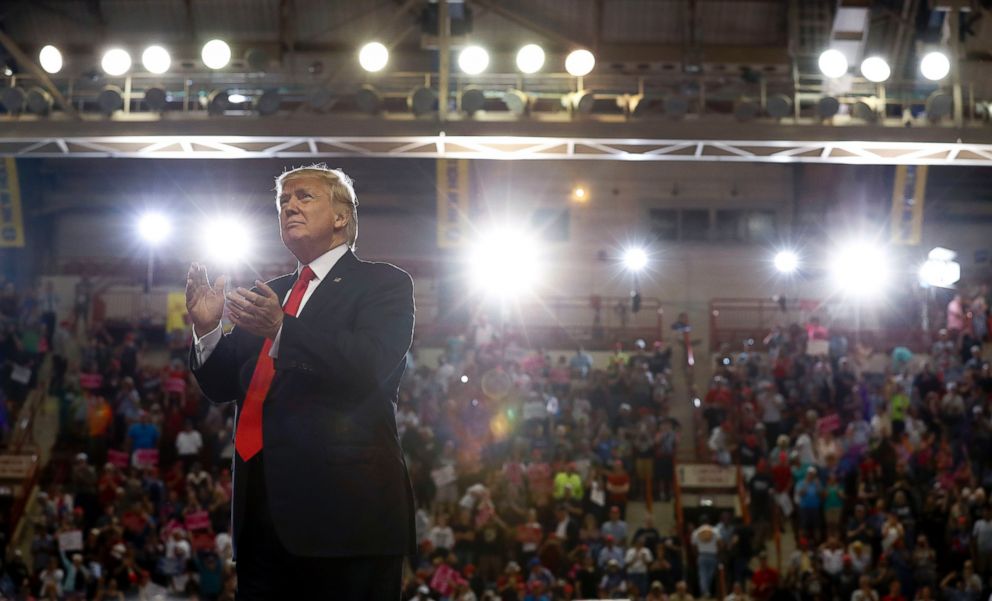
The president on Friday reiterated his position that the White House will ultimately "win that particular case."
"We are going to do whatever is necessary to keep our country safe," Trump said. "We’ll be doing something very rapidly having to do with additional security for our country. You’ll be seeing that sometime next week."
Prior to the press conference, Trump and Abe met in the Oval Office where Trump complimented Abe’s handshake and “strong hands” before walking together down the Colonnade. Trump noted that the two developed a friendship during a prior meeting at Trump Tower in New York and have “very, very, good chemistry.”
“The bond between our two nations and the friendship between our two peoples runs very, very deep,” said Trump.
”This administration is committed to bringing those ties even closer," he said. "We're committed to the security of Japan and all areas under its administrative control and to further strengthening our very crucial alliance. The U.S.-Japan alliance is the cornerstone of peace and stability in the Pacific region.”
Abe noted that this was his fourth visit to the United States in six months. In December, he met with former President Obama in Hawaii on the anniversary of Pearl Harbor.
In his remarks, Abe complimented Trump on his unusual rise to the presidency and business skills.
“Donald, president, you are an excellent businessman, but you have never been in the Congress or been a governor. You have not experienced being in the public office, but you have fought the uphill struggle and fought for more than a year in the election campaign to become a new president, and this is the dynamism of democracy.”
While traditionally friendly, the relationship between the U.S. and Japan got off to a rocky start when Trump signed an executive order withdrawing the United States from the Trans-Pacific Partnership during his first days in office. The move was met with disappointment by Japan who saw the T.P.P. as a check on China’s trade power in the Pacific.
“On T.P.P., of course we are fully aware of president Trump's decision. On the economic issues, we will be discussing at the working lunch that follows,” said Abe. He added that the purpose of T.P.P. was “a free and fair common set of rules” for free trade regime in the region, “and that importance has not changed.”
Trump has touted his plans to increase infrastructure development, an idea he said is under discussion with Abe. Over the past year Japan said it has made more than $150 billion in new investments in the United States. Abe noted potential plans to build a high-speed train between Washington, D.C. and New York.
“I'm sure there will be major-scale infrastructure investments that will be made, including the fast-speed train," Abe said, adding that Japan, with its high level of technical capability "will be able to contribute to President Trump's growth strategy.”
Trump also said that big announcements are going to be made soon about companies "coming back" to the United States.
“Ever since I won the election, and became president-elect, I've been telling companies, car companies and other companies, many companies, 'Come back into the United States,' and they've been coming back in, and big announcements are going to be made over the next short period of time,” the president said.
Trump and Abe additionally discussed their commitment to combating terrorism and checking the threat of North Korean aggression in the Pacific region.
“Our country is committed to being a fully engaged partner,” said Trump. “We will work together to promote our shared interests, of which we have many, in the region, including freedom of navigation and defending against the North Korean missile and nuclear threat, both of which I consider a very, very high priority.”
In a lighthearted moment, Abe, whose name is pronounced ah-bay, said Americans sometimes mistakenly pronounce his name like that of Abe Lincoln. “But that is not bad because even in Japan everybody knows the name of the great president,” said Abe. “That former carpenter’s son that became a president, and that fact 150 years ago surprised the Japanese ... The Japanese opened their eyes to democracy.”
Following the press conference, the two leaders departed on Air Force One for Trump's Mar-a-Lago Club in Florida, where the president is entertaining Abe and his wife Akie. Both countries' leaders are golf enthusiasts and are scheduled to play a round together Saturday afternoon.
Abe joked that his game isn’t up to par with Trump’s. “My scores in golf are not up to the level of Trump at all but my policy is never up, never in but always aiming for the cup.”
